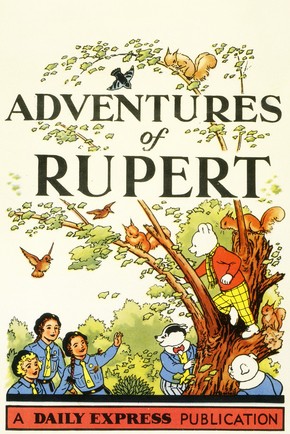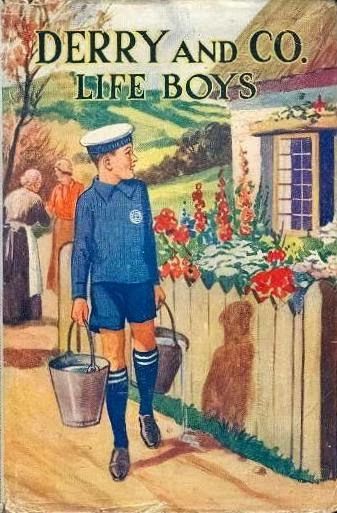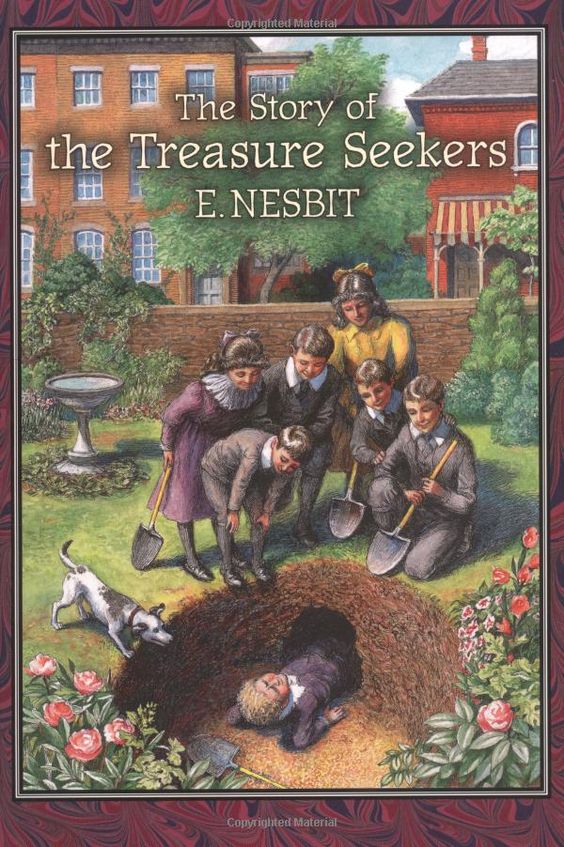|
|
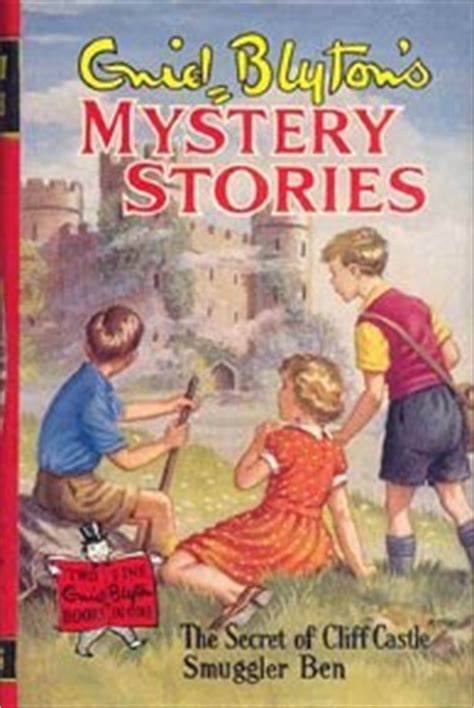 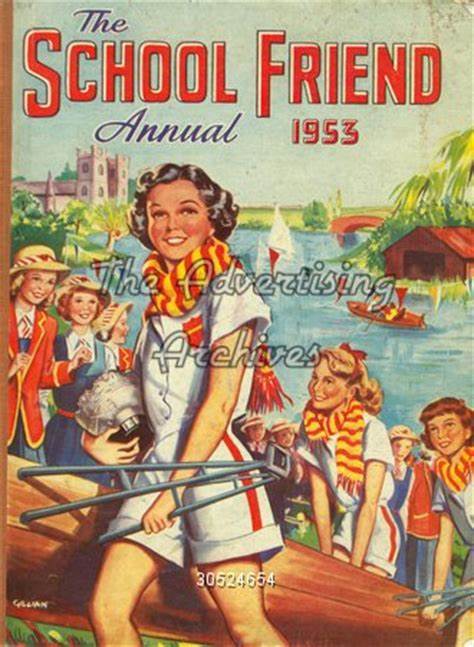 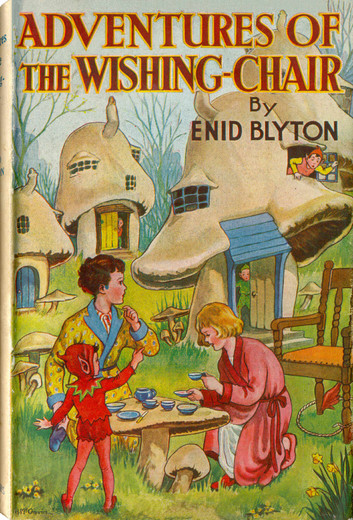 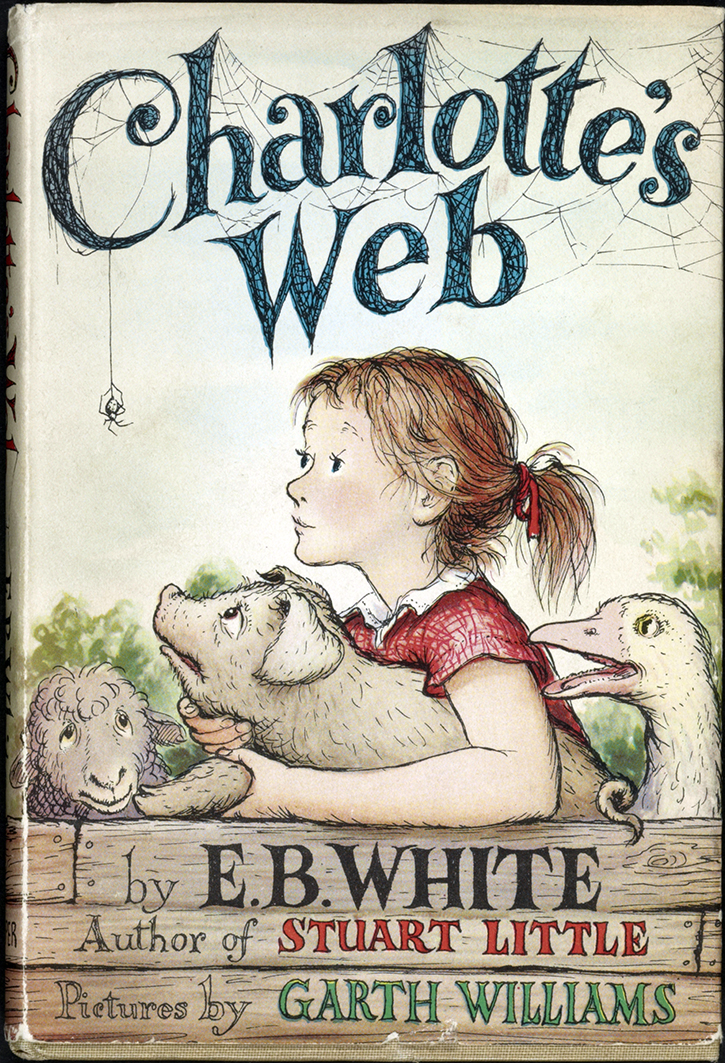 Previous "Growing Up" articles:
March 2022 - The Oxbode, Gloucester
On this month's Growing Up in the 1950s page I need to start with an apology: in previous "essays" on this page I asserted that I had attended a small school in Shurdington for six months prior to the opening of the brand new Brockworth New County Primary School. I knew for sure that the bus turned right at the crossroads, the only problem with that being that Shurdington was left, on the way to Cheltenham. It turns out I was wrong - I didn't attend the little school at Shurdington, I went to an even smaller school at Cranham, up behind Cheeseroll Hill. Here's an excerpt from the history of Cranham and its school from the Gloucestershire History Archives: "
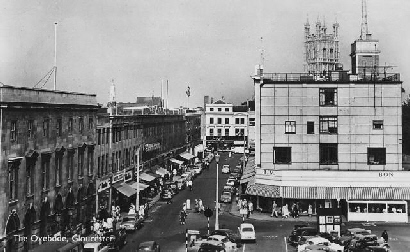 In
1948 there were 11 children on the roll"...
In 1950, I was one of sixteen. Somewhere in my collection of old photos
there's one of the entire school, all sixteen of us, including me and
my sister Jean. The
reason I made
this discovery was because this month's BBC Music Magazine has an
article on the Gustav Holst Walking Trail, which begins in Cranham,
Holst's birthplace, about two miles away from my own birthplace, in
Brockworth. I'm glad we got that cleared up, because it had been
nagging at me, realising that the bus to Shurdington going left instead
of right was all wrong! This month I want to talk more about
Gloucester, and in particular one very notable street: The Oxbode. The
Oxbode ran along past the gigantic Bon Marché store towards Eastgate,
and I think my family and I, but particularly me, spent more money in
that street than any other street in Gloucester, at least for a while.
In the 1950s, on the left hand side of the Oxbode, coming out of Kings
Square, there was a branch of Currys, and a toy shop. The toy shop
window was filled with the latest Dinky and Corgi toys. If you've
looked at this month's nostalgia page, you will have seen the new book
from Veloce about the Triumph TR2 and TR3 motor cars. One day, whilst
in the Oxbode, I happened to glance in the toyshop window and there was
Dinky Toy Number 111 - the Triumph TR2. This was the most beautiful car
I had ever seen in my life. I would have been six or seven years old,
and well into toy cars, with a growing collection. I had to have the
Triumph TR2 model, and made a promise to myself that when I was old
enough, I would have the real thing. In
1948 there were 11 children on the roll"...
In 1950, I was one of sixteen. Somewhere in my collection of old photos
there's one of the entire school, all sixteen of us, including me and
my sister Jean. The
reason I made
this discovery was because this month's BBC Music Magazine has an
article on the Gustav Holst Walking Trail, which begins in Cranham,
Holst's birthplace, about two miles away from my own birthplace, in
Brockworth. I'm glad we got that cleared up, because it had been
nagging at me, realising that the bus to Shurdington going left instead
of right was all wrong! This month I want to talk more about
Gloucester, and in particular one very notable street: The Oxbode. The
Oxbode ran along past the gigantic Bon Marché store towards Eastgate,
and I think my family and I, but particularly me, spent more money in
that street than any other street in Gloucester, at least for a while.
In the 1950s, on the left hand side of the Oxbode, coming out of Kings
Square, there was a branch of Currys, and a toy shop. The toy shop
window was filled with the latest Dinky and Corgi toys. If you've
looked at this month's nostalgia page, you will have seen the new book
from Veloce about the Triumph TR2 and TR3 motor cars. One day, whilst
in the Oxbode, I happened to glance in the toyshop window and there was
Dinky Toy Number 111 - the Triumph TR2. This was the most beautiful car
I had ever seen in my life. I would have been six or seven years old,
and well into toy cars, with a growing collection. I had to have the
Triumph TR2 model, and made a promise to myself that when I was old
enough, I would have the real thing. That
sadly never happened, but I did get my model, and I played with it all
the time, selecting it from my collection and preferring it to all
others. When friends came to play, I would never let them play with the
TR2, that remained hidden in a drawer until they had gone home to their
own toy car collections. When one of the part-work companies launched
their Dinky Toys collection a few years back, I was pleased to see that
the first issue, which cost £2.99, I think (probably more than ten
times what I paid for me model 111 back in 1953-4) was model number
111, the TR2, and I was one of the first people to buy one in my home
town. I have no way of knowing that, but it felt that way to me. To
have my favourite model car in pride of place in the cabinet meant so
much to me! A few years later, at the age of ten, I was set to become a
paper boy at Mr Lees post office-cum-newsagent-cum-general-store in
Ermine Street. I had to wait until I was eleven, which was in a month's
time, but he had interviewed me (I was accompanied by my Mum) and
agreed that I was ideal for the job.
In
preparation, I started to save my pocket money in readiness to put a
deposit on a bicycle. I didn't have one - all I had was the red Triang
tricycle that saw me through my toddler years, and at the age of
eleven, it would have been far too small, although the boot would have
been very good for putting the newspapers and magazines in! My Mum and
I went one day to the Oxbode, to Currys. Upstairs, there must have been
around fifty or sixty brand new bicycles, hanging from the ceiling, and
hundreds more standing on the upper sales floor. I selected a Raleigh
four-speed with drop handlebars in black and yellow, and paid my
deposit. A few weeks later, having paid in full, a Currys van stopped
outside our house and the driver extracted my gleaming new bike from
the back and handed it to me. It was immediately appropriated by the
ginger-haired twins from next door, both of whom were green with envy.
Their bikes had straight handlesbars and only three gears! Eventually
they let me ride it up and down Boverton Drive, and the next morning,
at 5:30am I set off down the road to do my first newspaper delivery on
my new bike. I went everywhete on that bike, all over Brockworth,
Churchdown, Hucclecote, Cranham Woods, everywhere. I even started
riding the seven miles from home to school, and continued to do so
until I left in July 1963 to start my new life in Stevenage New Town,
whose revolutionary cycle tracks made it a joy to ride a bike.
But
I digress, and it's time for two last incidents of money changing hands
in the Oxbode! Still in my first year at the Crypt Grammar School, I
was used to getting two buses home. The first dropped me in Westgate,
followed by a walk to Kings Square, which involved walking along the
Oxbode, and there, one late afternoon in 1958, outside Currys (of all
places!) stood a handsome new radiogram. At home, we currently had a
radio that sat on the shelf in the front room, and a wind-up gramophone
which sat in a cupboard and only came out when someone in the family
wanted to listen to those old 78rpm shellac records of Al Bowlly, or
Jack Hylton and his orchestra. Also in 1958, I discovered Dad's small
collection of Django Reinhardt 78s and played them to death. There
seemed to be a never-ending supply of needles for the gramophone.
But
things were starting to change in the entertainment industry, and every
single boy in my class except me, had a record player! That was how I
pitched it to my Mum, and after days of nagging, she met me one
afternoon on the way home from school, and bought the radiogram on six
months' credit terms, which meant it could be delivered immediately and
I would help Mum with the repayments from my paper round money. This
meant that I could buy 45rpm singles, and 33rpm LPs. The first LP I
bought came not from the Oxbode, although they did sell them in Bon
Marché, but from Woolworths, and it was a 10-inch LP Of Beethoven's
Fifth Symphony, a record recital of which I had attended in a working
men's club with my Dad a few weeks previously - standing room only,
amongst a hundred or so working men, all twice my height and all
smoking like chimneys. A very unpleasant experience alleviated only by
the sheer glory of the music, a piece I simply had to have. With the
new radiogram in pride of place in the front room bay window, I started
to accumulate 78rpm records like there was no tomorrow, eventually
discovering Acker Bilk, Lonnie Donegan and others from Brian Matthew's
brilliant Saturday morning record programme on the BBC Light Programme.
But LPs were the way to go - in 1959 I discovered an LP by Django
Reinhardt and the Quintette du Hot Club de France. That same year I
started to buy Acker Bilk LPs (you'll find them all on the Acker Bilk
page); and in 1961 I discovered Bobby Darin and the Beatles, and the
rest is history. Eventually all of my records came from Bon Marché,
where they had listening booths, and in July 1963, as I said earlier,
we moved from Boverton Drive to Southend-on-Sea where we stayed with
Uncle Stan and Aunt Florrie until November, when it was time to move to
Stevenage, and the second major phase of my life began, where and when
I would meet Wendy, we would fall in love, get married and spend the
next 56 years of our lives together... (to be continued).
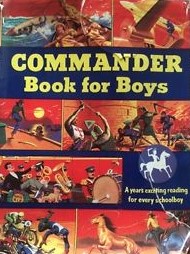 FEBRUARY 2022: This
month I'm running out of time, so I thought I would just share with you
what a typical 1950s/1960s Christmas was like for me and my sister
Jean... Let's take 1956, I was ten years old, Jean would have been
fourteen. I was a third of the way through my last year at Brockworth
New County Primary School, because my birthday was in mid September and
I was deemed ready to take the 11+ exam the following June, which
meant, if I were to pass, that I would move up to senior school in July
of 1957. I wasn't fazed by the thought of this exam, and I wasn't
really conscious of the fact that I would be taking the exam a year
early, because it wasn't really a year early to me, it was just a few
months, three, to be precise. I had the reading age of a sixteen year
old, I had many Charles Dickens titles in my own collection, as well as
R M Ballantyne, Robert Louis Stevenson, Alexander Dumas, etc., etc.,
all normal reading matter, I thought, for a ten year old. I also had
almost a complete set of Leslie Charteris's Saint books, some Inspector
Wests, some Pan Horror Stories anthologies, Lorna Doone, Robin Hood and
King Arthur, the latter two being my absolute favourites... and some
Tarzan books. FEBRUARY 2022: This
month I'm running out of time, so I thought I would just share with you
what a typical 1950s/1960s Christmas was like for me and my sister
Jean... Let's take 1956, I was ten years old, Jean would have been
fourteen. I was a third of the way through my last year at Brockworth
New County Primary School, because my birthday was in mid September and
I was deemed ready to take the 11+ exam the following June, which
meant, if I were to pass, that I would move up to senior school in July
of 1957. I wasn't fazed by the thought of this exam, and I wasn't
really conscious of the fact that I would be taking the exam a year
early, because it wasn't really a year early to me, it was just a few
months, three, to be precise. I had the reading age of a sixteen year
old, I had many Charles Dickens titles in my own collection, as well as
R M Ballantyne, Robert Louis Stevenson, Alexander Dumas, etc., etc.,
all normal reading matter, I thought, for a ten year old. I also had
almost a complete set of Leslie Charteris's Saint books, some Inspector
Wests, some Pan Horror Stories anthologies, Lorna Doone, Robin Hood and
King Arthur, the latter two being my absolute favourites... and some
Tarzan books. We were always asked what we would like for Christmas, and, taking the Tiger and Lion comics every week, I was aware of but not particularly interested in football, to the extent that some of my friends were. However, at the beginning of every football season, in September, the Tiger provided a carboard insert that allowed you to move teams up and down as the results came in; I was always a sucker for a free gift in my comics, and as I enjoyed a kickabout with my friends, I decided to ask for a football. In those days, footballs were made of leather and were inflated using an adaptor on a bicycle tire pump. I didn't have a bicycle then, that came a year or so later when I was eleven years old and able to take on a paper round. I bought the bicycle myself, a Raleigh four-speed, which was the envy of all my friends, especially the ginger-haired twins next door, as their bicycles were not equipped with drop handlebars, and had only three gears! Back to Christmas... I desperately wanted a three-colour torch - basically a normal torch with a sliding mechanism that placed a red or a green plastic lens over the bulb; cool! Other than that, I asked for the usual: a tin of toffees, either Sharps toffees or Bluebird toffees, a box of Turkish Delight, and my usual annuals, the Tiger and the Lion. I remember hanging a stocking at the end of my bed, and in the morning it had mysteriously been replaced by a pillow case... and in it was a cubic box containing my leather football; a three-colour torch; an orange and an apple; a tin of Sharps toffees; a wooden box of Turkish Delight; my Lion Annual and my Tiger annual, and another rectangular parcel which felt like another book, only it was three times as thick as my 160-page Tiger and Lion anuals. Because 1956 was the first year in which the Commander Book for Boys was published - a massive book containing over five hundred pages of beautifully illustrated stories (by Robert McGillivray) for boys - school stories, Wild West stories, desert island stories, etc., etc. I was overjoyed. This was a handsome book, some two inches thick, the same size as a TIger annual, and with a dustjacket - a beautifully illustrated brightly coloured dustjacket. The Commander book was published for four years running, and I still have all four of mine, all with their dustjackets. I have two of the companion girls' books, too, the Coronet Book for Girls, which Jean had each year in her pillow case. We scratched around and found a bicycle pump and got the football inflated. Dad and I had a glorious kickabout on the front lawn, then went inside to chill out, me with my three treasured books, and to start eating my toffees while Mum and Jean started preparing the Capon for Christmas dinner, and Dad went to the pub with Mum's brothers, my uncles John and Ernie. Christmas dinner would comprise the four of of us, the two uncles, and my beloved Gran. Later in the day other relatives would join us and we would spend the evening singing songs while Mum played the piano and Dad played the mandolin-banjo. All I could play at that stage of my life was the recorder, and not well enough to join in with the old favourites. There was always a houseful at Christmas - sometimes Dad's sisters, Aunt Ivy and Florrie would come to stay from Hornchurch in Essex, bringing with them their husbands, George and Stan, and Sylvia, Aunt Ivy and Uncle George's daughter, with whom I was madly in love. She was about eighteen months older than me, and I dreamed of growing up and marrying her. It didn't happen, of course, although legally I think it would have been within the law for it to happen. At bedtime, I started to read my Commander Book for Boys, and when it was time for lights out, I used my new torch to carry on reading by torchlight until I was too tired to stay awake. You may be wondering what gifts I bought for my Mum and Dad that year - well, it was the same as every other year, it was California Poppy scent for Mum, and a box of Dairy Milk; and a pair of yellow socks for Dad. I only ever remember buying Dad yellow socks at Christmas... When I think about the kinds of money that gets spent on children nowadays, it makes me think of the simple things I would find in my pillow case, and how I was always so thrilled beyond belief to have my three brilliant books, the two comic annuals, and the brand new Commander Book for Boys. Pocket money books, a pocket money torch, pocket money sweets... and a football, which must have cost a comparatively small fortune to Mum and Dad. They weren't cheap, but they meant a huge amount to me. The perfect Christmas - basically, for me, it was books and sweets... JANUARY 2022: The 1950s was the age of the baby boomers, of an end to rationing; it was the first decade of liberation after almost six years of the terror of war. It was an age of bicycles and tricycles, of home-made bows and arrows, of jam jars with string tied round for carrying our ill-gotten gains of newts and leeches from the stream, of long walks in the countryside, of climbing trees, of reading the huge number of children's comics that were available; of listening to the big radio in the front room, to Little Jimmy Clitheroe, Billy Cotton, Life with the Lyons, Hancock's Half Hour, Much Binding in the Marsh, Children's Favourites with Uncle Mac, Children's Hour after school, Mrs Dales's Diary, Listen With Mother, and Radio Luxembourg on a primitive transistor radio. It was the age of Enid Blyton, and Mabel Lucie Attwell, and Robert Louis Stevenson, of R M Ballantyne, of Robin Hood and King Arthur, of Buffalo Bill, Wild Bill Hickock and General Custer, and of treasure islands. Of homework followed by a family dinner, then a kick-about in the council playing fields with school friends, then home to bed and reading a favourite book until lights out... My earliest memory is of me at around six months old, standing up in my cot and screaming in terror as monkeys swarmed up the rope vines that adorned the bedroom wall. I was reliably informed, by my Mum, before she passed away, that the wallpaper in their bedroom at number 72 Boverton Drive, in Brockworth village, Gloucestershire, included a horizontal frieze depicting zoo animans, some of which were indeed monkeys, and that this screaming fit coincided with me having whooping cough, a serious illness that almost did for me back in 1947. Other than that memory, and one of me sitting in a tin bath on the lawn in the side garden, probably a couple of months further on, I have very little memory of the late 1940s, the decade in which I was born except for being allowed to play with local children a little older than me. Having said that, the 1950s were absolutely identical in almost every way to the 1940s except that midway through the 1950s, rationing finally came to an end, and one could say that the war was finally over. I do remember being taken to the Bear Gardens Clinic in Gloucester, some kind of children's health centre, where I was taught, for some obscure reason, to pick up pencils with my toes. To this day I don't know if I have flat feet, or fallen arches, and wouldn't know what either of these afflictions entailed, I only know I went to have some corrective exercises which, whatever they were for, apparently worked. This would have been when I was around three or four years old. I also remember many times going into the city on the bus with Mum and feeling very, very sick, which meant that we would have to get off the bus in Barnwood, around two miles from the city centre, whilst I calmed down, and then we probably went home. Another bus journey I remember well in 1951, when I was just four and a half years old, was the one to the one-class, one-teacher Shurdington Village School. This was just before the opening of the New County Primary School in Brockworth, which I attended until I passed the 11+ exam at the age of ten and graduated to the Crypt Grammar School in Tuffley, Gloucester. 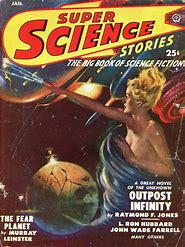 Brockworth
village grew up on the
back of the Gloucester Aircraft Company, which, although many websites
claim was situated in Hucclecote, the next village along Ermin Street
on the way to Gloucester City, was actually situated in Brockworth. The
main entrance was in Brockworth, and there were a couple of miles of
open fields and houses before you got to Hucclecote, although the
grounds of the Gloucester Aircraft Company ran along the back of these
houses and did indeed join Hucclecote to Brockworth. In 1950, the first
year I really remember anything of any significance, Gloucester
Aircraft Company was making the Gloucester Javelin, and every morning
at around ten o'clock, the air raid siren would sound - a chilling
sound it was too - and they would test the Javelin's engines, which
were absolutely deafening. The Gloster Javelin was a pioneering
jet-propelled fighter aircraft that at the time was a world beater, and
it made me very proud to think that it was being built in my village. I
don't
recall ever seeing a Javelin in the skies above Brockworth, and I don't
believe they even had a runway, but then aircraft in the skies were few
and
far between in those days, and I don't really recall seeing that many
over Brockworth in my
fifteen years there. Brockworth
village grew up on the
back of the Gloucester Aircraft Company, which, although many websites
claim was situated in Hucclecote, the next village along Ermin Street
on the way to Gloucester City, was actually situated in Brockworth. The
main entrance was in Brockworth, and there were a couple of miles of
open fields and houses before you got to Hucclecote, although the
grounds of the Gloucester Aircraft Company ran along the back of these
houses and did indeed join Hucclecote to Brockworth. In 1950, the first
year I really remember anything of any significance, Gloucester
Aircraft Company was making the Gloucester Javelin, and every morning
at around ten o'clock, the air raid siren would sound - a chilling
sound it was too - and they would test the Javelin's engines, which
were absolutely deafening. The Gloster Javelin was a pioneering
jet-propelled fighter aircraft that at the time was a world beater, and
it made me very proud to think that it was being built in my village. I
don't
recall ever seeing a Javelin in the skies above Brockworth, and I don't
believe they even had a runway, but then aircraft in the skies were few
and
far between in those days, and I don't really recall seeing that many
over Brockworth in my
fifteen years there. I was more into cars, anyway, and had a little pocket notebook into which I would write the number plate details of every car I saw in the village, which wasn't very many at all. The reason for this remains unclear. A notebook with car number plates - it wasn't like stamp collecting, was it? My Uncle Ernie had a car, a Standard 8, in which he drove around the villages collecting insurance money. We didn't have a car until 1960, when Dad brought home a 1936 Morris 8 Tourer which he painstakingly stripped down and rebuilt over a couple of months. I'll tell you more about this car when we get to the Sixties... My Uncle Ed, Dad's brother, always had a car - the one I remember most vividly was his three-wheeled MG, which I hated. Cars should always have four wheels. Occasionally he would turn up on a motorbike. He was flamboyant and daredevil in a way I really admired, but he was also reckless, and thought nothing of driving around under the influence of drink, which always troubled me. But then he lived to the ripe old age of 83. He always dragged my Dad away from the house to go down the road to one of the two pubs in Ermin Street, the one at the top of the road where you went to Cheltenham, the Coach and Horses, the other actually down in Hucclecote, which was the Pine Trees; and they always came back after closing time, the worse for wear. My Mum turned a blind eye. She worshipped Dad, he could do no wrong. To the best of my knowledge he never cheated on her, although it was rumoured that that was why we suddenly left Brockworth in 1963, but neither my sister Jean nor I ever really knew the real reason. It could have been that - Dad went off to work every day to catch a works bus that took him to the Forest of Dean, where J Arthur Rank had his Xerox machine factory, and where Dad was Chief Tool Engineer. 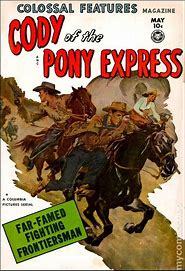 This
was a very good job, and
although we were never what you might call rich, we never went without,
even though some things were purchased on credit, such as the radiogram
and the brand new cylinder Hoover vacuum cleaner, and my bicycle and
first guitar, of which more in another issue of Books Monthly. My Mum
was the
seventh and youngest child of Florence and Henry William Kimber. My
Gran was my only grandparent, Henry William Kimber having died in 1943,
before I was born. On my Dad's side, his Dad, Arthur Robert Norman,
joined up in 1915 and was killed at the Battle of the Somme in August
1916. His wife, Emily Kemp, died in 1929. So three of my grandparents
died before I was born. I should like to take a moment here to pause
and reflect on the importance of asking your parents and grandparents
about their family history, because when they're dead, it's obviously
too late. When Mum died in 2002, I inherited a huge box of family
photographs, some from the very early days of photography, and I don't
have a clue as to who many of them are. It was only when we started to
research our family trees that we discovered things about our families
that no one ever talked about. I always knew that Emily Kemp, my
paternal grandmother, had re-married after Granddad Arthur Robert
Norman was killed in the Great War. This
was a very good job, and
although we were never what you might call rich, we never went without,
even though some things were purchased on credit, such as the radiogram
and the brand new cylinder Hoover vacuum cleaner, and my bicycle and
first guitar, of which more in another issue of Books Monthly. My Mum
was the
seventh and youngest child of Florence and Henry William Kimber. My
Gran was my only grandparent, Henry William Kimber having died in 1943,
before I was born. On my Dad's side, his Dad, Arthur Robert Norman,
joined up in 1915 and was killed at the Battle of the Somme in August
1916. His wife, Emily Kemp, died in 1929. So three of my grandparents
died before I was born. I should like to take a moment here to pause
and reflect on the importance of asking your parents and grandparents
about their family history, because when they're dead, it's obviously
too late. When Mum died in 2002, I inherited a huge box of family
photographs, some from the very early days of photography, and I don't
have a clue as to who many of them are. It was only when we started to
research our family trees that we discovered things about our families
that no one ever talked about. I always knew that Emily Kemp, my
paternal grandmother, had re-married after Granddad Arthur Robert
Norman was killed in the Great War. She married a man called Matthews, and he was the father of Dad's brother, my Uncle Ed, the one with the three-wheeled MG. Although I didn't know why, I always knew that she had abandoned her four children by Arthur Robert Norman when she re-married - my Aunty Florrie, Aunty Ivy, Aunty Doris and my Dad were brought up by Arthur Robert Norman's brother, Leopold Septimus Norman, and his wife, Aunt Maggie. We visited them often, firstly in Hornchurch, where the rest of the Normans now resided, and later in Lyme Regis, and they occasionally came to visit us and stay with us in Brockworth. They were always very kind to me, always gave me two half-crowns, which was a huge amount of money in the 1950s, and which I put to good use by buying books to add to my growing collection. They would stay for a couple of weeks, and always had family memories to share with Dad. We never heard Dad speak about his mother, Emily Kemp; even when Uncle Leo told Dad he had been to a seance and had been in touch with his Mum, Emily Kemp, he didn't want to know. There was some bad feeling there all right. I doubt he would have told me anything about her had I asked, but at least I should have asked him about my missing grandmother. Mum and Dad married in 1939. 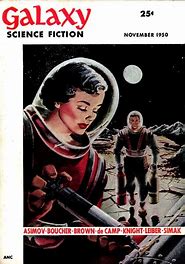 As I said, Mum came from a large
family, one sister and five brothers, and her eldest brother, my Uncle
Bill, was the first to discover the village of Brockworth, because the
entire family, both branches of it, were all Londoners. Dad was an
Eastender, a genuine cockney. Mum was born in Camberwell. Dad met my
Uncle John and they became best friends, and that's how he met Mum. I
know for a fact that they married in London, though I don't know which
church it was. But by the closing months of 1939, Uncle Bill was
renting a three-bedroomed villa in Court Road Brockworth, Mum and Dad
were renting rooms above Mr Ellis's general store at the western end of
Boverton Drive in Brockworth, and my Gran was renting a similar house
to Uncle Bill's in Boverton Avenue, which ran parallel to Boverton
Drive. Uncle Ernie and Uncle John lilved with Gran, both of them
confirmed bachelors. Uncle Leslie rented a house in Hucclecote, and
Mum's final brother, Albert, died at the age of two in 1916. Across the
road from Gran lived Great Uncle Ernie Kimber and his wife Grace, a
horrid woman that no one liked. She didn't like any of us, really. So,
in 1939, the entire Kimber family (and my Dad) were living in rural
Gloucestershire. My sister Jean was born in 1941 in the rooms above Mr
Ellis's store, so Mum and Dad must have moved to the three-bedroomed
villa that became our home until 1963 in Boverton Drive after that, and
I was born there in 1946,
delivered by District Nurse Doyle, who said I must be a German baby
because of my square head. The rest of the decade passed without
incident (for me) and in 1950 I started to make the memories I can now
look back on with complete fondness. Many people who write about the
1950s and 1960s come from poor families and write about deprivation and
hardships, outside toilets and sharing rooms. As I said, Mum came from a large
family, one sister and five brothers, and her eldest brother, my Uncle
Bill, was the first to discover the village of Brockworth, because the
entire family, both branches of it, were all Londoners. Dad was an
Eastender, a genuine cockney. Mum was born in Camberwell. Dad met my
Uncle John and they became best friends, and that's how he met Mum. I
know for a fact that they married in London, though I don't know which
church it was. But by the closing months of 1939, Uncle Bill was
renting a three-bedroomed villa in Court Road Brockworth, Mum and Dad
were renting rooms above Mr Ellis's general store at the western end of
Boverton Drive in Brockworth, and my Gran was renting a similar house
to Uncle Bill's in Boverton Avenue, which ran parallel to Boverton
Drive. Uncle Ernie and Uncle John lilved with Gran, both of them
confirmed bachelors. Uncle Leslie rented a house in Hucclecote, and
Mum's final brother, Albert, died at the age of two in 1916. Across the
road from Gran lived Great Uncle Ernie Kimber and his wife Grace, a
horrid woman that no one liked. She didn't like any of us, really. So,
in 1939, the entire Kimber family (and my Dad) were living in rural
Gloucestershire. My sister Jean was born in 1941 in the rooms above Mr
Ellis's store, so Mum and Dad must have moved to the three-bedroomed
villa that became our home until 1963 in Boverton Drive after that, and
I was born there in 1946,
delivered by District Nurse Doyle, who said I must be a German baby
because of my square head. The rest of the decade passed without
incident (for me) and in 1950 I started to make the memories I can now
look back on with complete fondness. Many people who write about the
1950s and 1960s come from poor families and write about deprivation and
hardships, outside toilets and sharing rooms. 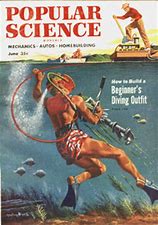 I was brought up in comparative
luxury and I can only describe that bringing up as privileged. Not in
the sense that we were upper class or anything. I think Dad would have
described us as middle class, but in reality, we were proper working
class. He was a white collar worker in a junior management position. He
took the Daily Telegraph every day and he always voted conservative,
unlike the Kimber clan, who were working class through and through, who
voted Labour without fail, and who had the headquarters of the local
Labour party in their dining room every week. It was a bone of some
contention between the two families, but Dad was stubborn, and
considered himself, as I said, to be middle class. The rest of us knew
better. I hated the Daily Telegraph for a variety of reasons. Firstly,
there were no cartoons - or if there were, they were rubbish, compared
with the Daily Mirror, which had Garth, Any Capp, the Perishers, and
Jane, that scantily clad young lady whose cartoon strip I was forbidden
to read, but which Gran and Uncles John and Ernie let me read anyway.
Secondly, the sheer size of it. When I was eleven years old, I took on
a paper round, of which more later, and those Telegraphs and Times were
so bloody heavy, especially when it came to the Sunday rounds! So,
there I was, sitting on the floor in front of the radio, listening to
Listen With Mother, reading my comic, probably Jack and Jill, early in
1950, in a comfortable, modern three bedroom
house with my own bedroom and a comparatively privileged life to look
forward to. If I turned my head to the left, to the bay window, I could
see Cheeseroll Hill in the distance, a hill that was already famous all
over the country, and which would figure large in my life until we left
Brockworth forever in 1963. I was brought up in comparative
luxury and I can only describe that bringing up as privileged. Not in
the sense that we were upper class or anything. I think Dad would have
described us as middle class, but in reality, we were proper working
class. He was a white collar worker in a junior management position. He
took the Daily Telegraph every day and he always voted conservative,
unlike the Kimber clan, who were working class through and through, who
voted Labour without fail, and who had the headquarters of the local
Labour party in their dining room every week. It was a bone of some
contention between the two families, but Dad was stubborn, and
considered himself, as I said, to be middle class. The rest of us knew
better. I hated the Daily Telegraph for a variety of reasons. Firstly,
there were no cartoons - or if there were, they were rubbish, compared
with the Daily Mirror, which had Garth, Any Capp, the Perishers, and
Jane, that scantily clad young lady whose cartoon strip I was forbidden
to read, but which Gran and Uncles John and Ernie let me read anyway.
Secondly, the sheer size of it. When I was eleven years old, I took on
a paper round, of which more later, and those Telegraphs and Times were
so bloody heavy, especially when it came to the Sunday rounds! So,
there I was, sitting on the floor in front of the radio, listening to
Listen With Mother, reading my comic, probably Jack and Jill, early in
1950, in a comfortable, modern three bedroom
house with my own bedroom and a comparatively privileged life to look
forward to. If I turned my head to the left, to the bay window, I could
see Cheeseroll Hill in the distance, a hill that was already famous all
over the country, and which would figure large in my life until we left
Brockworth forever in 1963. I loved Listen With Mother. Radio was everything - it provided 99% of the music in my life until I was old enough to appreciate the 78rpm shellac discs I inherited from Great Uncle Ernie and later from Uncles John and Ernie. The radio provided singular entertainment in the form of stories, and as we didn't have a television - in fact we never had a television in Brockworth - it was a form of entertainment for the whole family for the first fifteen years of my life. Which brings me back to the start of this nostalgic journey - what was it really like to grow up in the 1950s and 1960s? The answer is, for me, idyllic. I had my radio programmes, I had my growing library of books, I had my weekly comics (of which more in the next instalment in the December issue); I had open countryside just a few minutes down the road, I had my Meccano and my Dinky, Corgi and Matchbox toys, I had toy soldiers, one of which I pretended was Tarzan of the Apes, I had my teddy bear, and I had a loving family. I enjoyed very good health except that I was prone to bouts of bronchitis, but apart from that, I was in extraordinarily rude health. And with that, I shall stop for now and carry on in the next issue of Books Monthly. December 2021: 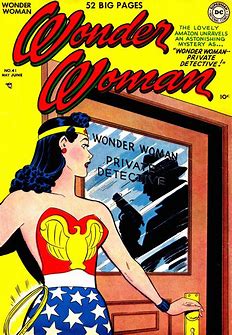 In 1950, I left
home. I was four years old. I packed my
teddy bear, a couple of handkerchiefs, and one of my favourite Mabel
Lucie Attwell books into a small, battered old suitcase an ageing
relative had given to me as a gift, I opened the front door and walked
up the long drive to the wooden gates (shortly to be replaced by
wrought iron gates my father made himself), opened one of the gates and
stood at the threshhold of a new life. Something had upset me - My Mum
was just a couple of yards away, weeding the front garden - it was, I
recall, a beautiful summer's day, just perfect for starting a new life
away from the misery of my life in Brockworth. I intended to walk down
the road, get on the bus to the city, make my way to the railway
station and board a train for somewhere, I didn't know where, I hadn't
yet made up my mind. If you think my parents were irresponsible,
watching me open the garden gate and stand on the pavement next to the
massive telegraph pole anchored with inch-thick steel rope to the
concrete pavement, you're entirely wrong. This was 1950. No one in our
street had a car. Deliveries of everything other than the royal mail
parcels were made by horse and cart, and it certainly wasn't dustbin
day, when the men would lift our dustbins easily onto their shoulders,
then slide open the curved lids of the containers, and dump the
contents inside. The street was entirely deserted. Mum let me get a
couple of yards away from the gates, which I had carefully shut, before
gently taking my hand with a smile and leading me back inside the
garden, saying 'Let's get some of your cars and play in the earth,
shall we?' In 1950, I left
home. I was four years old. I packed my
teddy bear, a couple of handkerchiefs, and one of my favourite Mabel
Lucie Attwell books into a small, battered old suitcase an ageing
relative had given to me as a gift, I opened the front door and walked
up the long drive to the wooden gates (shortly to be replaced by
wrought iron gates my father made himself), opened one of the gates and
stood at the threshhold of a new life. Something had upset me - My Mum
was just a couple of yards away, weeding the front garden - it was, I
recall, a beautiful summer's day, just perfect for starting a new life
away from the misery of my life in Brockworth. I intended to walk down
the road, get on the bus to the city, make my way to the railway
station and board a train for somewhere, I didn't know where, I hadn't
yet made up my mind. If you think my parents were irresponsible,
watching me open the garden gate and stand on the pavement next to the
massive telegraph pole anchored with inch-thick steel rope to the
concrete pavement, you're entirely wrong. This was 1950. No one in our
street had a car. Deliveries of everything other than the royal mail
parcels were made by horse and cart, and it certainly wasn't dustbin
day, when the men would lift our dustbins easily onto their shoulders,
then slide open the curved lids of the containers, and dump the
contents inside. The street was entirely deserted. Mum let me get a
couple of yards away from the gates, which I had carefully shut, before
gently taking my hand with a smile and leading me back inside the
garden, saying 'Let's get some of your cars and play in the earth,
shall we?'I was four years old, and in all probability, I had wanted to do something that was not allowed, and, temporarily furious, I had packed Teddy and my few belongings and declared my intention of leaving home. The adventure was extremely short-lived, because I was easily persuaded to come back inside and play. Dad would have been at work, my sister Jean, four years older than me, would have been at school, and Mum was a stay at home Mum. I was always easily persuaded to play with toy cars, or to colour a picture, or to read a book, or to listen to the radio. I never left home again, much as I would have enjoyed travelling on a train. When we went on holiday, we usually caught the bus to Gloucester, then walked to the coach station and caught a Black and White coach to Victoria Station in London, and finally a second coach to Ramsgate, where we holidayed for the first fifteen years of my life, staying in a boarding house a few yards from the beach. Black and White Coaches were the most familiar to me, a welcome change from the green and cream Bristol Omnibus Company double deckers we caught into the city. The coaches were much more comfortable. We stopped at Stokenchurch in Buckinghamshire, where we had a slap-up meal including one of those little slices of yellow fruitcake with the enormous glacé cherries and the currants wrapped in sellophane, which I adored. The boarding house was run by Uncle Bert, not a real Uncle but someone my Dad knew from his childhood, and who, with his wife, occasionally visited us in Brockworth to spend a few days. We occupied one big bedroom with a double bed and two single beds, and we went out after breakfast, not returning until it was time for our evening meal. 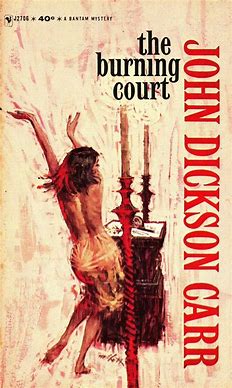 When I was a little
older,
certainly older than four, and approaching teenage years, I was
allowe3d to leave the house and walk down to the sea front to watch the
sea coming in or going out. The long days of those two week holidays in
the summer school break were spent on the beach, where we would dig
sandcastles and romp in the sea, eat ice creams and visit the
entertainment halls where I would put pennies in slots, occasionally
winning a small prize, or play bingo, where there were more
opportunities for winning prizes; there was always plenty to do in
Ramsgate, and where we felt like a long walk, we would walk the cliffs
to the next resort, Broadstairs, which was more sedate and less
"developed" than Ramsgate. On the day we went home after our two weeks,
Dad and I would walk down for a last look at the sea before catching
the coach back to Victoria and thence back to Gloucester for the final
leg of our journey home to 72 Boverton Drive, Brockworth. The thing I
remember most about our home in Gloucester was the fact that the front
door wouldn't open. It wasn't until we were on the point of moving out
that Dad finally fixed it. I remember the interior layout, of course.
Two identical rooms, a front room and a dining room, and a small
kitchen, which contained one of those tall units with a pull-down front
and cupboards below and above. Next to that, a kitchen table on which
all of our food was prepared. On the opposite wall was the sink and
draining board, and on the back wall, a pantry, in which the fresh food
like meat and butter was stored. There was a hole in the back wall of
the pantry which was filled with some kind of mesh that allowed the
food to keep cold - no refrigerator, no washing machine. We didn't have
a refrigerator until 1963, when we moved to the three-bedroomed flat
above the shop in Stevenage - that was the same year we first got a
television. When I was a little
older,
certainly older than four, and approaching teenage years, I was
allowe3d to leave the house and walk down to the sea front to watch the
sea coming in or going out. The long days of those two week holidays in
the summer school break were spent on the beach, where we would dig
sandcastles and romp in the sea, eat ice creams and visit the
entertainment halls where I would put pennies in slots, occasionally
winning a small prize, or play bingo, where there were more
opportunities for winning prizes; there was always plenty to do in
Ramsgate, and where we felt like a long walk, we would walk the cliffs
to the next resort, Broadstairs, which was more sedate and less
"developed" than Ramsgate. On the day we went home after our two weeks,
Dad and I would walk down for a last look at the sea before catching
the coach back to Victoria and thence back to Gloucester for the final
leg of our journey home to 72 Boverton Drive, Brockworth. The thing I
remember most about our home in Gloucester was the fact that the front
door wouldn't open. It wasn't until we were on the point of moving out
that Dad finally fixed it. I remember the interior layout, of course.
Two identical rooms, a front room and a dining room, and a small
kitchen, which contained one of those tall units with a pull-down front
and cupboards below and above. Next to that, a kitchen table on which
all of our food was prepared. On the opposite wall was the sink and
draining board, and on the back wall, a pantry, in which the fresh food
like meat and butter was stored. There was a hole in the back wall of
the pantry which was filled with some kind of mesh that allowed the
food to keep cold - no refrigerator, no washing machine. We didn't have
a refrigerator until 1963, when we moved to the three-bedroomed flat
above the shop in Stevenage - that was the same year we first got a
television.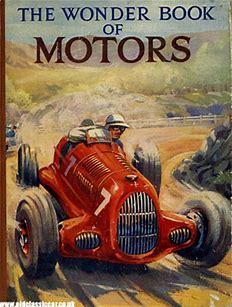 There was an old gas
cooker with
an eye-level grill in the kitchen. Compared with today's fitted
kitchens and appliances, it was primitive, but we ate well, and we were
never bothered with upset stomachs because our food wasn't chilled in a
refrigerator. I don't recall the butter ever being runny or unusable.
My favourite food from a very early age was sausages, which we bought
from Mr Jacomelli the butcher in the little parade of shops at the end
of Boverton Drive. On one side of the road there was the general store
run by Mr Ellis, above whose shop Jean was born in 1941. Between then
and 1946, when I was born, the family must have moved into 72 Boverton
Drive. I was proud to know that of all the houses in the Drive, ours
and next doors - they were semi-detached three bedroomed villas, our
two gardens were far and away the biggest. Next door was a family of
six, I forget their name, but they moved out in 1948, making way for
Harold and Iris Hughes and their four children, Adrian and his sister,
and the ginger-haired twins Nigel and Norman, who were two years older
than me. They were Methodists. I don't say that detrimentally, of
course, but simply to illustrate the point that the parents seemed to
be much stricter than mine. What's more, they didn't use their front
room. What? They kept it for best. Best what? They rarely had visitors,
and when they did they were entertained in the dining room. We played
together, Nigel, Norman and I, despite our age difference. They taught
me to climb trees, taking me higher than I had ever been before, and
making sure I didn't fall. Eventually, of course, they took their 11+,
which they both failed. Harry, their father, was so incensed that they
had failed, he paid for them to attend a private school in Gloucester
near to the Cathedral; Kings' School took day students as well as
boarders, and they went there as day students until it was time to
begin their A level studies, at which point they transferred to my
school, Crypat Grammar School for Boys, where they were celebrated for
being twins, and I was the only person in the school who could tell
them apart, which earned me many bonus points, I can tell you! There was an old gas
cooker with
an eye-level grill in the kitchen. Compared with today's fitted
kitchens and appliances, it was primitive, but we ate well, and we were
never bothered with upset stomachs because our food wasn't chilled in a
refrigerator. I don't recall the butter ever being runny or unusable.
My favourite food from a very early age was sausages, which we bought
from Mr Jacomelli the butcher in the little parade of shops at the end
of Boverton Drive. On one side of the road there was the general store
run by Mr Ellis, above whose shop Jean was born in 1941. Between then
and 1946, when I was born, the family must have moved into 72 Boverton
Drive. I was proud to know that of all the houses in the Drive, ours
and next doors - they were semi-detached three bedroomed villas, our
two gardens were far and away the biggest. Next door was a family of
six, I forget their name, but they moved out in 1948, making way for
Harold and Iris Hughes and their four children, Adrian and his sister,
and the ginger-haired twins Nigel and Norman, who were two years older
than me. They were Methodists. I don't say that detrimentally, of
course, but simply to illustrate the point that the parents seemed to
be much stricter than mine. What's more, they didn't use their front
room. What? They kept it for best. Best what? They rarely had visitors,
and when they did they were entertained in the dining room. We played
together, Nigel, Norman and I, despite our age difference. They taught
me to climb trees, taking me higher than I had ever been before, and
making sure I didn't fall. Eventually, of course, they took their 11+,
which they both failed. Harry, their father, was so incensed that they
had failed, he paid for them to attend a private school in Gloucester
near to the Cathedral; Kings' School took day students as well as
boarders, and they went there as day students until it was time to
begin their A level studies, at which point they transferred to my
school, Crypat Grammar School for Boys, where they were celebrated for
being twins, and I was the only person in the school who could tell
them apart, which earned me many bonus points, I can tell you!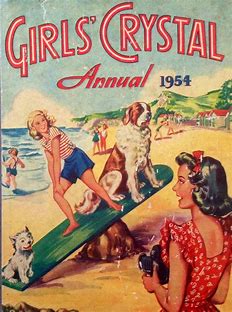 I
was telling you about the shops
- opposite Mr Ellis's general store, where we bought our sweets, ice
creams, pop (Tizer, mainly) and toothpaste (those little round tins of
solid toothpaste that you softened with your toothbrush and cold
water), and various other items, there was the row of three shops that
ended with Jacomelli's the butcher. I believe one of the other two
shops was a ladies' hairdressers, but I can't swear to it; I have no
idea what the third shop was. We had our newspaper delivered from Mr
Lees's post office down on the main road, which was Ermin Street, and
ran from Cheltenham to Gloucester. I have no idea if this was the
original Ermin Street built by the Romans, but it was certainly a very
straight road. If you followed it the other way, as though you were
headed to Cheltenham, you came to a large roundabout, and if you went
straight on, to the East, you climbed up into the start of the
Cotswolds. Turn right and you went to Cranham Woods, and the top of
Cheeseroll Hill. Turn left and you went to Charlton Kings, the
racecourse, and finally Cheltenham. When I was four and a half years
old, I started school. I always thought that my first school, which had
one class, one classroom and about twenty pupils, was in Shurdington,
and there are plenty of references on the web about the little school
at Shurdington. But it's in the wrong direction. My most vivid memory
is of clinging to one of the poles in a double decker, hanging on for
dear life as it climbed a very steep hill after turning right and
passing Cranham Woods. Either way, I attended this one form school for
just a few months, because in the summer of 1951, Brockworth New County
Primary School was opened, Jean was in the top year, and was a prefect,
whilst I was in the bottom year. I
was telling you about the shops
- opposite Mr Ellis's general store, where we bought our sweets, ice
creams, pop (Tizer, mainly) and toothpaste (those little round tins of
solid toothpaste that you softened with your toothbrush and cold
water), and various other items, there was the row of three shops that
ended with Jacomelli's the butcher. I believe one of the other two
shops was a ladies' hairdressers, but I can't swear to it; I have no
idea what the third shop was. We had our newspaper delivered from Mr
Lees's post office down on the main road, which was Ermin Street, and
ran from Cheltenham to Gloucester. I have no idea if this was the
original Ermin Street built by the Romans, but it was certainly a very
straight road. If you followed it the other way, as though you were
headed to Cheltenham, you came to a large roundabout, and if you went
straight on, to the East, you climbed up into the start of the
Cotswolds. Turn right and you went to Cranham Woods, and the top of
Cheeseroll Hill. Turn left and you went to Charlton Kings, the
racecourse, and finally Cheltenham. When I was four and a half years
old, I started school. I always thought that my first school, which had
one class, one classroom and about twenty pupils, was in Shurdington,
and there are plenty of references on the web about the little school
at Shurdington. But it's in the wrong direction. My most vivid memory
is of clinging to one of the poles in a double decker, hanging on for
dear life as it climbed a very steep hill after turning right and
passing Cranham Woods. Either way, I attended this one form school for
just a few months, because in the summer of 1951, Brockworth New County
Primary School was opened, Jean was in the top year, and was a prefect,
whilst I was in the bottom year.I loved my time at this brand new school, and remember at least two of my favourite teachers, Miss Paige and Mr Rossiter, both of whom brought out the best in me, so much so that at age ten, I was considered good enough to sit the 11+ exam. I remember Brenda Offer, who lived in Boverton Drive, and who became my regular country dance partner. She was probably the first girl I was in love with. I remember Joan Mclaren and her older brother Gilmour McLaren. I remember Thomas Tullis, who shut my thumb in the French doors, an excruciatingly painful injury for which I still bear the scar. I remember Mr Gillow, the headmaster, who punished me for leading a revolution against the horrific lumpy custard they served us with our school dinners, and I remember his son Robert Gillow, also in my class and several months older than me, who sat the 11+ at the same time as me, and failed, much to the disgust of his father. At school break times we played games like "What's The Time Mr Wolf?", and rounders and so on - I wasn't particularly good at games, being bookish, and when we went to the playing fields for a kickabout, I invariably made an excuse to go home early so that I could sit up in bed and read my books and comics. During my time at Brockworth New County Primary School, I learnt to read and write well, and had a huge vocabulary. I read classics and adventure stories by people like Charles Dickens, Robert Louis Stevenson, R M Ballantyne, whilst at the same time discovering the joys of John Dickson Carr, John Creasey, Leslie Charteris, Dennis Wheatley, Edgar Rice Burroughs and so on. I remember our class being given a project, to write a nonfiction book about something we were passionate about.I chose Ocean-going liners and duly wrote off to companies like Cunard and P&O, asking for their brochures, which I used to write my book. I loved the idea of ocean-going liners, but never got round to sailing on one. Whilst on holiday in Ramsgate, we went, every year, on a motor boat trip out into the channel, retracing the journey undertaken by this actual boat, when the flotilla of boats and ships went to rescue the survivors of Dynkirk. The captain of the boat had actually sailed his boat to Dunkirk and had brought back twenty or so survivors before turning round and going back for more. It was something both thrilling and exhilarating to think I was following in the footsteps of my wartime heroes. Scroll down for Growing up in the 1950s/1960s Episode 2 : Episode 3 : Episode 4 : Episode 5 : Episode 6 : Episode 7 Episode 8 : In this issue, Episode 9 October 2021 - jump to the latest episode here... Episode 1 Time to start talking about music and me, I think. I was born into a musical family - that is to say, my Mum played the piano, my Dad played a variety of stringed instruments - we have a photograph of him in fancy dress as a gypsy, playing a violin, but from memory he was never that good on the violin, although he excelled on the mandolin-banjo; my sister Jean, who passed away last month, played the piano, and I played, firstly the recorder (of which more in a moment), then the violin (until the incident with the violin teacher), and finally the guitar, my basic prowess at which I managed to pass on to my two boys, who are both far superior to me; and finally, my violin playing rubbed off on daughter Samantha who went the whole hog and is a Master of Music. So, when I say that I come from a musical family, I'm not talking about more than two generations, I'm talking about my immediate family. My uncles sometimes joined in with stringed instruments such as mandolins, but more often than not they were content to sit and listen as we murdered such classics as Suppé's Poet and Peasant, and tunes from motion pictures such as The Wedding of the Painted Doll. If you were to raise the lid of the piano stool, you would find a massive pile of sheet music, all for the pianoforte. We had one in the house, and my Dad occasionally attempted to tune it, often well enough for Jean to practice her Schubert and her Chopin. There was a time when she was the most gifted musician in the house, but I like to think that when I passed grade three Violin I was starting to overtake her, and by the time I had mastered the basics of guitar playing (jazz and skiffle), she was married and living in a caravan in Charlton Kings, near Cheltenham. Of course, playing an instrument doesn't make you an expert in music. For that, you need to listen. My first instrument, the recorder, was something I was very good at, but it required me to produce a lot of spittle. So much that, my Mum and Dad, being very good with practical jokes of the variety that didn't hurt you mentally, made a cardboard box from a cereal packet (easy, really, just cut the bottom off) and tied it with string to my recorder. I was so good at the recorder (performing regularly in ensemble at my Primary School), that I was sent down the road a few doors to where Mrs Livesey lived, the piano teacher who had made such a brilliant job of teaching Jean. But, to my dismay, I was no good at piano. My left hand wanted to play the same notes, an octave lower, than my right hand, and vice versa. Later, much later, after many years of playing violin and then guitar, I taught myself to play The Old Rugged Cross on our old piano, achieving a very commendable left hand accompaniment. But my greatest love was the guitar. My earliest memories of listening to music are of Listen With Mother. This would have been from 1950 onwards, when I was walking, and looking at picture books by Mabel Lucy Attwell, and learning to read, and when my ears started to tune themselves to the rather pleasant sounds that came out of the box on the small table in the alcove in the front room next to the bay window. The time was 1:45pm, the introductory music was a few notes on the piano, and then Daphne Oxenford or Julia Lang, who both had the sweetest voices on the radio, asked "Are you sitting comfortably?..... Then I'll begin." And they would start to read to me, stories that featured characters such as Larry the Lamb and Dennis the Dachsund and their adventures in Toytown. The programme finished a quarter of an hour later, with Gabriel Fauré's Dolly Suite. The music is beautiful, the stories were especially tailored for us "baby boomers", children born after 1945 celebrations. I was a baby boomer, sister Jean was a war baby, born in 1941. I miss Jean terribly - we spoke often on the phone; she always looked after me in the early days, and we always got on famously, except for that time when I bought the Beatles' first LP, and played it over and over again downstairs on the radiogram, causing her to make her one and only ccomplaint (that I remember) to my Mum, about playing my music too loud. It was different when she wanted to play her Frank SInatra LPs, of course. But I'm getting ahead of myself. Radio was everything in the 1950s. few people had televisions, at least in our street. Our new next door neighbours, the Hughes family, comprising Ida (mother), father (forget his name), Adrian, Norman and Nigel (the ginger-haired twins) and their sister (forget her name too!), had a television, a nine inch screen which was positioned in the hall, into which we were invited to stand and watch the Coronation in 1953. I imagine they moved the TV into the hall from the lounge, which was always kept shut, except on special occasions (to which we were not privy). The parents were Methodists, very strict, and kept themselves and their home private. They kept up with the Gardners, who lived on the opposite corner, because in their opinion, we were lower in class, probably because we could not afford a television and neither could we afford a car. Both the Hughes family and the Gardner family bought brand new Ford Anglias on the same day... Norman and Nigel, who were rebellious, weren't Methodists, if anything they were unbelievers, never once went in their father's car. At least, that's how it seemed to me. Back to Radio. In those days, there was The Light Programme, The Home Programme, and The Third Programme. With the relaunch of BBC Radio in the 1960s, these became, respectively, Radio 2, Radio 4, and Radio 3. The bulk of the music was to be found on The Light Programme and the Home Programme, unless you had a love of classical music, in which case you tuned to The Third Programme. I had no knowledge or even a liking for classical music in my formative years - that came much later. As a toddler, I listened to every music programme on the radio: Workers' Playtime, Parade of the Pops, Housewives' Choice, Music While You Work, Henry Hall's Music Night, Friday Night is Music Night, Children's Favourites, Two-Way Family Favourites (which often became Three-Way and even, on occasion, Four-Way Family Favourites). Every programme on the BBC had its own theme tune, of course, and on Children's Favourites I would be regaled with all manner of musical treats, like 'Peter and the Wolf', 'The Ugly Duckling', Gilly Gilly Ossenfeffer, Katzenellen Bogen By the Sea', ''The Runaway Train', 'Teddy Bears' Picnic' 'Nellie the Elephant', 'A windmill in Old Amsterdam', 'Sparky's Magic Piano' and my of course, the Oberkirchen Children's Choir singing 'The Happy Wanderer'. As the years progressed and my musical tastes blossomed, I was exposed to simple folk tunes such as Barbara Ellen, and Bobby Shaftoe at school, and various others to which we did country dancing (one of my favourite lessons at school!). I remember one occasion when the Headmaster, a terrifying tyrant called Mr Gillow (whom I didn't like and with whose bullying son I had a run-in in about 1955) brought a gramophone into our lesson and played Smetana's The Bartered Bride Overture. I don't know why, but it made me think about listening to other music - it was exciting, electrifying, hugely enjoyable, and I knew that other music existed because, as I said earlier, we listened to every music programme going, including Mantovani, who murdered various light classical pieces. By this time, I had discovered our own wind-up gramophone, which I believe had a built-in speaker, not one of those giant horns you see in the illustrations of the period, and a stack of 78rpm shellac records of performers like Al Bowlly, Harry Roy and his Band, Jack Hylton and his Orchestra, etc., etc. There was a built-in tray holding the needles you needed to replace on a regular basis. In the next road, my Great Uncle Ernie and Aunt Grace lived. He was OK, she was horrible. But he gave me a pile of 78s to play on my newly discovered toy, for which I was very grateful, finding amongst them,, for example, a performance by Django Reinhardt and the Quintette du Hot Club de France. I was delighted to discover later that day that my Dad also had some Django 78s, and these became the flavour of the month for me, so much so that when my French teacher said we all had to give a five minute presentation (in French) to the rest of the class, I chose to speak about the amazing Django Reinhardt. He was Belgian, not French, but the language was the same, wasn't it? By this time, the world had moved on. To 45rpm single records, and 33-and-a-third rpm albums. On the way home from school in 1958, I went past Currys in the Oxbode in Gloucester. On the opposite side of the road was the massive side profile of the five-storey Bon Marché Department store. But Curry's had what I wanted - a radiogram that not only played all three speeds of record, it also had a radio built in. Our radio, the one that I used to listen to Listen With Mother on, was very old, and past its best. At least as far as I was concerned. Mum, Dad and Jean were happy with it. I was not. I was excited by the prospect of being able to put on an album and not have to get up to change the record, but to sit and listen for anything up to a half hour. In those days I could nag for England, and I nagged and nagged and nagged until Mum caved in and went to Currys and signed a hire purchase agreement for the radiogram. Once it was installed, I had other things on which to spend my pocket money and the money from my paper round besides books and comics. And music was starting to become much more important to teenagers like me. Up till now, we had to get our popular music fixes from Radio Luxembourg on frequency 208. I remember the first LP record I bought - it was a truncated performance of Beethoven's 5th Symphony on the Embassy Record Label, which was exclusive to Woolworths. I'd been with my Dad to a working men's club, which was a smoke-filled room in the middle of Gloucester, where a couple of hundred men stood and listened to a gramophone record recital of the symphony. It blew my mind! And once we had the radiograme, I simply had to have it. Years later I started to buy Classics for Pleasure LPs and discovered that the Embassy 10-inch record missed all of the repeats, and was actually very poor value for money. But at least my record collection was up and running. Some record purchases were hit and miss in those days. Everyone in the family loved traditional jazz, and in the very late 1950s, we heard a performance of Blaze Away, a John Philip Sousa march, by a new band called "Mr Acker Bilk and his Paramount Jazz Band". There was, in those days, I think, a radio programme devoted to jazz. I was duly sent out on Saturday morning to hunt down a copy. In Gloucester, there was Hickey's Music Shop, of which more later, and the Bon Marché department store. Hickeys didn't have the record, and neither did Bon Marché. What the latter did have was a performance of "Whistling Rufus" by Chris Barber's Jazz Band, and with the money Mum, Dad and Jean had given me to buy Blaze Away, I bought Whistling Rufus. There was much disappointment. But in the end I was forgiven, because my Melody Maker newspaper revealed that Blaze Away was on an album and had not been released as a single. By this time, I was hooked on Acker Bilk, and it coincided with "trad jazz" becoming the hottest thing in British music making. Dozens of new bands surged onto the market, with Dick Charlesworth's City Gents, Terry Lightfoot's Band, The Dutch Swing College Band, Chris Barber's Jazz Band, Kenny Ball's Jazz Men, and Mr Acker Bilk and his Paramount Jazz Band, to name just a few. I don't know if it was the name of the band, or the amazingly different and beautiful clarinet of Acker's that hooked me, but for me his was absolutely the best trad jazz band ever, and I set out to follow him and to collect his records. It was about 1961, when Acker changed record labels from the Pye Blue Jazz label to EMI, and at that point, he appointed publicist Peter Leslie, a literary genius, to handle his promotion and to write his record sleeve notes. There is nothing quite like an Accker Bilk sleeve note, which I am in the process of preserving on a special page in Books Monthly. The trad jazz phenomenon was comparatively short-lived, although Acker did shoot to international fame and acclaim with the gorgeous and very memorable Stranger on the Shore, which ensured he was never forgotten, and must have provided him with adequate funds to keep him in comparative luxury until he passed away in 2014. What followed trad jazz in Britain was quite extraordinary, and changed music forever... The thrill of finding out about new albums (and even the occasional single record or EP) by Mr Acker Bilk and His Paramount Jazz Band came about by me buying, every week, the Melody Maker and the New Musical Express. As I recall, there were sections on traditional jazz - and modern jazz, which I abhorred, always have, and always will - in both papers, which regularly listed the top bands, as voted for by the readers, and even twenty or so years after Django Reinhardt and the Quintette disbanded, they still figured in the top tens, because people with longer memories still voted for them. In 1958 or so, Ken Colyer's Jazz Men were still dominating the traditional jazz scene; Acker Bilk had played with them for a few months in the early 1950s before forming his own ensemble, and in their early days, they specialised in "jazzed-up" versions of Sousa marches, such as Blaze Away, Under the Double Eagle, etc., etc., which were released as 78rpm shellac records on the blue Pye Jazz label. Then in 1960, Bilk employed Peter Leslie, an up and coming pulp fiction writer, to be in charge of his publicity. He changed labels, to EMI; Leslie had the idea of dressing the band members in fancy waistcoats and bowler hats, about which I have written extensively on the Acker Bilk Sleeve Notes Page of this magazine, and which has been updated this month with a further selection of Acker's album notes written by Peter Leslie. That same year Acker's single SUMMER SET reached number five in the UK charts, and the floodgates of traditional jazz in Britain were opened. The Wikipedia page says that bands such as Acker Bilk's, Kenny Ball's and Chris Barber's tried to revive traditional jazz in Britain. I know enough about traditional jazz to know that this wasn't a revival - traditional jazz had always been popular with purists, but there was only one Golden Age of traditional jazz in Britain, and that was in the early 1960s. Those bands weren't "reviving" anything, they were playing the music that they had always loved, emulating their 1920s heroes (Jelly Roll Morton, King Oliver, Louis Armstrong's Hot Five etc.), and the British public liked what they heard and trad jazz became the dominant music genre for at least a couple of years, fading away in 1962 as the Beatles wrought the biggest revolution in popular music not just in Britain but all over the world. The 1920s in Britain had seen the boom in "swing" orchestras, like Harry Roy, Jack Hylton etc., and this genre also boomed in Britain in the early 1960s with The Temperance Seven. But the dominant two bands were Acker Bilk's and Kenny Ball's, who had a string of top 40 hits. For me, there was only ever Acker Bilk - or Mr Acker Bilk, as Peter Leslile defined him - and his Paramount Jazz Band. They were far and away the very finest musicians on the trad jazz circuit, and if you listen to Jelly Roll Morton's classic single "Doctor Jazz" and compare it with Acker's "Stomp Off, Let's Go", you can hear what Acker was trying to achieve, and how brilliantly he succeeded. There is footage on YouTube of Acker and his band playing "In a Persian Market Place", a light classical "bonbon" by Ketelbey, arranged by Acker, showcasing the brilliance of the Paramount Jazz Band in all its glory. I urge you to watch it, it is terrific, and shows an ensemble at the top of its game. The other reason for my choosing Acker above all others in the trad jazz field is the plethora of literature produced by Peter Leslie's BILK MARKETING BOARD, which was the name of the publicity machine that ensured that Acker dominated the trad jazz phenomenon that swept Britain from 1960-1962. When Acker wrote a tune which he called "Jenny" after his daughter, (subsequently renamed Stranger on the Shore to accompany a hugely successful children's TV serial) I was delighted, because it meant that my hero (who hailed from the West Country, just as I did) would still be dominating the charts even though music was changing in Britain. The announcement of the album, with Acker backed by the Leon Young String Chorale, was made in the NME and Melody Maker, with the caveat that it would be issued in the United States about five months before it would be released in Britain. I was by that time a subscriber to a record company - like the Companion Book Club, which sent you a monthly selection which you could keep or return - and they also announced the US release of the Stranger On the Shore Album. I ordered it through them, which meant that I had the precious LP in my hands five months before it was released over here; and I treasured it just like all of the other Acker Bilk albums. The sleeve notes were again written by the marketing and literary genius, Peter Leslie, and you'll find this on the Acker Bilk page in Books Monthly, too. Trad Jazz, and particularly Acker Bilk's renderings of it, have remained favourites of mine right up to the present day. Most of those brilliant Acker Bilk albums have been released as CDs, but the CD producers have not recognised how important the sleeve notes were and are, which is why I have taken it upon myself to reproduce them in Books Monthly. It is literature, after all. The late 1950s and early 1960s are imprinted on my memory as my Golden Age of music - or discoveries, of passions, of formative years. In 1958 my dear Gran died. I only ever had one grandparent, the other three all died before I was born. She was precious to me - I have only the fondest memories of her. In 1958 I was eleven years old (when she died - I reached twelve later in the year). Mum and Dad decided I might be too young to attend her funeral, and so I was packed off to spend the day with sister Jean in her place of work in Cheltenham, in a Grace Bros., style store called Wolfe and Hollander, where she worked as a secretary. I was given a ten shilling note (a fortune in those days) and told to go and spend it, to buy something I really wanted, so that the day would be remembered as a good one, and not as a dark one, the day they buried Gran. I went first into a branch of W H Smith and bought THE ADVENTURES OF SHERLOCK HOLMES, and then into a record shop, where I bought THE BALLAD OF TOM DOOLEY by the KINGSTON TRIO. I was heavily into my music by then, books and music were my principal hobbies. When the weather was too bad for outdoor play, like football, I was happy to sit in the front room playing my records and reading my books. 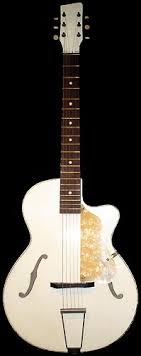 Like my three children
after me, I
always maintained that I could do my homework with my music playing in
the background. It worked for me, and it worked for them! At school,
the arguments raged about who was best - Elvis Presley or Cliff
Richard. One of my rivals for being best at Spanish, a boy we called
"Pedro" Smith (Smith was his real name, Pedro was his nickname, first
name was really Peter), insisted on championing Elvis, but for the
purposes of just being different, I championed Cliff Richard - even
though he didn't interest me at all. If anything, he was a bit wet for
me, but I was happy to debate the various records of the two men who
dominated pop music in 1958 and on into the beginning of the 1960s. In
1962, recovering from my abuse at the hands of the peripatetic violin
teacher, with whom I reached and passed Grade 3, I was looking for a
musical challenge, for the violin had lost its appeal. I found an old
guitar in a cupboard upstairs at home, and tuned it so that it played a
chord. I spent hours teaching myself to play, sitting in front of the
big mirror in Mum and Dad's room, and then realised that I should
really be tuning it properly. This I did, and set about teaching myself
all over again, sometimes with the aid of the Bert Weedon book,
sometimes without. This coincided with my discovery of the breathtaking
genius of Django Reinhardt - I even gave a speech in my class about
Django, all in French, it was something we all had to do, and I chose
to talk about a Belgian! But as well as the 78rpm records Dad had dug
out of his collection, there were leaflets, concert programmes, sheet
music, many of which had pictures of Django, some of which showed him
playing that amazing Macaferri guitar. I had to have a guitar of my
own, and it had to look something like Django's. So off I went to
Hickey's the big music shop in Northgate, in Gloucester city centre,
and looked for a guitar with a cutaway, at a price I could afford. I
found one which probably looked more like Roy Rogers's guitar, but
never mind. It was a Rosetti guitar, white with a thin dark line all
the way round the edge. The one pictured doesn't have the edge stripe,
but it's identical in every other respect. My eldest son Martin still
has it. My guitar cost £3, and I paid a deposit of ten shillings, the
remainder to be paid in weekly instalments, which took most of my paper
round money. At last I had a decent guitar of my own, and, what was
more important, I could play it! Like my three children
after me, I
always maintained that I could do my homework with my music playing in
the background. It worked for me, and it worked for them! At school,
the arguments raged about who was best - Elvis Presley or Cliff
Richard. One of my rivals for being best at Spanish, a boy we called
"Pedro" Smith (Smith was his real name, Pedro was his nickname, first
name was really Peter), insisted on championing Elvis, but for the
purposes of just being different, I championed Cliff Richard - even
though he didn't interest me at all. If anything, he was a bit wet for
me, but I was happy to debate the various records of the two men who
dominated pop music in 1958 and on into the beginning of the 1960s. In
1962, recovering from my abuse at the hands of the peripatetic violin
teacher, with whom I reached and passed Grade 3, I was looking for a
musical challenge, for the violin had lost its appeal. I found an old
guitar in a cupboard upstairs at home, and tuned it so that it played a
chord. I spent hours teaching myself to play, sitting in front of the
big mirror in Mum and Dad's room, and then realised that I should
really be tuning it properly. This I did, and set about teaching myself
all over again, sometimes with the aid of the Bert Weedon book,
sometimes without. This coincided with my discovery of the breathtaking
genius of Django Reinhardt - I even gave a speech in my class about
Django, all in French, it was something we all had to do, and I chose
to talk about a Belgian! But as well as the 78rpm records Dad had dug
out of his collection, there were leaflets, concert programmes, sheet
music, many of which had pictures of Django, some of which showed him
playing that amazing Macaferri guitar. I had to have a guitar of my
own, and it had to look something like Django's. So off I went to
Hickey's the big music shop in Northgate, in Gloucester city centre,
and looked for a guitar with a cutaway, at a price I could afford. I
found one which probably looked more like Roy Rogers's guitar, but
never mind. It was a Rosetti guitar, white with a thin dark line all
the way round the edge. The one pictured doesn't have the edge stripe,
but it's identical in every other respect. My eldest son Martin still
has it. My guitar cost £3, and I paid a deposit of ten shillings, the
remainder to be paid in weekly instalments, which took most of my paper
round money. At last I had a decent guitar of my own, and, what was
more important, I could play it! Episode 2 About this time also, the Light Programme on BBC radio started a programme called Saturday Skiffle Club - an hour-long programme celebrating the boom in skiffle, headed by Lonnie Donnegan, who had previously played with the Chris Barber Jazz Band. In 1960, the programme dropped the word "skiffle" and was extended to two hours, and became a secondary source of finding out about new and forthcoming records in the trad jazz boom. Make no mistake, trad jazz was everywhere for the best part of two years. Every weekly magazine for girls had portrait pictures of those all-important trad jazz purveyors. There was no doubt, the three "Bs", Barber, Ball and Bilk (Chris, Kenny and Acker respectively) were outstanding. There were others who tried to copy Acker Bilk, bands like Dick Charlesworth's City Gents, who also dressed snazzily, but they lacked something that Acker's band had, and that was Peter Leslie and the Bilk Marketing Board, not to mention the outstanding talent of Acker and his fellow band musicians. You'll find much more about Acker Bilk on my Acker Bilk Sleeve Notes page here... When Uncle George came to stay with us in the summer holidays, he calmly announced that Johnny Mortimer, Acker's trombonist, was a nephew of his, which means that I was related to one of the Paramount Jazz Band, if only by marriage! I was thrilled beyond belief at this news! And with Stranger On the Shore becoming the best-selling record of 1962, he and the Paramount Jazz Band left all the other trad jazz bands behind. Coincidentally, the Beatles were beginning to become known - LOVE ME DO and the issue of their first album, PLEASE PLEASE ME in early 1963 were indicators of something quite extraordinary, and the banter at school no longer included Cliff Richard, it was all about Elvis vs The Beatles, and no prizes for guessing who won! On the Acker Bilk page in this issue of Books Monthly you'll see a poster showing Acker Bilk and the Beatles. This would have been in 1962, when the Beatles played in Gloucester Odeon, a support act for Acker. I MEET THE BEATLES! In 1962, this would have been, and I frequently walked through the city after getting off the bus that took us from school on the way home. It was a two-bus journey, the first bus dropping us off in Westgate, and then a walk through to the bus station in King's Square; and I would spend a lot of time in Hickey's music shop, buying the occasional single, of which there was a box in the left hand side of the shop. I went into the shop looking for a copy of Ray Charles (and the Ray-lets) singing WHAT'D I SAY, which I'd heard on Radio Luxembourg, and found a cover version by Bobby Darin, who happened to be my favourite singer. I was aware of three older youths, all wearing long black overcoats, messing about in the right hand side of the shop, taking guitars down off the wall and playing them, much to the dismay and anger of Mr Hickey, who was an old-fashioned and rather intolerant shopkeeper. These youths could only mean one thing to him -trouble! I saw them coming towards me out of the corner of my eye, and one of them said "what record are you getting, then", in a deep, gruff Liverpool accent. I didn't want any trouble, so I handed him the single, and he grinned, and said: "Good choice, Kid", and handed it back. I paid for my record and left the shop, realising as I walked to King's Square in order to board the bus home, that it had been John, Paul and George in the music shop, the guys who had asked me what record I was buying! Ringo would have been out in the city with his camera, he was always taking photographs. I couldn't wait to tell the boys in my class the following day - I had been in Hickeys' music shop when the Beatles were there! Wow! Wow! Wow! I found out later that they were appearing at the Gloucester Odeon as the support band for Cliff Richard or Marty Wilde or someone like that. And I'd met them, and they'd spoken to me! Trad Jazz took a back seat when I bought my PLEASE PLEASE ME album. I played it over and over again, as loud as I dared, and Jean still complained, asking my Mum to make me "turn it down". For me, the world of music changed overnight with the Beatles as it did for so many other millions of people. From pooh-poohing rock and roll, preferring trad jazz (and a small number of select classical pieces), I was desperate for Little Richard, Jerry Lee Lewis, Elvis, but first and foremost, the Beatles... and then we moved from Gloucester in the summer of 1963, and within a couple of years, my musical horizons had widened... Episode 3 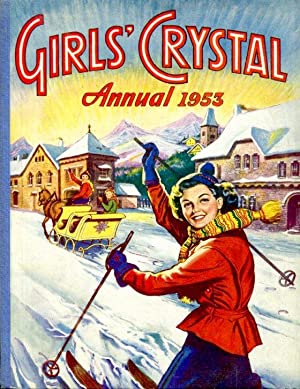 For a few months we
stayed with Aunt Florrie and Uncle
Stan in their little flat above their hardware shop in Prittlewell, on
the outskirts of Southend-on-Sea. Mum and Dad had already arranged for
me to pick up my schooling at Southend School for Boys - but it would
have meant me starting my "A" Levels all over again, having lost a year
at the Crypt Grammar School in Gloucester, and I didn't think I could
face another two years of "A" levels, even though I would by then have
been the right age for them rather than a year too young. I spent the
best part of five months traipsing around Southend on Sea, and
inevitably found myself in the public library. I had discovered the
delights of a large public library in my last few months in Gloucester,
and the sheer number of books had inspired and broadened my reading. In
Southend
Public Library, which I was allowed to join with my Mum standing as
guarantor, I discovered drama - written drama, that is. I had studied
Shakespeare at the Crypt, reading Twelfth Night for "O" Level English
Literature, and starting Macbeth for "A" Level, along with Paradise
Lost, which I loved, and Under Milk Wood (which I didn't like at all).
In Southend, I was in the literature section and chanced upon a group
of books which were the collected plays of Noel Coward. Intrigued, I
borrowed volume one and discovered the delights of an almost
contemporary literary genius, because he was still alive in 1963, of
course. It made a change to read plays written by someone still alive,
and although they were plays that had had their heyday in the 1920s and
1930s, they captivated me - I lapped them up, so to speak, and when I
had read the complete plays of Noel Coward, I cast around for other
twentieth century playwrights, and found Terence Rattigan, but more
importantly, I found J B Priestley. For a few months we
stayed with Aunt Florrie and Uncle
Stan in their little flat above their hardware shop in Prittlewell, on
the outskirts of Southend-on-Sea. Mum and Dad had already arranged for
me to pick up my schooling at Southend School for Boys - but it would
have meant me starting my "A" Levels all over again, having lost a year
at the Crypt Grammar School in Gloucester, and I didn't think I could
face another two years of "A" levels, even though I would by then have
been the right age for them rather than a year too young. I spent the
best part of five months traipsing around Southend on Sea, and
inevitably found myself in the public library. I had discovered the
delights of a large public library in my last few months in Gloucester,
and the sheer number of books had inspired and broadened my reading. In
Southend
Public Library, which I was allowed to join with my Mum standing as
guarantor, I discovered drama - written drama, that is. I had studied
Shakespeare at the Crypt, reading Twelfth Night for "O" Level English
Literature, and starting Macbeth for "A" Level, along with Paradise
Lost, which I loved, and Under Milk Wood (which I didn't like at all).
In Southend, I was in the literature section and chanced upon a group
of books which were the collected plays of Noel Coward. Intrigued, I
borrowed volume one and discovered the delights of an almost
contemporary literary genius, because he was still alive in 1963, of
course. It made a change to read plays written by someone still alive,
and although they were plays that had had their heyday in the 1920s and
1930s, they captivated me - I lapped them up, so to speak, and when I
had read the complete plays of Noel Coward, I cast around for other
twentieth century playwrights, and found Terence Rattigan, but more
importantly, I found J B Priestley. 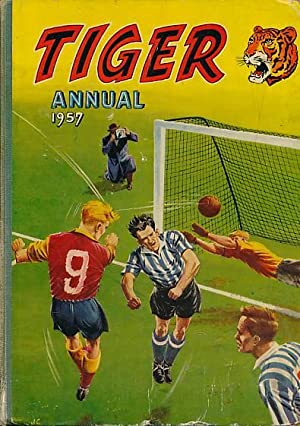 I'd already
discovered Priestley in
the fantasy section of our little W H Smith bookshop in Eastgate,
Gloucester, finding a charming and fascinating adventure book by him
entitled The Thirty-First of June. Now, in Southend Library, I found An
Inspector Calls, and
I Have Been Here Before. For a time, all I wanted to read was plays. I
missed my collections of paperbacks, the Saints, Whiteoaks, Tarzan of
the Apes etc., which I had sold prior to our move from Gloucester. I
don't know who persuaded me to part with my collections, but it's not a
choice I would willingly have made; there again, I can't imagine a
small suitcase full of precious paperbacks causing a problem with the
amount of stuff we had going into storage. I still had my record
collection - or rather, my record collection was in storage along with
the rest of our furniture and belongings (including my guitar!), but my
books were gone. It took me several years to rebuild those collections!
In the meantime, the Beatles were really starting to emerge as the
primary force in British pop music, and it was while we were staying in
Southend that I decided I wanted to see them live. We set off one
evening to purchase my ticket, and were horrified to discover that the
entire population of Southend were camped all around the town with the
same purpose. There were thousands of people waiting for the ticket
office to open and I knew, intuitively, that the Beatles were going to
become the biggest musical act in the world, and that coincidentally I
stood absolutely no chance of getting a ticket to see them for a
one-night-only performance in Southend. The following day I treated
myself to a Beatle jacket, one of those with no lapels, and I moved on.
I continued to buy New Musical Extress and Melody Maker, and one week I
filled in the answers to the regular crossword - I forget which of the
two magazines it was (or newspaper, as they were then). In December of
1963 I received notification that I had won the crossword competition
and my prize, an album of hits by Lesley Gore (all the songs were about
Crying, as I recall; such as Cry Me a River) was on its way to me in
the post to my temporary address in Prittlewell. I persuaded Uncle Stan
to get me a Dansette record player next time we went to the Cash and
Carry - I paid for it, of course, with the money I'd been saving which
he'd been paying me for serving in his shop. At last I was able to
listen once more to my music - albeit just the one album - and not just
to the music on the radio. I'd already
discovered Priestley in
the fantasy section of our little W H Smith bookshop in Eastgate,
Gloucester, finding a charming and fascinating adventure book by him
entitled The Thirty-First of June. Now, in Southend Library, I found An
Inspector Calls, and
I Have Been Here Before. For a time, all I wanted to read was plays. I
missed my collections of paperbacks, the Saints, Whiteoaks, Tarzan of
the Apes etc., which I had sold prior to our move from Gloucester. I
don't know who persuaded me to part with my collections, but it's not a
choice I would willingly have made; there again, I can't imagine a
small suitcase full of precious paperbacks causing a problem with the
amount of stuff we had going into storage. I still had my record
collection - or rather, my record collection was in storage along with
the rest of our furniture and belongings (including my guitar!), but my
books were gone. It took me several years to rebuild those collections!
In the meantime, the Beatles were really starting to emerge as the
primary force in British pop music, and it was while we were staying in
Southend that I decided I wanted to see them live. We set off one
evening to purchase my ticket, and were horrified to discover that the
entire population of Southend were camped all around the town with the
same purpose. There were thousands of people waiting for the ticket
office to open and I knew, intuitively, that the Beatles were going to
become the biggest musical act in the world, and that coincidentally I
stood absolutely no chance of getting a ticket to see them for a
one-night-only performance in Southend. The following day I treated
myself to a Beatle jacket, one of those with no lapels, and I moved on.
I continued to buy New Musical Extress and Melody Maker, and one week I
filled in the answers to the regular crossword - I forget which of the
two magazines it was (or newspaper, as they were then). In December of
1963 I received notification that I had won the crossword competition
and my prize, an album of hits by Lesley Gore (all the songs were about
Crying, as I recall; such as Cry Me a River) was on its way to me in
the post to my temporary address in Prittlewell. I persuaded Uncle Stan
to get me a Dansette record player next time we went to the Cash and
Carry - I paid for it, of course, with the money I'd been saving which
he'd been paying me for serving in his shop. At last I was able to
listen once more to my music - albeit just the one album - and not just
to the music on the radio. I don't believe Aunt Florrie and Uncle Stan had a television, but we did play Scrabble together in the evenings, and listened to our favourite radio programmes before the adults (Mum, Dad, Aunt Florrie and Uncle Stan) at last called it a day and went to their bedrooms, leaving me to make up my campbed in the front room. I remember sitting in a sea front café that November, and finding a kind of new-fangled juke box that played special versions of top hits which also carried video, one of which was an Acker Bilk single, On the Sunny Side of the Street. I put my money in the machine and watched Acker and his band on a small screen whilst simultaneously discovering the delights of Coca-Cola for the first time in my life. Episode 4 And then, finally, we moved to Stevenage New Town in Hertfordshire, at the back end of November 1963, and everything changed. My long playing records (Acker Bilk, the Beatles, Django Reinhardt, Beethoven's Fifth Symphony etc.) were unpacked, I had two record players, the one Uncle Stan had got for me from the cash and carry, and our radiogram. I had a handful of books, and set about rebuilding my collections from the W H Smith in the town. I think it was in 1963 that EMI launched a new, cheap LP label called Classics for Pleasure, and I started to collect some of those. One evening, on my way upstairs to bed (we were living in a three-bedroomed two-storeyed flat above the hardware shop we'd rented in one of the newer neighbourhoods in the new town) I glanced out of the landing window and saw an illuminated neon sign saying "Library". Intrigued, the first thing I did the following morning was to explore the area behind the parade of shops in order to find this branch library, but there was no sign of it, and I began to wonder if I had been half asleep and dreaming. It didn't occur to me that it could have been a travelling library, and I forgot all about it until 1964 dawned and Mum calmly told me that there simply wasn't enough money coming into the shop for them to pay me, and suggested that I look for a proper full-time job. My first impulse involved the local library. I'd seen it at the end of one of the shopping parades in the town centre, and I duly wrote to "the librarian" to ask for a job. Amazingly, within a week, I was invited to attend an interview, and within a few more weeks, I was offered a job as a library assistant. What was more, they wanted me to complete my "A" levels and then go off to library school and to become a qualified librarian. Why this career choice had never occurred to me before was a source of some amazement to me - I had always loved books, preferred reading to any other passtime, it was what we now call a no-brainer. It had been books like John Creasey's Inspector West series that had made me want to pursue a career in the police force, but in the end it was the books themselves that decided my career. Or so I thought... At the end of the Easter weekend in 1964 I started working in Stevenage Central Library. There must have been a staff of around thirty people, many senior, qualified staff, and an equal number of library assistants like me, whose jobs included putting books that had been returned the previous day back on the shelves, and using an antiquated card system to issue loans to customers. Being lowly junior staff, we were not allowed to direct customers to the relevant part of the library when they asked for books on specific subjects, but had to ask a qualified librarian to do it, even though, within a few weeks, I knew where every subject was, and had the Dewey Decimal Classification System off by heart, as most of us library assistants did. It was a hierarchy thing. Them and Us. Most of the qualified staff were friendly enough. Two weren't, and never spoke to us unless it was to give us an order. Brian and Patrick. Mr Arnold and Mr Kelly. They never let their hair down, they never socialised with us, even at Christmas time. They kept strictly to the hierarchy. Even the chief librarian, who had interviewed me, John Nightingale, was friendlier than those two. I knew just about everyone I worked with by sight, but there were certain members of staff who worked upstairs on specialised jobs, and we rarely bumped into each other, at least not until after the Rolling Stones came to town. I was familiar with the Stones courtesy of my best friend James, from our days at the Crypt. I'd stayed for a weekend with him in Harrow on the Hill, north London, and after an evening meal, we went out in search of musical adventure. James had settled into the London night scene very quickly and very well. We ended up in a vast town house with several upstairs rooms being used by various groups of people mainly making music. They were probably doing all manner of other things including sex and drugs, but we were there for the music. We watched people like Alexis Korner forming his seminal group, Alexis Korner's Blues Incorporated, involving people like Clapton, Paige etc. We saw Zoot Money and his Big Roll Band before they were "big", (just a Roll Band!), and before they were even a band. And we saw Mick and Keith, too. And later that year, I went to the nearest record store and bought the Rolling Stones first album. I still preferred the Beatles, but I had to admit that the Stones were good - brilliant, in fact. And when it was announced that they were going to play a concert at the Locarno Ballroom in Stevenage that September, it seemed like the perfect birthday present to myself, and I bought myself a ticket. There was only one type of music for me in the second half of 1964 - British rock and roll - the Beatles, the Stones, Gerry and the Pacemakers... my jazz records, Acker and Django, remained in the LP carrying case, which every self-respecting record collector had in those days. I played my Beatles and Stones LPs ceaselessly. I bought Little Richard, Jerry Lee Lewis and Chuck Berry EPs, and wallowed in classic American rock and roll, then put my Beatles LP back on and decided they were better - no, they were the best! There was a very slim record store round in the bus station in Stevenage, and one day, waiting for the bus home, I spotted an LP in the window which I simply had to have. It was called "Noel and Gertie", and it was of recordings by Noel Coward and Gertrude Lawrence, and had such brilliant songs on it as "Don't Put Your Daughter on the Stage, Mrs Worthington", "Mad Dogs and Englishmen", and "Parisian Pierrot", amongst others. I treasured it. It brought to life all those plays and reviews I'd read whilst in Southend on Sea... and it was a kind of break from the Beatles, who dominated my musical life back then. But rock was king for me in 1964. The Rolling Stones simply blew my mind - just as in Honky Tonk Women (which came later, of course) - there was a kind of dais in the Locarno, where the dance orchestra would sit, and the audience - hundreds of us - stood in rapt awe as the Stones strutted their stuff. The following day my memories of that concert were brought to an abrupt halt when three of the young library assistants who worked upstairs in the library came looking for me. Two were girls I had "chatted up", even though both were engaged to be married, when we worked together in the early mornings, shelving books. The third was a thin slip of a girl who looked as though she should still be at school. I later discovered that she should still have been at school but her headmistress at Stevenage Girls' Grammar School had granted her permission to start work in the library. She had been a brilliant scholar, top of her form each and every year in just about every subject; but schoolwork was something she eventually couldn't cope with, and working in the library suited her far better. She hovered in the background whilst the other two did the talking. "Wendy was followed home by a man after she got off the bus last night. As you live near her, we wondered if you might walk her home, make sure nothing happens to her?" they said. Having been brought up to be a good citizen with the kind of manners that meant I held the door open for people, and gave up my seat on the bus for ladies, etc., etc., of course I agreed. In those days Stevenage Central Library closed at 8pm Mondays to Thursdays, 5pm Fridays, 1pm Saturdays. I was on lates that day, as was the little schoolgirl, Wendy. We went round to the bus station, not saying much; we sat together on the bus, and we walked up Hydean Way and into Chertsey Rise, and I saw her safely to her front door in one of the cul-de-sacs. 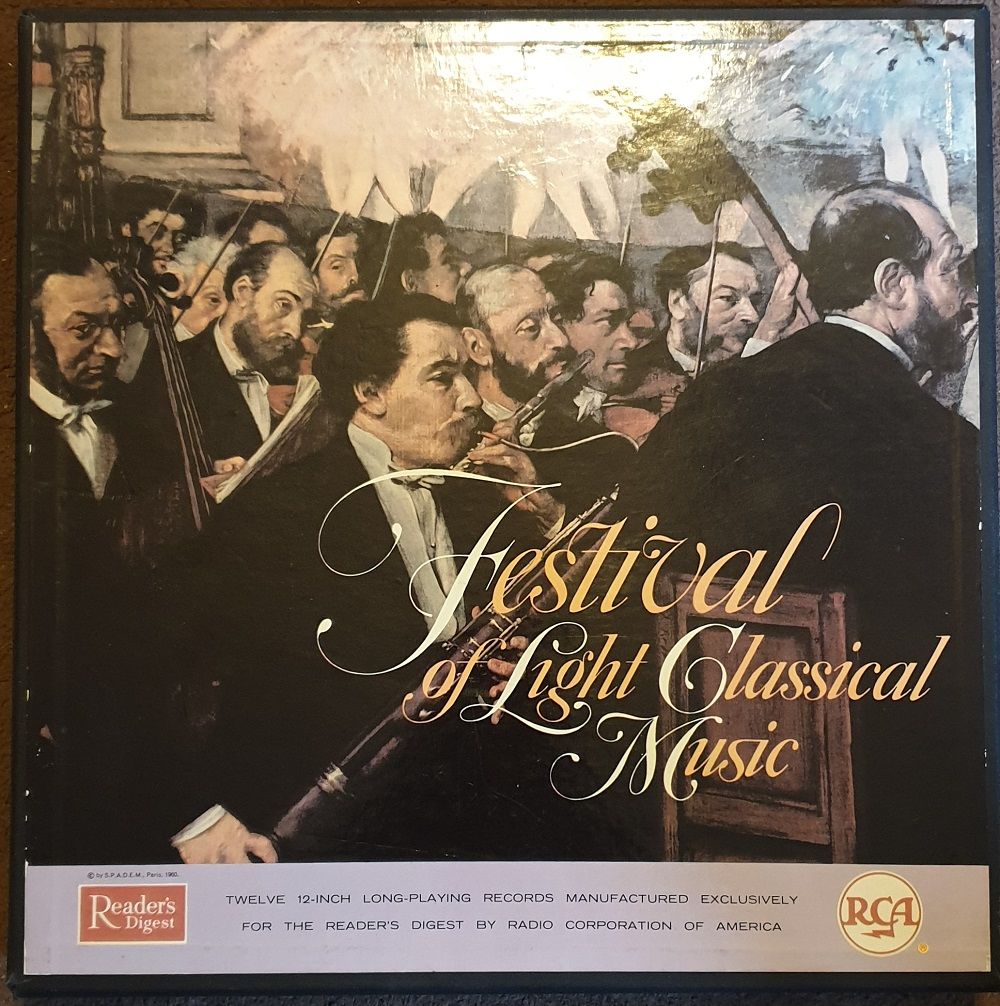 On impulse, before
she closed the
door, I suggested that she might like to go for a walk with me on
Sunday afternoon, and she readily agreed. You see, reader, in that
brief instant before she disappeared into the safe interior of her
house, we had fallen in love. Wendy was eighteen months younger than I
was, but she was beautiful, and, more importantly, she seemed to like
me! In March 1964, just before I met her, she was sixteen years old,
and after that day when I had walked her home, we were seeing each
other every day (at work) and every night. Eventually the chief
Librarian wanted us separated, because we got on his nerves; and he got
me a job in the SPCK bookshop round in the bus station; my library
career nosedived overnight, but Wendy and I still saw each other every
night - I walked the quarter mile or so up to her house in Chertsey
Rise, and we sat and watched telly, or else we listened to music. Lots
of it. Because Wendy's Dad had an enormous collection of LPs, and the
most expensive hi-fi equipment I had ever seen. If books were my
passion, music was his. I took my new Beatles LP with me, Rubber Soul,
I think it was, and he played it for us - we weren't allowed to touch
the turntable, but he was happy to put it on for us to listen to. As
the days went by, Wendy and I became closer and closer, and so much in
love, they were days of joy for me. We are this year celebrating our
fifty-fifth wedding anniversary, and they are still days of joy. But in
1964, Wendy's Dad introduced me to the Reader's Digest Festival of
Light Classical Music - a three LP set of the most brilliant music I
had ever heard. In fact, some of it was quite heavy classical music,
such as Siegfried's Rhine Journey by Richard Wagner, and a
scintillating violin piece by Pablo Sarasate, and I loved it. I bought
my own copy, or rather "our" own copy, and listened to it every night
after walking home from Wendy's house. On impulse, before
she closed the
door, I suggested that she might like to go for a walk with me on
Sunday afternoon, and she readily agreed. You see, reader, in that
brief instant before she disappeared into the safe interior of her
house, we had fallen in love. Wendy was eighteen months younger than I
was, but she was beautiful, and, more importantly, she seemed to like
me! In March 1964, just before I met her, she was sixteen years old,
and after that day when I had walked her home, we were seeing each
other every day (at work) and every night. Eventually the chief
Librarian wanted us separated, because we got on his nerves; and he got
me a job in the SPCK bookshop round in the bus station; my library
career nosedived overnight, but Wendy and I still saw each other every
night - I walked the quarter mile or so up to her house in Chertsey
Rise, and we sat and watched telly, or else we listened to music. Lots
of it. Because Wendy's Dad had an enormous collection of LPs, and the
most expensive hi-fi equipment I had ever seen. If books were my
passion, music was his. I took my new Beatles LP with me, Rubber Soul,
I think it was, and he played it for us - we weren't allowed to touch
the turntable, but he was happy to put it on for us to listen to. As
the days went by, Wendy and I became closer and closer, and so much in
love, they were days of joy for me. We are this year celebrating our
fifty-fifth wedding anniversary, and they are still days of joy. But in
1964, Wendy's Dad introduced me to the Reader's Digest Festival of
Light Classical Music - a three LP set of the most brilliant music I
had ever heard. In fact, some of it was quite heavy classical music,
such as Siegfried's Rhine Journey by Richard Wagner, and a
scintillating violin piece by Pablo Sarasate, and I loved it. I bought
my own copy, or rather "our" own copy, and listened to it every night
after walking home from Wendy's house. 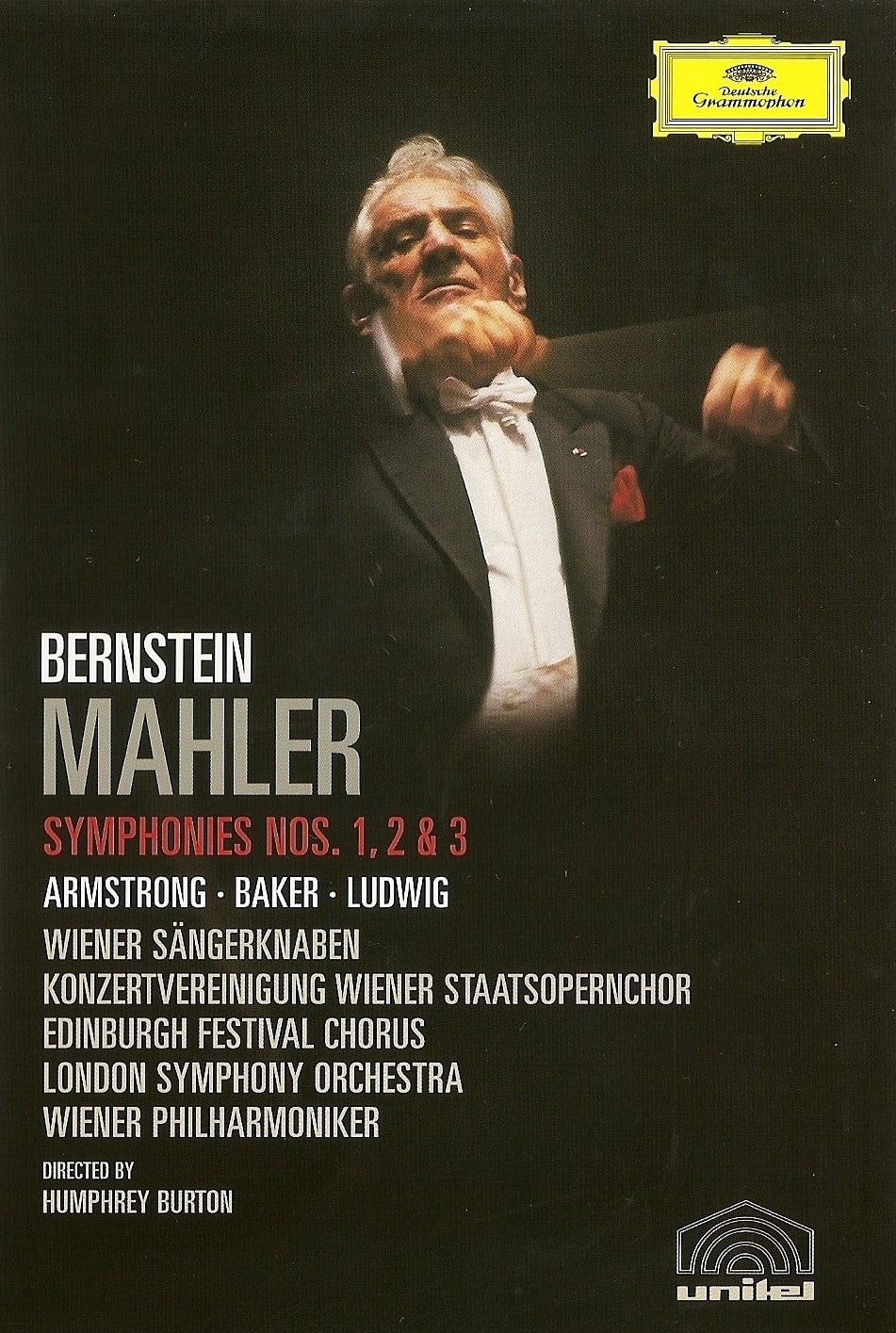 It was the kind of
music I had used
to listen to on the radio, but about which I had simply forgotten.
Wendy's Dad introduced me to Beethoven's other symphonies, to Brahms,
to Dvorak, to Smetana, to the three great ballets by Tschaikowsky, Swan
Lake, Sleeping Beauty and The Nutcracker. On social outings to London
cinemas, I was introduced to the music of Richard Strauss (Also Sprach
Zarathustra), Johan Strauss the Younger (Blue Danube), to Ligeti
(Atmospheres) etc., courtesy of 2001: A Space Odyssey. And then, in
1973, when we had been married for seven years, and with Martin, our
eldest son, now at primary school, something happened that changed my
life forever, and brought me back to the religion I had cast aside, and
set me on another musical journey. Yes, we got married in church, yes,
Martin was christened in the same church, but somehow, I had forsaken
my Sunday evening church-going back in Brockworth, and the endless
nights when I studied the Bible - I was always top of the class in our
religious instruction lessons at the Crypt Grammar School. What
happened that Easter in 1973 brought me back to God with a bang! It was the kind of
music I had used
to listen to on the radio, but about which I had simply forgotten.
Wendy's Dad introduced me to Beethoven's other symphonies, to Brahms,
to Dvorak, to Smetana, to the three great ballets by Tschaikowsky, Swan
Lake, Sleeping Beauty and The Nutcracker. On social outings to London
cinemas, I was introduced to the music of Richard Strauss (Also Sprach
Zarathustra), Johan Strauss the Younger (Blue Danube), to Ligeti
(Atmospheres) etc., courtesy of 2001: A Space Odyssey. And then, in
1973, when we had been married for seven years, and with Martin, our
eldest son, now at primary school, something happened that changed my
life forever, and brought me back to the religion I had cast aside, and
set me on another musical journey. Yes, we got married in church, yes,
Martin was christened in the same church, but somehow, I had forsaken
my Sunday evening church-going back in Brockworth, and the endless
nights when I studied the Bible - I was always top of the class in our
religious instruction lessons at the Crypt Grammar School. What
happened that Easter in 1973 brought me back to God with a bang! Episode 5 ...Easter Sunday 1973... We walked a hundred yards or so from our house in Chertsey Rise Stevenage to Wendy's Mum and Dad's, with Martin, our six year old lad, in order to exchange Easter Eggs. And sat down to watch a special Easter Day broadcast from Ely Cathedral. It was a classical music concert, the like of which I had never heard before - The London Symphony Orchestra and a couple of massive choirs, conducted by Leonard Bernstein, performing Mahler's Second, Resurrection Symphony. At the time I didn't know anything about Mahler, probably hadn't even heard of him, if I'm perfectly honest. I had no knowledge of his religious beliefs, but the title of the symphony, The Resurrection, was fitting for Easter Day, and the music unfolded through majesty, to an overwhelming climax which still makes me cry (in my own way, with no tears) whenever I listen to one of the three versions I have on CD, and, of course, watch the magnificent DVD of the actual concert from Ely Cathedral, with the diminutive Bernstein on top form, conducting one of the greatest symphonies ever written. It didn't matter that the symphony had nothing to do with Christ's resurrection from death following his crucifixion on what we now call Good Friday. The music had been written by someone who was in touch with God - there are a number of composers who, in my opinion, have drawn their inspiration from a close intimacy with the Almighty - that's what I believed then, listening to this most holy of music on Christ's holy day, and it's what I believe now - that Gustav Mahler, more than any other composer, had been in touch with God when it came to writing his music. Years of not bothering about religion brought my own personal beliefs flooding back. It's possible, of course, to enjoy the music per se, but for me, if it brings tears to your eyes (difficult for me at the worst of times, because I have tear ducts that produce no fluid whatsoever), then there is something special about it. And whenever I hear the Resurrection symphony, I think of all the people and dogs I have had in my life and who are no longer in it - they've passed away, passed out of my life, although never forgotten. My Dad used to say that when a family member died, it was usually because God needed them elsewhere, for some other purpose, and their time here on Earth was over. Sometimes it was cut short - he himself died very young, at the age of sixty-four, the result of overwork, sheer exhaustion and a weakened heart because of a lifetime of smoking. God definitely needed him somewhere else, that's for sure - but more than we needed him? Not sure about that. But back to the music. I remember sitting in the little office that passed for the technical library at Hawker Siddeley Dynamics in Stevenage - Space Town as it was known - where I was the Technical Librarian, and listening to two senior scientist-engineers talking about classical music, about composers like Stockhausen and Hindemith. I knew nothing about them, and after hearing the hideous cacophonies that they had composed, I was pleased to let it remain that way, and managed to forget all about them. I had so wanted to join in with their conversation, but my classical music knowledge was severely limited back then. Now, in 1973, I had more knowledge of classical music than before, and could add Gustav Mahler to my list. I made a point of asking for Mahler recordings for every birthday and Christmas, but I didn't get round to the eighth until a few years later, by which time I was familiar with all of Mahler's work except for the "Symphony of a Thousand". When I eventually did listen to it, I discovered the other piece of music that always makes me cry. The eighth has a finale that to me sounds like the opening of Heaven and all of the choirs of angels begin to sing with a joy that is only described in music by that one composer, Mahler. I've seen it written by people that Mahler's music is sickly-sweet and "schmaltzy". I think those people are blinkered, and don't open their hearts to it properly. I remember once, when Mum and Dad came to visit us in Stevenage - it would have been in 1980, the year Dad died, and I proudly showed him my LP recording of Mahler's Third, and started to play it for him, telling him how I had "discovered" something quite special in musical terms. Mahler's Third is a giant of a symphony, probably the longest of his symphonies, and contains some of the most glorious music ever written. Dad was totally unmoved by it, and I realised he was not interested in listening to it. His musical interests centred on Bach (especially his Brandenburg Concerti), and Beethoven. Nothing later than Beethoven. I realise now that he had closed his mind to the superb, mind-blowing beauty of Chopin's Second Piano Concerto; to Puccini's magnificent singing in Boheme and Turandot; to Wagner's Ring Cycle and Parsifal; to Bruckner's awesome Seventh Symphony; and to Richard Strauss's Alpine Symphony and the Four Last Songs. I felt sorry for him, but he was unmoved by the romantic composers, and I never got the chance to discuss it with him, because later in 1980, he had a massive heart attack and died. Whilst his funeral was taking place, there was a concert on Radio 3 in which they played Mahler's Resurrection Symphony, which comforted me greatly, and I thought of Dad's journey to the great unknown, and sang the symphony to myself, in my head, as the service progressed. This is something I have in common with the great Liverpudlian conductor, Sir Simon Rattle - there is always music in my head, during every waking minute. It doesn't matter if it's Jeff Lynne singing "Midnight Blue", or Mahler's Resurrection Symphony - there is always music in my head, even while I'm talking to a family member or a shop assistant or a friend with a dog while I'm out with Skipper (who celebrates his fifteenth birthday today, April 15th, as I'm writing this piece. Update: Skipper sadly passed away the following day, April 16th after a gloriously long and happy life with us). But as usual, I digress. Mahler opened the floodgates to my classical music knowledge. I discovered Shostakovich, Barber, the Chopin piano concerti, (as close to heaven as you'll get!); Rachmaninov (the slow movement of his second symphony is for me [and for Wendy, my wife of 55 years] the most romantic piece of music ever written); to Sibelius (his second symphony and violin concerto are unbelievable!); and when Classic FM started broadcasting, the floodgates opened even further. Nowadays, when I vote for the annual Hall of Fame, my choices are always Mahler's Eighth, Shostakovich's Seventh (of which more later) and Howard Shore's amazing score to the Lord of the Rings trilogy. Of course, other music than classical was still important to me. I never lost sight of my Acker Bilk and his Paramount Jazz Band, or of Django Reinhardt and the Quintette du Hot Club de France, for example. Again in the 1970s, it would have been 1973, I heard Kenny Everett (second greatest ever radio DJ, after the great Terry Wogan) playing Mr Blue Sky, and I got together enough money to buy the Out of the Blue album when it was released. In fact, being a friend of the manager of Stevenage Record Centre, I was lucky enough to get the point of sale material for Out of the Blue, which comprised a six-foot high stand and an enormous out of the Blue spaceship... Nowadays, Jeff Lynne is my top favourite popular musician. I should say here that the Beatles are in a league of their own, a bit like Blackadder when it comes to situation comedy. It goes without saying that I worshipped the Beatles, back in the early 1960s, and still do. Jeff Lynne was the natural successor to the Beatles and for me he can do nothing wrong; the same goes for Bobby Darin, Gerry Rafferty, and Harry Nielsen. Out of the Blue was nothing short of brilliant. And the genius of Jeff Lynne still shines today. For me, popular music stopped dead when ELO stopped playing, and started again when Jeff Lynne resurrected ELO in the noughties. It was on this day, the day I was writing this piece for the nostalgia page, that my best friend, my gorgeous tricolour border Collie Skipper passed away, and I haven't been in the mood to carry on with it yet, because my waking hours have been all about coming to terms with his passing, with looking through the thousands of photos I've taken of him (and Holly) through the years, and of thinking about him and how he and Holly brought so much joy into our lives. I will be carrying on with my musical reminiscences in the June issue of Books Monthly, and once I've finished that, I have some pieces planned about the books that shaped my life back in the 1950s and 1960s... If you haven't yet got round to reading my piece about Skipper on the front page of this issue, then you won't know how much I've been affected by Skipper's passing... It's knocked me for a loop, to borrow a phrase from Stephen King, but my memories of the fifties and sixties are as sharp as ever and I'll be back with more reminiscences next month - promise! Episode 6 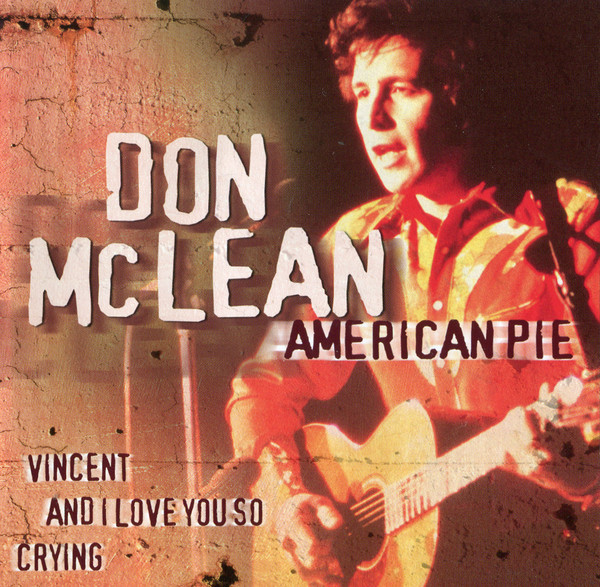 ...June 13th 2021 - Sunday Car
Boot sale on Cookie's Field as usual - a lovely day, bought loads of
Cosmos plants, and a double CD of The Searchers and Gerry and the
Pacemakers, two of my favourite groups from the sixties. But the
previous day, at the charity shop next to Tesco in the town, I found a
Don McLean CD for 50p, which contained different songs to the ones on
the CD I already owned. Both started with American Pie, then Vincent,
but on the charity shop one, there were more Buddy Holly tunes than the
original American Pie album. American Pie is one of those great, very
long songs, like Hey Jude, and Baker Street, that take your breath
away. For me, though, the best track on both CDs is Roy Orbison's
Crying. This is Don McLean at his absolute, breathtaking best. It's a
classic song, and this version, in my opinion, eclipses even the Great
Big O's version. There are Golden Ages of everything, and not everyone
will agree with me that the 1960s-1980s was the Golden Age of popular
music. ...June 13th 2021 - Sunday Car
Boot sale on Cookie's Field as usual - a lovely day, bought loads of
Cosmos plants, and a double CD of The Searchers and Gerry and the
Pacemakers, two of my favourite groups from the sixties. But the
previous day, at the charity shop next to Tesco in the town, I found a
Don McLean CD for 50p, which contained different songs to the ones on
the CD I already owned. Both started with American Pie, then Vincent,
but on the charity shop one, there were more Buddy Holly tunes than the
original American Pie album. American Pie is one of those great, very
long songs, like Hey Jude, and Baker Street, that take your breath
away. For me, though, the best track on both CDs is Roy Orbison's
Crying. This is Don McLean at his absolute, breathtaking best. It's a
classic song, and this version, in my opinion, eclipses even the Great
Big O's version. There are Golden Ages of everything, and not everyone
will agree with me that the 1960s-1980s was the Golden Age of popular
music. 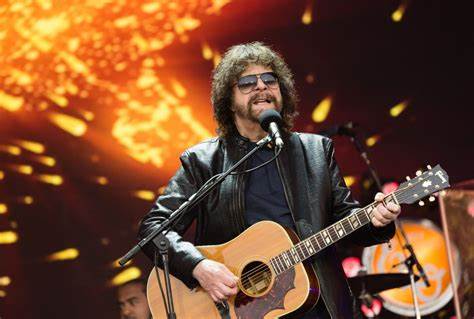 All I know is that it
was the 25 years
that contained The Beatles, The Stones, Harry Nilsson, Don McLean,
Buddy Holly, ELO, Gerry and the Pacemakers etc., etc., and when ELO was
disbanded, that, for me was the day the music died, heralding an era of
Rap (not really music, is it?), punk (disgusting, absolutely
disgusting!), Spice Girls (talentless, tuneless, drivel), and for the
most part rubbish. There are few people performing now, other than the
Stones and ELO who can hold a tune; take Ed Sheeran, for example - I am
at a loss to understand what people see in him. The tunes are either
soulless, mindless, or dreadful dirges that fail to lift the spirit.
One beacon of light in the current era is Gareth Malone - he has the
breadth of tolerance to be able to see what I can't in today's music -
his "Choir" programmes had him auditioning and championing all manner
of modern "music" that I can't abide, and coming away with something
extraordinary, something quite triumphant. He is one of the most
inspiring and courageous people of the modern era, and it is worth
reminding ourselves that his musical background is basically classical.
My Golden Age of music is peopled with performers who can sing in tune
and harmonise with each other - two peerless examples of this are the
Beatles and ELO - their natural feel for harmony is exceptional and
perfect - and for that reason their recordings are timeless. I won't go
into my top ten popular records right now, I'll save that for a later
episode - but it doesn't have anyone born or performing after 1980. All I know is that it
was the 25 years
that contained The Beatles, The Stones, Harry Nilsson, Don McLean,
Buddy Holly, ELO, Gerry and the Pacemakers etc., etc., and when ELO was
disbanded, that, for me was the day the music died, heralding an era of
Rap (not really music, is it?), punk (disgusting, absolutely
disgusting!), Spice Girls (talentless, tuneless, drivel), and for the
most part rubbish. There are few people performing now, other than the
Stones and ELO who can hold a tune; take Ed Sheeran, for example - I am
at a loss to understand what people see in him. The tunes are either
soulless, mindless, or dreadful dirges that fail to lift the spirit.
One beacon of light in the current era is Gareth Malone - he has the
breadth of tolerance to be able to see what I can't in today's music -
his "Choir" programmes had him auditioning and championing all manner
of modern "music" that I can't abide, and coming away with something
extraordinary, something quite triumphant. He is one of the most
inspiring and courageous people of the modern era, and it is worth
reminding ourselves that his musical background is basically classical.
My Golden Age of music is peopled with performers who can sing in tune
and harmonise with each other - two peerless examples of this are the
Beatles and ELO - their natural feel for harmony is exceptional and
perfect - and for that reason their recordings are timeless. I won't go
into my top ten popular records right now, I'll save that for a later
episode - but it doesn't have anyone born or performing after 1980. 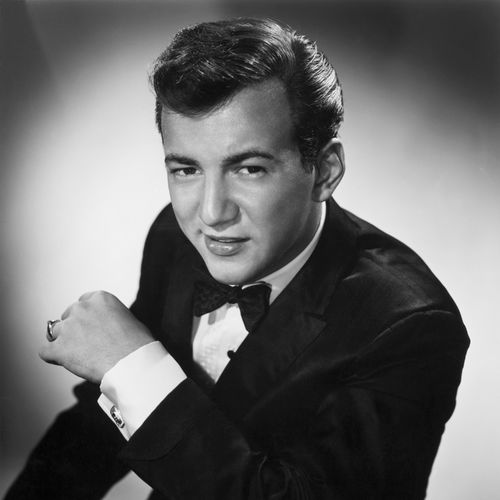 My all-time favourite
solo performer is
Bobby Darin, but I have a strong second favourite in Frank Sinatra,
also Harry Nilsson and John Lennon, not forgetting George Harrison. My
two favourite bands are The Beatles and ELO, although I love Gerry and
the Pacemakers and worship The Travelling Wilburys, of course. I don't
like heavy rock, although I have a soft spot for Aerosmith, Canned
Heat, and the Rolling Stones. I can happily listen to Honky Tonk Women
over and over. I discovered popular music in the late fifties after
being fed an exclusive diet of classical and light classical music on
the BBC's Light Programme and Home Programme. We used to listen to
Workers' Play Time, Mantovani, Henry Hall, Billy Cotton's Band Show,
Sing Something Simple (I used to try to get out of Sunday evensong,
preferring to stay home and listen to Sing Something Simple) and every
music programme that was broadcast in the 1950s and early 1960s,
including the Saturday Skiffle Club, which later became the Saturday
Club, and introduced us to Lonnie Donegan, Johnny Duncan's Blue Grass
Boys et al. There was very little popular music on the BBC at this
time, with the exception of Parade of the Pops, with the Bob Miller
Band, who played big band versions of popular hit parade hits. My all-time favourite
solo performer is
Bobby Darin, but I have a strong second favourite in Frank Sinatra,
also Harry Nilsson and John Lennon, not forgetting George Harrison. My
two favourite bands are The Beatles and ELO, although I love Gerry and
the Pacemakers and worship The Travelling Wilburys, of course. I don't
like heavy rock, although I have a soft spot for Aerosmith, Canned
Heat, and the Rolling Stones. I can happily listen to Honky Tonk Women
over and over. I discovered popular music in the late fifties after
being fed an exclusive diet of classical and light classical music on
the BBC's Light Programme and Home Programme. We used to listen to
Workers' Play Time, Mantovani, Henry Hall, Billy Cotton's Band Show,
Sing Something Simple (I used to try to get out of Sunday evensong,
preferring to stay home and listen to Sing Something Simple) and every
music programme that was broadcast in the 1950s and early 1960s,
including the Saturday Skiffle Club, which later became the Saturday
Club, and introduced us to Lonnie Donegan, Johnny Duncan's Blue Grass
Boys et al. There was very little popular music on the BBC at this
time, with the exception of Parade of the Pops, with the Bob Miller
Band, who played big band versions of popular hit parade hits. Not the same as hearing the real thing, of course, but at the time, which would have been 1960-ish, popular music was a dirty word at the BBC. In fact the only time you would hear a pop music hit would be during the two weeks when Housewives' Choice was broadcast direct from the Earls Court Radio Show - the regular presenters, but instead of playing record requests for people who had written in (usually a postcard to the BBC would suffice), the presenters asked visitors to the show what they would like played, and occasionally someone would pipe up with a pop hit. I remember listening to this broadcast every day, because it coincided with the summer or Easter holidays, I believe, and hearing Paul Anka singing "Diana". It was the start of something big, for me, and over the course of that two-week oasis of pop music, I discovered many pop hits, mostly American, sometimes cover hits by people like Craig Douglas and Tommy Steele, but it heralded a revolution in the broadcasting of popular music on the BBC, and during the early years of the sixties, they gradually allowed more and more hits to be played until finally, Radio One was born. The Light Programme, the Home Programme and the Third Programme were ditched in favour of Radio 1, Radio 2, Radio 3 and Radio 4. The "Swinging Sixties" had begun, prompted by the broadcasts from the illegal radio stations Radio Caroline and Radio London. From being starved of pop music, suddenly the airwaves were filled with it. But let's go back to the 1950s first. The Light Programme was home for many comedy shows, such as the Goon Show, Take It From Here, The Clitheroe Kid, Life With The Lyons etc., etc., as well as Housewives' Choice, with presenters such as Jack De Manio, Jimmy Young, and a young but very listenable Terry Wogan; for the children there was Children's Favourites, which was on, I believe, from 9am-10am Saturday mornings, and on which you could hear such "favourites" as Sparky's Magic Piano, The Happy Wanderer sung by the Oberkirchen Children's Choir, and so on; at lunchtime on Sundays you could hear Two-, three-, and occasionally four-way Family Favourites which was a request programme for serving military personnel, so that they could keep in touch with and send messages to their loved ones. You didn't hear pop songs, but you did hear singers like Ella Fitzgerald, Bing Crosby, Frank Sinatra and so on, and big bands like Glenn Miller etc. Stalwarts of 1950s mainstream music, occasionally a jazz record, but certainly no pop! 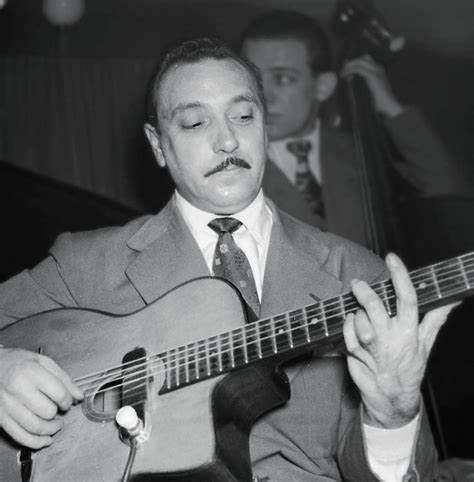 The BBC was peppered
with music
programmes. Obviously, on the Third Programme, you could hear "serious"
music most of the day, and we usually listened to several of the
Promenade concerts that were broadcast every year. On the Light
Programme you would get a major music programme just about every night:
Henry Hall, (I'm Henry Hall, and tonight is my bath night," we used to
say, in parody of "tonight is my music night". Friday Night Is Music
Night, Semprini Seranade etc., were where I heard snippets of light
classical music by composers such as Eric Coates (Elizabethan Serenade,
Dam Busters March etc.). During the daytime we had Workers' Playtime
with such combos as Cecil Norman and His Rhythm Players, and Parade of
the Pops. You would hear records played by the Big Ben Banjo Band,
Jimmy Shand and His Band, and many, many others - the BBC must have
spent a small fortune on these bands and combos! My own musical
knowledge was enhanced by the wind-up gramophone we possessed, with
78rpm shellac records of people like Al Bowlly, Glenn Miller and his
Band, Cyril Stapleton and his Orchestra, and, as chance would have it,
Django Reinhardt and the Quintette du Hot Club de France. Django
Reinhardt changed my musical life. My Dad gave me a leaflet about him
which, looking back, may have been a concert programme. I know that my
Mum and Dad used to go to see Harry Roy and his Orchestra in concert,
and they were keen ballroom dancers in their younger days. But the fact
that Dad had these 78rpm records of Django was a source of amazement to
me. Django remains, for me, the very best guitarist in any genre, and
the sounds he produced were nothing short of miraculous, given his
disability. The BBC was peppered
with music
programmes. Obviously, on the Third Programme, you could hear "serious"
music most of the day, and we usually listened to several of the
Promenade concerts that were broadcast every year. On the Light
Programme you would get a major music programme just about every night:
Henry Hall, (I'm Henry Hall, and tonight is my bath night," we used to
say, in parody of "tonight is my music night". Friday Night Is Music
Night, Semprini Seranade etc., were where I heard snippets of light
classical music by composers such as Eric Coates (Elizabethan Serenade,
Dam Busters March etc.). During the daytime we had Workers' Playtime
with such combos as Cecil Norman and His Rhythm Players, and Parade of
the Pops. You would hear records played by the Big Ben Banjo Band,
Jimmy Shand and His Band, and many, many others - the BBC must have
spent a small fortune on these bands and combos! My own musical
knowledge was enhanced by the wind-up gramophone we possessed, with
78rpm shellac records of people like Al Bowlly, Glenn Miller and his
Band, Cyril Stapleton and his Orchestra, and, as chance would have it,
Django Reinhardt and the Quintette du Hot Club de France. Django
Reinhardt changed my musical life. My Dad gave me a leaflet about him
which, looking back, may have been a concert programme. I know that my
Mum and Dad used to go to see Harry Roy and his Orchestra in concert,
and they were keen ballroom dancers in their younger days. But the fact
that Dad had these 78rpm records of Django was a source of amazement to
me. Django remains, for me, the very best guitarist in any genre, and
the sounds he produced were nothing short of miraculous, given his
disability. 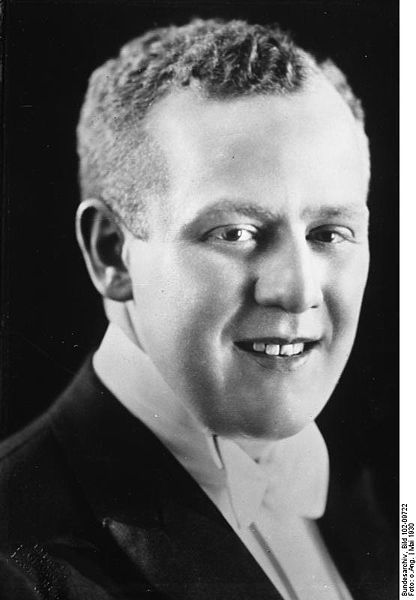 Those records are long
gone, of course,
but I have half a dozen CDs showcasing the very best recordings of the
Quintette and of Django playing solo. My Uncle Ernie favoured classical
music, and from him I inherited several opera sets, also on 78rpm, some
of them running to fifteen records, Puccini's Tosca being one example.
I don't believe I ever listened to Tosca all the way through in my
youth, but I loved hearing Enrico Caruso singing "E Lucevan le stelle",
and a soprano singing "Vissi d'Arte". My Great Uncle Ernie gave me
records by Jack Hylton and his Band. To my mind these English bands
were equally as good as the American bands, like those of Duke
Ellington, Count Basie and Glenn Miller. I particularly like one Jack
Hylton record on which they sang: "That was a cute little rhyme, sing
us another one, do". One of the band members starts to sing "There was
a young lady from Ealing...", at which point the band breaks down,
coughing, and someone says no, not that one... It was years later that
I learned the actual words to "There was a young lady from Ealing". No
wonder they didn't complete that rhyme! By the end of the 1950s I had a
huge collection of very old 78rpm records from the first forty years of
the twentieth century; but no pop records. I remember going to the
youth club in Hucclecote, the next village along the road to
Gloucester, a ten minute walk from Brockworth, and the nearest youth
club available to us. There they had someone with a proper record
player, a Dansette record player, on which they played proper pop
records, and I remember hearing, for the very first time, the Shirelles
singing "Will You Still Love Me Tomorrow", written by Carole King and
Gerry Goffin, and I recall thinking that this was real popular music. Those records are long
gone, of course,
but I have half a dozen CDs showcasing the very best recordings of the
Quintette and of Django playing solo. My Uncle Ernie favoured classical
music, and from him I inherited several opera sets, also on 78rpm, some
of them running to fifteen records, Puccini's Tosca being one example.
I don't believe I ever listened to Tosca all the way through in my
youth, but I loved hearing Enrico Caruso singing "E Lucevan le stelle",
and a soprano singing "Vissi d'Arte". My Great Uncle Ernie gave me
records by Jack Hylton and his Band. To my mind these English bands
were equally as good as the American bands, like those of Duke
Ellington, Count Basie and Glenn Miller. I particularly like one Jack
Hylton record on which they sang: "That was a cute little rhyme, sing
us another one, do". One of the band members starts to sing "There was
a young lady from Ealing...", at which point the band breaks down,
coughing, and someone says no, not that one... It was years later that
I learned the actual words to "There was a young lady from Ealing". No
wonder they didn't complete that rhyme! By the end of the 1950s I had a
huge collection of very old 78rpm records from the first forty years of
the twentieth century; but no pop records. I remember going to the
youth club in Hucclecote, the next village along the road to
Gloucester, a ten minute walk from Brockworth, and the nearest youth
club available to us. There they had someone with a proper record
player, a Dansette record player, on which they played proper pop
records, and I remember hearing, for the very first time, the Shirelles
singing "Will You Still Love Me Tomorrow", written by Carole King and
Gerry Goffin, and I recall thinking that this was real popular music. 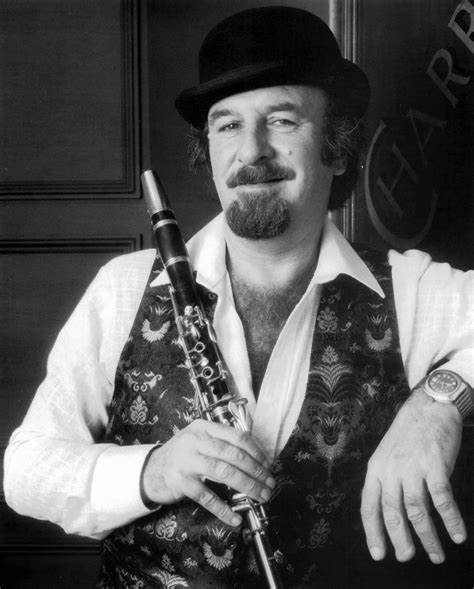 The song, and the
performance, are
peerless, and it remains one of my all-time favourites. Today I have a
dozen or so CDs of sixties music, and it's on just about every one of
them. Brilliant! I would have been thirteen going on fourteen in 1960,
when the song was released. There was an opportunity at the youth club
to take up a hobby, one of which was to make your own guitar. I
couldn't wait for that, although the ginger-haired twins from next
door, Norman and Nigel, did take up that challenge. Let's just say that
it wasn't anywhere near as good as the one Brian May of Queen made!
Instead, I hunted down an old acoustic guitar in one of the upstairs
cupboards, bought a new set of strings from Hickeys' Music Shop in the
town, sat myself down in front of the dressing table mirror in Mum and
Dad's bedroom, and set about teaching myself to play it. After the
incident with the violin teacher, playing pop music on a beat-up old
guitar was a blessed relief. I was able to play along to Lonnie Donegan
skiffle hits, and many of the pop tunes we were starting to hear on the
BBC. At this stage we were still buying 78rpm records. One day, on the
radio, we heard a new jazz band, Acker Bilk's, playing Under The Double
Eagle, a John Philip Sousa march arranged by Acker for his band. I was
charged with going into town on the way home from school and buying it
so that we could listen to it whenever we wanted. I was unable to find
it in either Hickeys, Boots, (yes, Boots the chemist sold records and
books as well as medicines and toiletries in those days, in fact there
was a Boots lending library in our branch of Boots in Gloucester!) or
Bon Marché. Instead I bought a copy of Petite Fleur, which had Chris
Barber's band playing Whistling Rufus on the other side. The song, and the
performance, are
peerless, and it remains one of my all-time favourites. Today I have a
dozen or so CDs of sixties music, and it's on just about every one of
them. Brilliant! I would have been thirteen going on fourteen in 1960,
when the song was released. There was an opportunity at the youth club
to take up a hobby, one of which was to make your own guitar. I
couldn't wait for that, although the ginger-haired twins from next
door, Norman and Nigel, did take up that challenge. Let's just say that
it wasn't anywhere near as good as the one Brian May of Queen made!
Instead, I hunted down an old acoustic guitar in one of the upstairs
cupboards, bought a new set of strings from Hickeys' Music Shop in the
town, sat myself down in front of the dressing table mirror in Mum and
Dad's bedroom, and set about teaching myself to play it. After the
incident with the violin teacher, playing pop music on a beat-up old
guitar was a blessed relief. I was able to play along to Lonnie Donegan
skiffle hits, and many of the pop tunes we were starting to hear on the
BBC. At this stage we were still buying 78rpm records. One day, on the
radio, we heard a new jazz band, Acker Bilk's, playing Under The Double
Eagle, a John Philip Sousa march arranged by Acker for his band. I was
charged with going into town on the way home from school and buying it
so that we could listen to it whenever we wanted. I was unable to find
it in either Hickeys, Boots, (yes, Boots the chemist sold records and
books as well as medicines and toiletries in those days, in fact there
was a Boots lending library in our branch of Boots in Gloucester!) or
Bon Marché. Instead I bought a copy of Petite Fleur, which had Chris
Barber's band playing Whistling Rufus on the other side. I later found out that Under The Double Eagle was only available at that time on a ten-inch LP. We wouldn't have been able to play it anyway, as it played at 33 and 1/3 rpm, which our wind-up gramophone wouldn't accommodate. I solved this problem by getting Mum to buy a proper three-speed radiogram on hire purchase, which we installed in the bay window of our front room. The radio wasn't up to much, nowhere near as good as the one on which I listened to every music programme going on the BBC and on Radio Luxembourg, on frequency 208. But the record player was brilliant! Soon I was buying every Acker Bilk album going, new LPs of Django Reinhardt, and eventually, in 1961-2, the Beatles... Footnote to Episode 6 - Father's Day came and went on June 20th. One of my gifts, from my daughter Samantha, was a Blu-Ray of the Beatles's first film: A Hard Day's Night, which we watched that same night. It's a shining example of a musical group at the top of their game and provides an insight into why the Beatles have dominated popular music for sixty-odd years. The Beatles are timeless, and the Blu Ray is a brilliant memento... thank you, Sam! Next month: the books that inspired my life in the 1950s/60s Episode 7 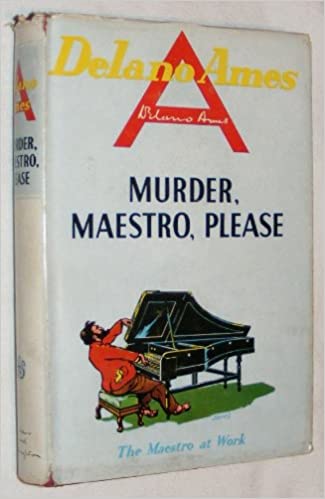 Last month was all
about the music that inspired me in
the 1950s and then the 1960s, which were dominated by the Beatles, of
course. This month I'm going to reminisce about books and music at the
same time. I remember being taught to read by, firstly, my Mum, with
Mabel Lucie Attwell picture books and comics such as Robin, and then my
schoolteacher, Miss Paige, whom I loved dearly. One of my comics had
stories about the characters I heard being spoken about on Listen With
Mother, characters such as Larry the Lamb and Dennis the Dachsund and
their adventures in Toyland. There was also a coloured picture strip
about Andy Pandy, although as we didn't have a television, he was just
a character to me, and it was years later that I first saw him on TV.
At one point in my young life, I remember a visitor to the house, a
serving soldier in the Gloucestershire Regiment, saying that we were
probably the only family in Gloucester who did not have a television.
That may well have been true, but it didn't do us any harm. We had a
decent radio, and later, in 1962, a gramophone that played every speed
of record. Last month was all
about the music that inspired me in
the 1950s and then the 1960s, which were dominated by the Beatles, of
course. This month I'm going to reminisce about books and music at the
same time. I remember being taught to read by, firstly, my Mum, with
Mabel Lucie Attwell picture books and comics such as Robin, and then my
schoolteacher, Miss Paige, whom I loved dearly. One of my comics had
stories about the characters I heard being spoken about on Listen With
Mother, characters such as Larry the Lamb and Dennis the Dachsund and
their adventures in Toyland. There was also a coloured picture strip
about Andy Pandy, although as we didn't have a television, he was just
a character to me, and it was years later that I first saw him on TV.
At one point in my young life, I remember a visitor to the house, a
serving soldier in the Gloucestershire Regiment, saying that we were
probably the only family in Gloucester who did not have a television.
That may well have been true, but it didn't do us any harm. We had a
decent radio, and later, in 1962, a gramophone that played every speed
of record. By then I had a complete set of Acker Bilk LPs, EPs and singles, together with 78 shellac and later plastic discs of The Kingston Trio singing Hang Down Your Head Tom Dooley, a few Cliff Richard singles, several LPs and EPs of Django Reinhardt, and a few classical pieces, notably the overture to the Thieving Magpie by Rossini, which I was learning to play on the violin at the time, and an Embassy Record (Woolworth's own label) of Beethoven's Fifth Symphony. There were a number of places in the city where you could buy records: Hickey's Music Shop, Boots, which also had a lending library and a huge display of books withdrawn from the library which you could buy for a few pence each; and Bon Marché, the four storey plus basement department store which dominated the centre of Gloucester, or rather the eastern side of Gloucester. There were also two branches of Woolworths, one in Southgate (the smaller of the two branches) and one in Northgate. My favourite place for buying records was Bon Marché, and the records and books were in the basement, although during the sale week, there was a huge table crammed with marked down books on the ground floor, and it was there I spent many happy hours rummaging through the books. I remember buying a couple of Bloodhound books (pulp fiction thrillers) and a couple by Joan Butler, a really funny writer who was probably a man, copies of whose books I have been unable to track down in my later life. I also recall buying a title or two by Delano Ames, who wrote superbly funny stories featuring Jane and Dagobert Brown. But in the basement, where the books and records were tucked away in a corner, I used to find the books I really, really craved, the Four Square Tarzan books, the Whiteoaks books (Pan Giants) and the Inspector West and Saint books (also Pan Giants). Those book covers were amazing - photo-like illustrations that were all the rage in the 1950s and early 1960s. It was in the 1960s that book covers nosedived. 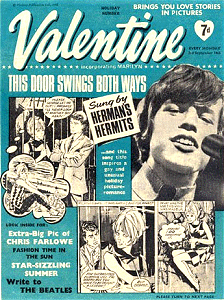 Those Pan Giants (some
of which you can
see on the home page this month (August 2021) and the Four Square
Tarzans were fantastic, and this period remains, for me, my own
personal Golden Age of literature. Of course, it was a while before I
reached that stage of my life where I appreciated those book covers,
but once I could read without the need for an adult to be present to
help me with longer and more difficult words, I never looked back.
Words unlocked a million and more adventures and amazing worlds in a
way that could never be paralleled by TV or the cinema. When I picked
up a borrowed copy of Enid Blyton's The Rockingdown Mystery, with the
aid of Gilbert Dunlop's brilliant illustrations I was able to form an
idea of what Diana really looked like, and I fell in love with her -
she was the first female character, after Maid Marian in The Adventures
of Robin Hood, and Guinevere in King Arthur, that I was first in love
with. Other female characters in treasured books and series, such as
Patricia Holm in the Saint books, and various daughters, sisters and
cousins in the Whiteoaks saga came and went, but it was Diana I always
wanted to meet, and I knew exactly where to find her. In the last issue
I spoke about my love of comics, which was not confined to my own
comics or the ones we brought back from visiting Uncle Les
and
Aunt Grace. Those Pan Giants (some
of which you can
see on the home page this month (August 2021) and the Four Square
Tarzans were fantastic, and this period remains, for me, my own
personal Golden Age of literature. Of course, it was a while before I
reached that stage of my life where I appreciated those book covers,
but once I could read without the need for an adult to be present to
help me with longer and more difficult words, I never looked back.
Words unlocked a million and more adventures and amazing worlds in a
way that could never be paralleled by TV or the cinema. When I picked
up a borrowed copy of Enid Blyton's The Rockingdown Mystery, with the
aid of Gilbert Dunlop's brilliant illustrations I was able to form an
idea of what Diana really looked like, and I fell in love with her -
she was the first female character, after Maid Marian in The Adventures
of Robin Hood, and Guinevere in King Arthur, that I was first in love
with. Other female characters in treasured books and series, such as
Patricia Holm in the Saint books, and various daughters, sisters and
cousins in the Whiteoaks saga came and went, but it was Diana I always
wanted to meet, and I knew exactly where to find her. In the last issue
I spoke about my love of comics, which was not confined to my own
comics or the ones we brought back from visiting Uncle Les
and
Aunt Grace. 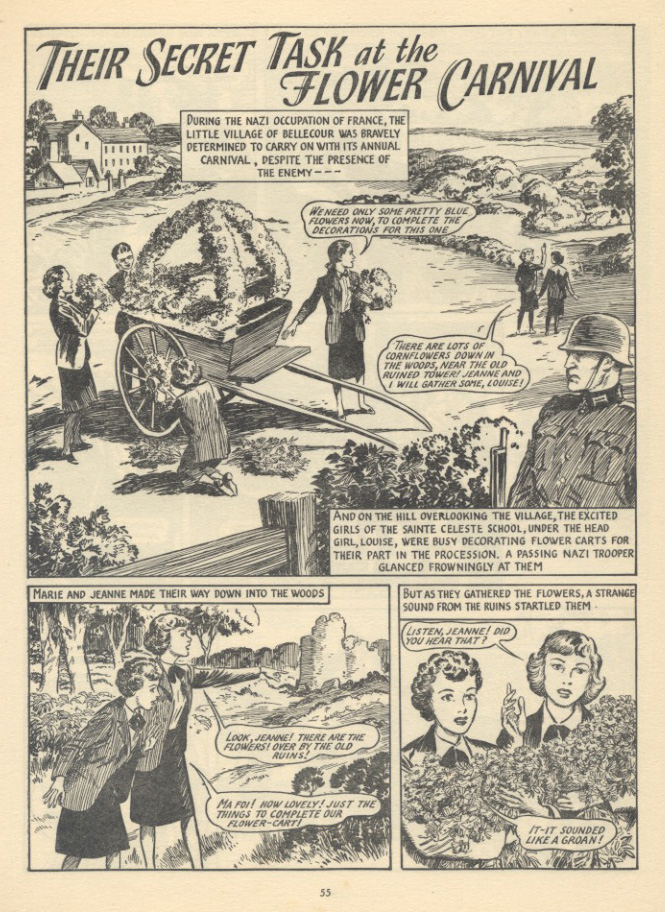 My sister Jean, four
years older than
me, and sadly no longer with us after passing away last year (2020)
also had her weekly comics, and her annuals, which comprised Girls
Crystal and Schoolfriend, and the Coronet Books for Girls that
corresponded to my treasured Commander Books for Boys from 1957-1960,
of which I currently have all four Commanders and three Coronets in my
collection. They are brilliantly illustrated by Robert McGillivray with
black and white drawings, and the covers are magnificently illustrated
in full colour dust jackets that are inspirational and hugely
entertaining in their own right. I knew that I would find Enid Blyton's
Diana in many of the picture strips in Jean's Girls Crystal and School
Friend - not the actual Diana, of course, but similar girls who went to
boarding school and had terrific adventures. I was hooked on school
stories from a very early age - almost all of the school picture strips
in LION were about boarding school boys, and Girls Crystal and School
Friend were published by Fleetway and had the same story composition as
my LION and TIGER comics. So, when Jean had finished with her two
comics, I snaffled them and read them in the comfort of my bedroom,
then put them with my own stack of comics in a cardboard box under my
bed. She rarely asked for them back, and was happy for me to take them
and read them. Siimilarly, I always sneaked a look at her Girls Crystal
and School Friend annuals, knowing that as soon as I had read my Lion,
Tiger and Commander books from cover to cover, I would ask her if I
could borrow her annuals, and my reading joy would be simply doubled. My sister Jean, four
years older than
me, and sadly no longer with us after passing away last year (2020)
also had her weekly comics, and her annuals, which comprised Girls
Crystal and Schoolfriend, and the Coronet Books for Girls that
corresponded to my treasured Commander Books for Boys from 1957-1960,
of which I currently have all four Commanders and three Coronets in my
collection. They are brilliantly illustrated by Robert McGillivray with
black and white drawings, and the covers are magnificently illustrated
in full colour dust jackets that are inspirational and hugely
entertaining in their own right. I knew that I would find Enid Blyton's
Diana in many of the picture strips in Jean's Girls Crystal and School
Friend - not the actual Diana, of course, but similar girls who went to
boarding school and had terrific adventures. I was hooked on school
stories from a very early age - almost all of the school picture strips
in LION were about boarding school boys, and Girls Crystal and School
Friend were published by Fleetway and had the same story composition as
my LION and TIGER comics. So, when Jean had finished with her two
comics, I snaffled them and read them in the comfort of my bedroom,
then put them with my own stack of comics in a cardboard box under my
bed. She rarely asked for them back, and was happy for me to take them
and read them. Siimilarly, I always sneaked a look at her Girls Crystal
and School Friend annuals, knowing that as soon as I had read my Lion,
Tiger and Commander books from cover to cover, I would ask her if I
could borrow her annuals, and my reading joy would be simply doubled. Christmases brought all manner of things, such as a torch with three different coloured lenses, white, green and red, enabling you to shine green and red light onto things as well as the conventional white; a transistor radio kit which I nagged my Dad to put together Christmas afternoon, ignoring the fact he had just come back from the pub with my uncles, and was very much the worse for wear. Needless to say, he couldn't get the transistor radio to work, and I had to wait a few weeks until Jean lent me the 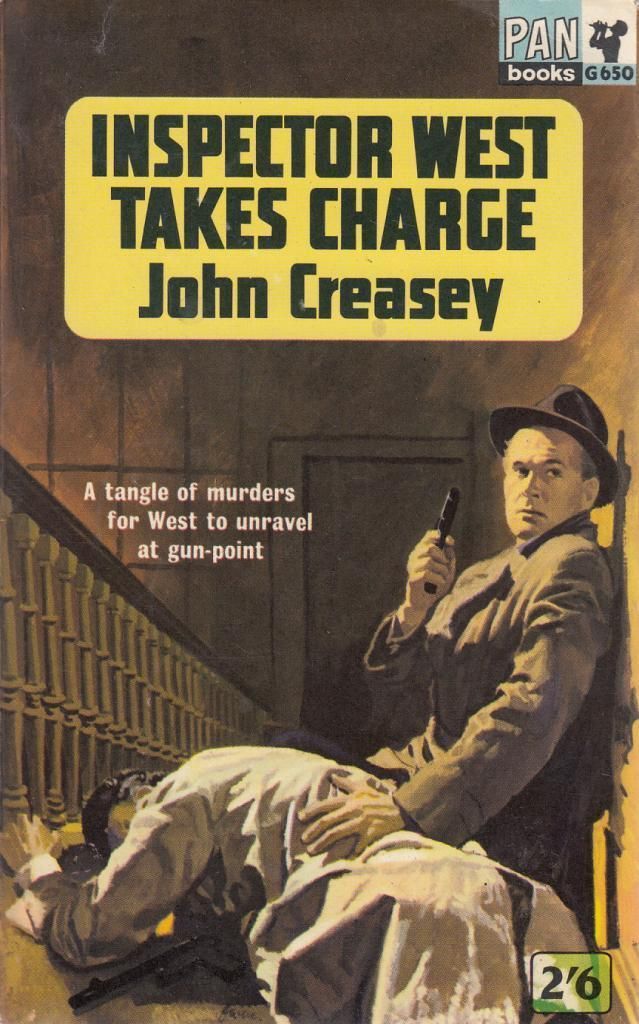 rest of the money I
needed to
buy a proper transistor radio.There were Magic Robot games, compendia
of games such as Ludo, Snakes and Ladders; there was always a tin of
Sharps toffees and a box of Turkish Delight; there was a real football
one year, and football boots, both of which I had asked for, but my
treasured gifts were always my books. In those days, Annuals of comics
such as Lion, Tiger, Girls Crystal and School Friend were 158 pages
long. Not as many pages as my Commander Book for Boys, also regular
gifts from 1957-1960, which was well in excess of 500 pages, but
nevertheless, a superb mix of picture and text stories, quizzes and
features. 158 pages! When we were buying annuals for our two younger
children, Chris and Sammy, you would be lucky to get sixty pages...
These 1960s annuals were meant to last you several months of original
and brilliant reading. Mine lasted a few days, then I was off searching
for something else to read. In previous episodes of my memoirs, I've
spoken about the public library bookcases in the Primary School, which
acted as a branch library for the residents of Brockworth. They were
opened two or three times a week, and to me they were enormous. Well,
until I became almost six feet tall, my memory of those bookcases was
of them towering over me, and they were crammed with books. From about
the age of ten (my last year at primary school - I took the 11+ exam
when I was ten, passed, one of only three pupils in my year, and went
on to grammar school, entering the hallowed hall of the Crypt Grammar
School, Gloucester, in September of 1957, two weeks before my eleventh
birthday) I made a beeline for those bookcases with my Mum, another
avid reader, and we would come away with four or five books each. The
left hand bookcase contained fiction of all genres, the right hand
bookcase contained nonfiction and children's books. By this time I had
a reading list of a couple of dozen favourite fiction writers, such as
John Dickson Carr, John Creasey, Leslie Charteris, Mazo de La Roche,
Carter Dickson, Agatha Christie, etc., etc. I didn't discover Dennis
Wheatley until I was about twelve or thirteen. So, after exhausting all
of the crime writers in the left hand bookcase, I started on romantic
fiction, and devoured all that they had, relishing in particular those
stories set in hospitals and doctors' surgeries, thrilled
when
the hero and the heroine finally came together. rest of the money I
needed to
buy a proper transistor radio.There were Magic Robot games, compendia
of games such as Ludo, Snakes and Ladders; there was always a tin of
Sharps toffees and a box of Turkish Delight; there was a real football
one year, and football boots, both of which I had asked for, but my
treasured gifts were always my books. In those days, Annuals of comics
such as Lion, Tiger, Girls Crystal and School Friend were 158 pages
long. Not as many pages as my Commander Book for Boys, also regular
gifts from 1957-1960, which was well in excess of 500 pages, but
nevertheless, a superb mix of picture and text stories, quizzes and
features. 158 pages! When we were buying annuals for our two younger
children, Chris and Sammy, you would be lucky to get sixty pages...
These 1960s annuals were meant to last you several months of original
and brilliant reading. Mine lasted a few days, then I was off searching
for something else to read. In previous episodes of my memoirs, I've
spoken about the public library bookcases in the Primary School, which
acted as a branch library for the residents of Brockworth. They were
opened two or three times a week, and to me they were enormous. Well,
until I became almost six feet tall, my memory of those bookcases was
of them towering over me, and they were crammed with books. From about
the age of ten (my last year at primary school - I took the 11+ exam
when I was ten, passed, one of only three pupils in my year, and went
on to grammar school, entering the hallowed hall of the Crypt Grammar
School, Gloucester, in September of 1957, two weeks before my eleventh
birthday) I made a beeline for those bookcases with my Mum, another
avid reader, and we would come away with four or five books each. The
left hand bookcase contained fiction of all genres, the right hand
bookcase contained nonfiction and children's books. By this time I had
a reading list of a couple of dozen favourite fiction writers, such as
John Dickson Carr, John Creasey, Leslie Charteris, Mazo de La Roche,
Carter Dickson, Agatha Christie, etc., etc. I didn't discover Dennis
Wheatley until I was about twelve or thirteen. So, after exhausting all
of the crime writers in the left hand bookcase, I started on romantic
fiction, and devoured all that they had, relishing in particular those
stories set in hospitals and doctors' surgeries, thrilled
when
the hero and the heroine finally came together. 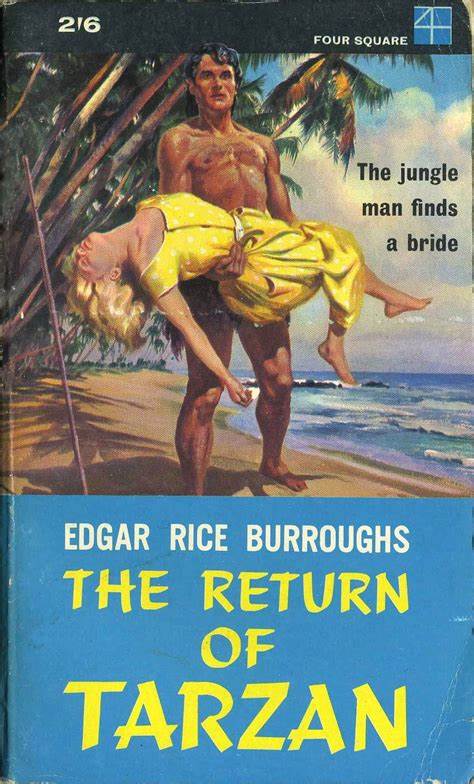 At the same time I was
buying copies of
weekly magazines like Romeo, Valentine etc., in the hope of finding
pictures of my favourite musical artistes like Acker Bilk and Bobby
Darin, but also so that I could read the brilliant romantic picture
stories. I liked nothing better than to go to bed early during the
summer months when it was still light and I would be able to sit up in
bed and read for a couple of hours. If there was a football game going
on up at the recreation field, I'd join in, then walk the two hundred
yards home and finish my day with reading for an hour or so, but if
there was nothing going on, it would be two or even three hours of
solid reading with my transistor radio playing quietly in the
background. Occasionally there was a radio play or serial I wanted to
listen to, and when John Wyndham's The Day of the Triffids was
announced for broadcast, I was over the moon - it was one of my
favourite SciFi books. But the very first episode, when just about
everyone wakes up blind after the comet display the previous evening,
the wailing and crying from the cast was so realistic, it really upset
me. I found that I couldn't listen to it, I went to bed and read
instead. Reading was the single most imformative thing that happened to
me, and it opened up a million worlds of adventure to me in a very
short space of time. There weren't enough hours in the day for what I
wanted to read: comics (Lion, Tiger, Girls Crystal, School Friend,
Tarzan, Superman, Batman, Superboy, SuperGirl, Wonder Woman); annuals,
Saint books, Whiteoaks books, Robin Hood, King Arthur, Lorna Doone (I'd
heard the serialisation on the Home Programme and went out and bought
the book. It remains a firm favourite), Oliver Twist, The Three
Musketeers, Various Pan books of Horror Stories (these were really
scary!), Westerns, Romantic fiction, Dennis Wheatley, John Creasey's
Inspector West series; and then there were my Dad's books. Either side
of the fireplace he'd put up bookshelves. One side housed his book
collection: Aldous Huxley (never got on with him); Jan de Hartog
(Captain Jan); Hammond Innes (various); some war books, a book about
Churchill Jean and I bought for him for Christmas one year, a
three-volume encyclopedia which had a beautiful picture of a half-naked
Kenyan girl that thrilled and delighted me; and his Companion Book Club
books. These were uniformly bound and made a very nice display - you
still occasionally see them at car boot sales. I was allowed to read
some of them, but not all, at least not until I was becoming a young
adult, by which time I had joined Gloucester City Library. This was
recommended to me by a schoolmate, and it was housed in an enormous
municipal building at the back of Southgate, and inside it I found more
books than I could ever have dreamed of. Until you were sixteen you had
to have the approval of an adult relative, so the next time
Mum
and I went to town, I asked her to sign on my behalf to say that I
would take care of any book(s) I borrowed from this library. My library
card gave me access not only to the children's books, of which there
were literally thousands, but also to the adult section, because I was
fourteen years old at that time. I borrowed books from Gloucester City
Library right up until we left Gloucester in 1963. And then I found
myself in Southend on Sea, and their public library was even bigger...
that's for next time. In the meantime, I hope you're enjoying reading
my memories as much as I'm enjoying writing them! See you in September,
when I shall be seventy-five years old! By the way, if you're reading
this page before the home page, you can catch up on the home page with
all of the brilliant Carboot sale and charity shop bargains that have
come my way this past month - loads and loads of superb finds - a
bumper month! See you September 1st! At the same time I was
buying copies of
weekly magazines like Romeo, Valentine etc., in the hope of finding
pictures of my favourite musical artistes like Acker Bilk and Bobby
Darin, but also so that I could read the brilliant romantic picture
stories. I liked nothing better than to go to bed early during the
summer months when it was still light and I would be able to sit up in
bed and read for a couple of hours. If there was a football game going
on up at the recreation field, I'd join in, then walk the two hundred
yards home and finish my day with reading for an hour or so, but if
there was nothing going on, it would be two or even three hours of
solid reading with my transistor radio playing quietly in the
background. Occasionally there was a radio play or serial I wanted to
listen to, and when John Wyndham's The Day of the Triffids was
announced for broadcast, I was over the moon - it was one of my
favourite SciFi books. But the very first episode, when just about
everyone wakes up blind after the comet display the previous evening,
the wailing and crying from the cast was so realistic, it really upset
me. I found that I couldn't listen to it, I went to bed and read
instead. Reading was the single most imformative thing that happened to
me, and it opened up a million worlds of adventure to me in a very
short space of time. There weren't enough hours in the day for what I
wanted to read: comics (Lion, Tiger, Girls Crystal, School Friend,
Tarzan, Superman, Batman, Superboy, SuperGirl, Wonder Woman); annuals,
Saint books, Whiteoaks books, Robin Hood, King Arthur, Lorna Doone (I'd
heard the serialisation on the Home Programme and went out and bought
the book. It remains a firm favourite), Oliver Twist, The Three
Musketeers, Various Pan books of Horror Stories (these were really
scary!), Westerns, Romantic fiction, Dennis Wheatley, John Creasey's
Inspector West series; and then there were my Dad's books. Either side
of the fireplace he'd put up bookshelves. One side housed his book
collection: Aldous Huxley (never got on with him); Jan de Hartog
(Captain Jan); Hammond Innes (various); some war books, a book about
Churchill Jean and I bought for him for Christmas one year, a
three-volume encyclopedia which had a beautiful picture of a half-naked
Kenyan girl that thrilled and delighted me; and his Companion Book Club
books. These were uniformly bound and made a very nice display - you
still occasionally see them at car boot sales. I was allowed to read
some of them, but not all, at least not until I was becoming a young
adult, by which time I had joined Gloucester City Library. This was
recommended to me by a schoolmate, and it was housed in an enormous
municipal building at the back of Southgate, and inside it I found more
books than I could ever have dreamed of. Until you were sixteen you had
to have the approval of an adult relative, so the next time
Mum
and I went to town, I asked her to sign on my behalf to say that I
would take care of any book(s) I borrowed from this library. My library
card gave me access not only to the children's books, of which there
were literally thousands, but also to the adult section, because I was
fourteen years old at that time. I borrowed books from Gloucester City
Library right up until we left Gloucester in 1963. And then I found
myself in Southend on Sea, and their public library was even bigger...
that's for next time. In the meantime, I hope you're enjoying reading
my memories as much as I'm enjoying writing them! See you in September,
when I shall be seventy-five years old! By the way, if you're reading
this page before the home page, you can catch up on the home page with
all of the brilliant Carboot sale and charity shop bargains that have
come my way this past month - loads and loads of superb finds - a
bumper month! See you September 1st!Episode 8 - Southend on Sea 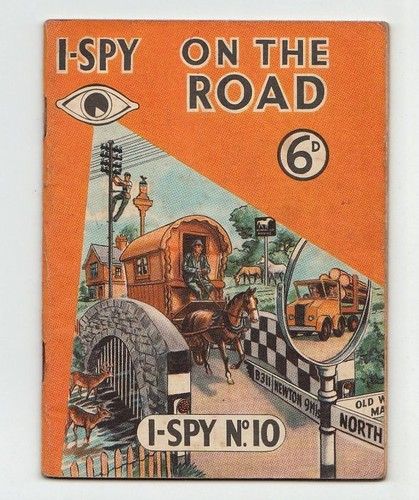 In
July 1963 we packed all of our belongings into our little beige
Standard 8 and said goodbye to Boverton Drive Gloucester for the last
time. Our furniture and effects were all packed away in storage and had
left in the removal van earlier that day. One of the greatest regrets
of my life was that I had been persuaded by Mum and Dad to pack up my
entire paperback collection on my last day of school and to take it to
a small secondhand bookshop in the city to dispose of it. Why that
suitcase couldn't either have travelled with us in the Standard 8 or
been included with the stuff going into storage, I will never know. It
took me years to restore that collection, and most of them were whilst
I was working in the SPCK bookshop in Stevenage New Town, of which more
later. I never did get to the bottom
of why we had to move away from Brockworth. I was sixteen years old,
half way through my A level course (French, Spanish and English
Literature: Paradise Lost, Macbeth, Under Milk
Wood) at the Crypt Grammar School, and had been told to report to the
headmaster on the last day of term. Stanley Ward, who had taken over
from the great Colin Ewing a year or so earlier when Ewing had died of
shingles, was nowhere near as efficient or as strong a personality as
Colin Ewing, who can best be described as "old school". Bullying was
rife at the Crypt, but Colin Ewing's policy was for boys who were being
bullied to take it on the chin and sort it out for themselves. You
didn't go crying to a teacher or a prefect if you were being bullied,
you were expected to slug it out in the playground at break time with a
crowd of boys around you baying for blood. Rugby was the school game in
the autumn and winter months, cricket in spring and summer. Rugby was
not to my taste. I played one game on the first day at school, in 1957,
and found myself at the bottom of a pile of roughhouse boys, and vowed
to never play again if I could help it. It wasn't difficult. I would
write myself a note, sign it "Mrs G Norman" and hand it in, and swiftly
became one of the fat wheezy boys who stood on the touchline cheering
on the boys who did like to play this stupid violent "game" that
nowadays has been recognised as a "sport" that causes all sorts of
physical problems including a propensity for brain injuries and the
like. I would rather do a cross country run than play rugby any day,
and frequently did, although in later years our cross country runs
involved catching the bus when out of sight of the school, alighting at
Peter Scudamore's house to watch TV for an hour, then rejoining the run
and often winning because we were fresher than the boys who had done
the actual run. In
July 1963 we packed all of our belongings into our little beige
Standard 8 and said goodbye to Boverton Drive Gloucester for the last
time. Our furniture and effects were all packed away in storage and had
left in the removal van earlier that day. One of the greatest regrets
of my life was that I had been persuaded by Mum and Dad to pack up my
entire paperback collection on my last day of school and to take it to
a small secondhand bookshop in the city to dispose of it. Why that
suitcase couldn't either have travelled with us in the Standard 8 or
been included with the stuff going into storage, I will never know. It
took me years to restore that collection, and most of them were whilst
I was working in the SPCK bookshop in Stevenage New Town, of which more
later. I never did get to the bottom
of why we had to move away from Brockworth. I was sixteen years old,
half way through my A level course (French, Spanish and English
Literature: Paradise Lost, Macbeth, Under Milk
Wood) at the Crypt Grammar School, and had been told to report to the
headmaster on the last day of term. Stanley Ward, who had taken over
from the great Colin Ewing a year or so earlier when Ewing had died of
shingles, was nowhere near as efficient or as strong a personality as
Colin Ewing, who can best be described as "old school". Bullying was
rife at the Crypt, but Colin Ewing's policy was for boys who were being
bullied to take it on the chin and sort it out for themselves. You
didn't go crying to a teacher or a prefect if you were being bullied,
you were expected to slug it out in the playground at break time with a
crowd of boys around you baying for blood. Rugby was the school game in
the autumn and winter months, cricket in spring and summer. Rugby was
not to my taste. I played one game on the first day at school, in 1957,
and found myself at the bottom of a pile of roughhouse boys, and vowed
to never play again if I could help it. It wasn't difficult. I would
write myself a note, sign it "Mrs G Norman" and hand it in, and swiftly
became one of the fat wheezy boys who stood on the touchline cheering
on the boys who did like to play this stupid violent "game" that
nowadays has been recognised as a "sport" that causes all sorts of
physical problems including a propensity for brain injuries and the
like. I would rather do a cross country run than play rugby any day,
and frequently did, although in later years our cross country runs
involved catching the bus when out of sight of the school, alighting at
Peter Scudamore's house to watch TV for an hour, then rejoining the run
and often winning because we were fresher than the boys who had done
the actual run.In 1962 I took home a sheet of paper asking my parent to confirm that I was able to swim. I was...nearly, and I really didn't know what I would do if I was tipped into the canal, but I was determined to join the newly formed rowing club that was open to all fifth and sixth formers. Rowing was the making of me. It turned out that I was well suited to rowing and soon found myself stroking for the school four, and we competed both at the Henley Regatta and at another regatta that took us to Stratford Upon Avon. On both occasions I met some very attractive public schoolgirls who were serving refreshments. They tended mostly to look down on us oiks from state schools, but the Crypt Grammar School had an awesome reputation and we soon got chatting with the girls, which was a novelty, because the Crypt was an all boys' school and we didn't run into many girls in those days. That same year we went to the Colston Hall in Bristol on a school expedition to see a Moliere play as preparation for our French A Level exam. 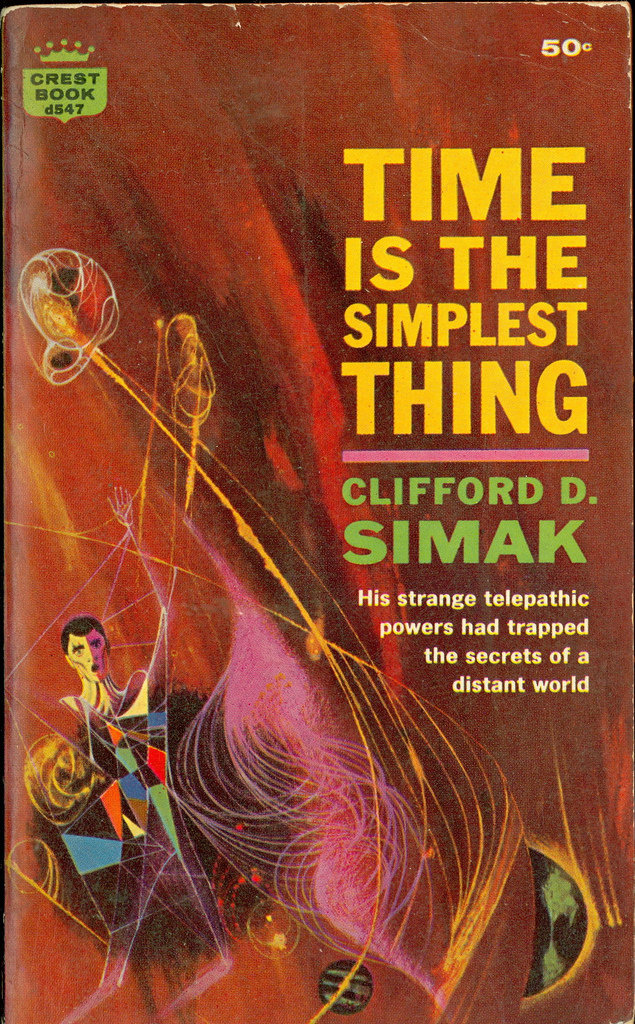 I was unmoved by the
performance
because my attention was drawn to the girl sitting immediately in front
of me, with whom I shared my giant bag of jelly babies (the Beatles
were always being showered with jelly babies at their concerts, and I
had decided to buy a big bag to share with my school friends). In the
interval we got chatting, her name was Rosalind Green, and she attended
a private girls' school in Bristol. This was music to my ears - I knew
everything there was to know about private girls' schools from my
sister's comics and annuals! (Of course I didn't, but it felt as though
I did). When we got back to Gloucester I set about
finding out where she went to school, fancying myself as something of a
Sherlock Holmes, one of my greatest literary heroes. Having found her
school, I bought another big bag of jelly babies and posted them to
Rosalind, and we corresponded for many years as pen friends,
something that doesn't seem to happen nowadays. We met up once in
Bristol but after that all we did was to write letters to each other.
Other than Rosalind, my knowledge of girls was extremely limited, and I
rarely came into contact with girls during that period of my life. The
exception
was when we formed a committee in the fifth form to do something for
charity and someone hit upon the idea of pushing a bath from Gloucester
to Cheltenham. Someone had an old pram frame which his father, a
farmer, adapted to accommodate an old bath. I was unmoved by the
performance
because my attention was drawn to the girl sitting immediately in front
of me, with whom I shared my giant bag of jelly babies (the Beatles
were always being showered with jelly babies at their concerts, and I
had decided to buy a big bag to share with my school friends). In the
interval we got chatting, her name was Rosalind Green, and she attended
a private girls' school in Bristol. This was music to my ears - I knew
everything there was to know about private girls' schools from my
sister's comics and annuals! (Of course I didn't, but it felt as though
I did). When we got back to Gloucester I set about
finding out where she went to school, fancying myself as something of a
Sherlock Holmes, one of my greatest literary heroes. Having found her
school, I bought another big bag of jelly babies and posted them to
Rosalind, and we corresponded for many years as pen friends,
something that doesn't seem to happen nowadays. We met up once in
Bristol but after that all we did was to write letters to each other.
Other than Rosalind, my knowledge of girls was extremely limited, and I
rarely came into contact with girls during that period of my life. The
exception
was when we formed a committee in the fifth form to do something for
charity and someone hit upon the idea of pushing a bath from Gloucester
to Cheltenham. Someone had an old pram frame which his father, a
farmer, adapted to accommodate an old bath. I'd like to say that my seven years at the Crypt Grammar School were the finest days of my life, and not too dissimilar from the schooldays I lovingly read about in Frank Richards's Greyfriars novels, and Anthony Buckeridge's Jennings novels. But at the age of twelve, I went through the darkest period of my life when I was selected for grooming and subsequently for sexual abuse at the hands of the peripatetic violin teacher. I guess I should be flattered that he found me attractive enough to single me out, but it was traumatic at the time, something that should never have happened, because he was well known for what he did to young boys, and it soured my life for a couple of years afterwards. I stopped learning the violin, which was a great pity, as I showed great promise and a huge talent, and in 1958 was all set up for a got at becoming a member of the National Youth Orchestra. One of my schoolmates, David Cripps, who played the French Horn, auditioned for the NYO, was accepted and went on to become principal horn player with the London Symphony Orchestra. That could have been me, I used to tell myself, and resented the lack of care shown by the school and the local council for allowing that peripatetic teacher to teach young boys like me. I dove into teaching myself to play the guitar because of my obsession with skiffle and the new rock and roll which heralded the arrival of the Beatles and hundreds of other groups - there was no place for a violinist in groups of that kind, and my musical tastes veered straight into rock and roll. I would play along to Bobby Darin, the Beatles, Gerry and the Pacemakers, Lonnie Donegan, and even my beloved Mr Acker Bilk and his Paramount Jazz Band. I even played rhythm guitar along to my Django Reinhardt LPs, and pretty soon I was cycling to school, my guitar on my back, to show off my new skills to my classmates during break times and at music lessons, where I would defiantly glare at the violin teacher, who was waiting to pounce on his new victims, and show off my prowess on the six-stringed instrument. When it came to poplating out wheeled bath, we all knew some girls that we'd been at primary school with, and a couple were selected to sit in the bath while we pushed it from Gloucester town hall (it's a city but it had a town hall in those days, I believe) to Cheltenham town hall where a civic reception was laid on with a buffet tea for us. We raised £100, a huge amount in those days, which we donated to Oxfam. Like I said, I rowed twice for my school but they never awarded me my colours, and I left in July 1963 to pursue a new life in Prittlewell, just outside Southend on Sea, where we had relatives, and where I had a place awaiting me at Southend Boys' Grammar School. I left my friends at one of the oldest boys' grammar schools in the country, for one in a dead-end town on the coast in Essex, a town I'd visited many times in the past when visiting relatives in Hornchurch and Rainham, and which I didn't particularly like. But in those days we didn't get a say, we did what our parents told us to do, and one week in July 1963, I found myself at a loose end in Prittlewell, and decided to walk to the sea front. Southend-on-Sea was brash, untidy, noisy and not very attractive. It so happened that the long road into Southend from Prittlewell took me past the public library, and I stuck my head in to see what was what. To my amazement, it was full of books! As I mentioned earlier in this episode, 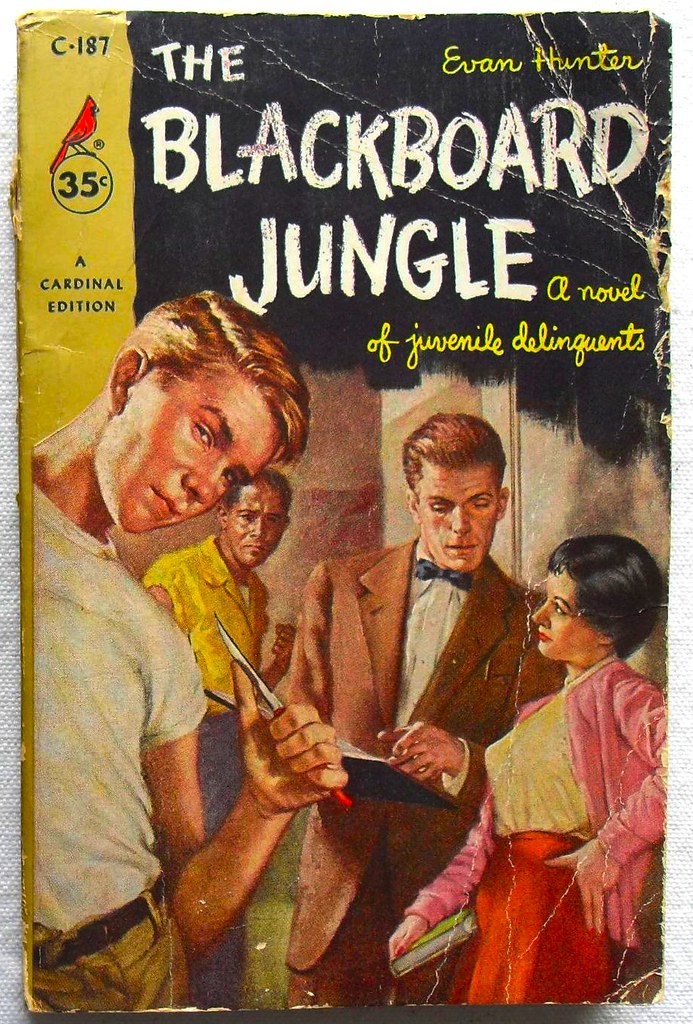 I
never did find out why we had to
move away from Brockworth, an idyllic little village at the foot of
Cooper's (or Cheeseroll) Hill, a kind of gateway to the Cotswolds. My
sister Jean didn't know either. Dad had an excellent job at Rank
Precision Industries, which was part of the J Arthur Rank empire, he
being the leading light in British film making as well as owning half
the flour mills in the country, and famous also for inventing the Xerox
photocopying machine. I heard a rumour - well, I eavesdropped on a
conversation between Dad and Mum, and heard him say that they had
brought in new management blood over the top of him, and he couldn't
sit back and let that happen, so he simply couldn't work for Ranks any
longer. If I had a brilliant, responsible job like he had, that brought
in a decent salary and kept us in upper working class comfort, (Dad,
being a Tory supporter, always felt we were lower middle class, but I
never thought we had enough money for that!) I don't think I
would have left it simply because they had brought someone else in to
manage me. But it wasn't for me to comment. Another rumour which Jean
would neither confirm or deny was that Dad was having an affair with a
woman at Ranks, Mum had found out about it and insisted that we move
away. That made more sense to me, although from what I could see, they
were always devoted to each other. I
never did find out why we had to
move away from Brockworth, an idyllic little village at the foot of
Cooper's (or Cheeseroll) Hill, a kind of gateway to the Cotswolds. My
sister Jean didn't know either. Dad had an excellent job at Rank
Precision Industries, which was part of the J Arthur Rank empire, he
being the leading light in British film making as well as owning half
the flour mills in the country, and famous also for inventing the Xerox
photocopying machine. I heard a rumour - well, I eavesdropped on a
conversation between Dad and Mum, and heard him say that they had
brought in new management blood over the top of him, and he couldn't
sit back and let that happen, so he simply couldn't work for Ranks any
longer. If I had a brilliant, responsible job like he had, that brought
in a decent salary and kept us in upper working class comfort, (Dad,
being a Tory supporter, always felt we were lower middle class, but I
never thought we had enough money for that!) I don't think I
would have left it simply because they had brought someone else in to
manage me. But it wasn't for me to comment. Another rumour which Jean
would neither confirm or deny was that Dad was having an affair with a
woman at Ranks, Mum had found out about it and insisted that we move
away. That made more sense to me, although from what I could see, they
were always devoted to each other.I had resigned myself to joining Southend Boys' Grammar School in September, but events took a bit of a curve in the summer months. I'll get back to the library in a moment, don't worry! It transpired that Mum and Dad were going into partnership with Uncle Stan and Aunt Florry, and were searching for a hardware business that could support us all. Uncle Stan and Aunt Florry already had a small hardware store in Prittlewell. From what I could tell, all it sold was paraffin, candles and firewood, plus wicks for gas heaters. And a couple of tins of paint. I mucked in and helped serve customers at busy times (!) and got some pocket money in return. I quite enjoyed it, but I enjoyed going to the library more. By this time, Uncle Stan had bought me a record player from the cash and carry. When I say he bought it, I mean that he bought it but I paid for it, and I was at least able to play my Lesley Gore LP which I had won in a competition in the Melody Maker music newspaper, which kept me up to date with Mr Acker Bilk, the Beatles and the Rolling Stones, and Django Reinhardt. In Romford, which we visited when we went to see Aunty Ivy, Uncle George and Sylvia, my beautiful cousin, I discovered a superb record shop in which I found loads of Django Reinhardt EPs and LPs, and added them to my small but growing collection. 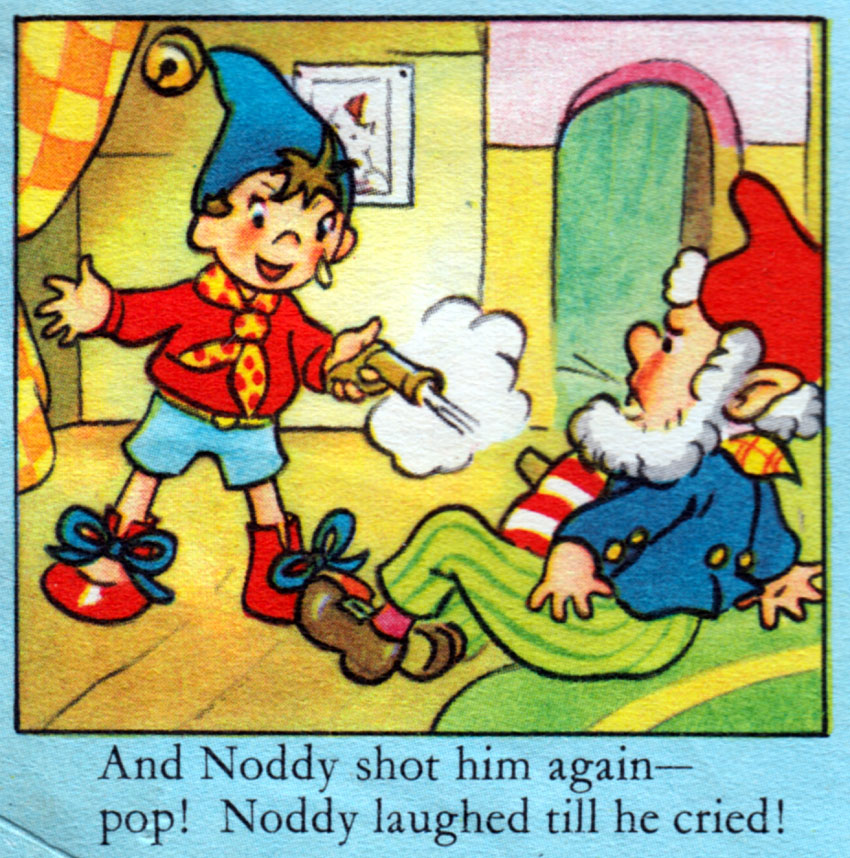 But as
usual, books were best. In
Southend on Sea's public library, I found a bookcase crammed with
contemporary playwrights' work, including the complete plays and revues
of Noel Coward - six or seven volumes, I believe. I don't remember what
prompted me to investigate Noel Coward, but I soon found myself reading
and loving Private Lives, Hay Fever, Blithe Spirit etc., and going back
for more. And
when I'd run out of Noel Coward, I started on Terence Rattigan, and
pretty soon after that, J B Priestley. Priestley had always been a
favourite of mine after I discovered his fantasy novel, The
Thirty-First of June, but
I had no idea at the time that he also wrote plays. I loved The Good
Companions, and I loved An Inspector Calls. In fact, I loved them so
much, along with the Cowards and Rattigans, that I started to write
plays myself. Again, it was Uncle Stan who bought me a Smith Corona
portable typewriter from the cash and carry; again I paid for it from
my pocket money. And pretty soon I was banging away and turning out
page after page of brilliant stories and plays. I remember reading a
play by Priestley called I HAVE BEEN HERE BEFORE, in which the author
plays around with time and the mystery of time. Having always been
fascinated by time and time travel, I wrote a kind of sequel entitled
AND I SHALL
COME AGAIN, and sent it off to the BBC, who commissioned by far the
biggest number of new plays in the UK at that time - still do, for all
I know. The months went by, and then towards the end of the year I
received a letter from John Tydeman who in 1963 was the head of BBC
Radio Drama, quite a bigwig in the BBC hierarchy. He actually thought
that my play was brilliant, especially
the interplay between the younger characters, and he had been trying to
find a way of bringing it to the radio, but sadly had to conclude that
it was not to be. He urged me to carry on writing plays and to send
them to him, which I did, but nothing ever came of it. AND I SHALL COME
AGAIN was the pinnacle of my drama writing period. An opportunity
missed! But I carried on writing, short stories and full-length novels,
and set about a career of being rejected by all the major publishing
houses in the UK. But as
usual, books were best. In
Southend on Sea's public library, I found a bookcase crammed with
contemporary playwrights' work, including the complete plays and revues
of Noel Coward - six or seven volumes, I believe. I don't remember what
prompted me to investigate Noel Coward, but I soon found myself reading
and loving Private Lives, Hay Fever, Blithe Spirit etc., and going back
for more. And
when I'd run out of Noel Coward, I started on Terence Rattigan, and
pretty soon after that, J B Priestley. Priestley had always been a
favourite of mine after I discovered his fantasy novel, The
Thirty-First of June, but
I had no idea at the time that he also wrote plays. I loved The Good
Companions, and I loved An Inspector Calls. In fact, I loved them so
much, along with the Cowards and Rattigans, that I started to write
plays myself. Again, it was Uncle Stan who bought me a Smith Corona
portable typewriter from the cash and carry; again I paid for it from
my pocket money. And pretty soon I was banging away and turning out
page after page of brilliant stories and plays. I remember reading a
play by Priestley called I HAVE BEEN HERE BEFORE, in which the author
plays around with time and the mystery of time. Having always been
fascinated by time and time travel, I wrote a kind of sequel entitled
AND I SHALL
COME AGAIN, and sent it off to the BBC, who commissioned by far the
biggest number of new plays in the UK at that time - still do, for all
I know. The months went by, and then towards the end of the year I
received a letter from John Tydeman who in 1963 was the head of BBC
Radio Drama, quite a bigwig in the BBC hierarchy. He actually thought
that my play was brilliant, especially
the interplay between the younger characters, and he had been trying to
find a way of bringing it to the radio, but sadly had to conclude that
it was not to be. He urged me to carry on writing plays and to send
them to him, which I did, but nothing ever came of it. AND I SHALL COME
AGAIN was the pinnacle of my drama writing period. An opportunity
missed! But I carried on writing, short stories and full-length novels,
and set about a career of being rejected by all the major publishing
houses in the UK.I don't know what it was about Noel Coward that appealed to me - maybe I heard a play on the radio, or watched a film, maybe of Blithe Spirit - whatever it was I was hooked on this creative genius, and he made a lasting impression on me. In November of 1963, we moved to Stevenage New Town, where we took up residence in a three-bedroomed flat above West's Hardware store, which we were to operate until Uncle Stan and Aunt Florry came to Stevenage and joined us in an adjoining three-bedroomed flat. It was the beginning of my new life. Gone was any suggestion that I should go back to school. The next few months were taken up with repeated drives from Stevenage to Prittlewell to ferry the stock from the latter to West's, and that coincided with me gaining plenty of driving experience to add to my six formal driving lessons in a beautiful new Triumph Herald. In February of 1964 my driving instructor told me I didn't stand a chance of passing my test; I completely flummoxed him by passing that day, at my first attempt! I loved the Triumph Herald, but it wasn't a Ford, and pretty soon I persuaded my Dad to buy the handsome blue and white Ford Zephyr from the Zenith Garage forecourt at the entrance to Stevenage town. 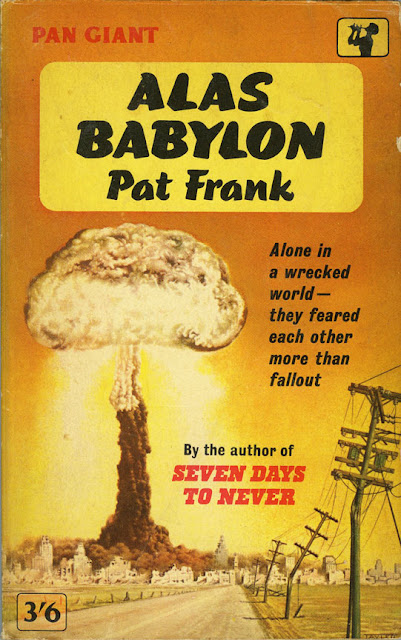 As
soon as Uncle Stan and Aunt
Florry were established in their flat and in the shop (which resembled
Arkwright's in Open All Hours)in Stevenage, my Mum regrettably informed
me that
there was insufficient income from the shop to support five people, and
urged me to look for a "proper" job. I enjoyed working in the shop and
interacting with the customers, but it certainly wasn't a career. I
recall going upstairs to bed the night before and seeing an
illuminated sign saying "LIBRARY" through the upstairs window. I had
explored the immediate surroundings on numerous occasions but couldn't
remember ever seeing a branch library at the shopping precinct. Slowly
it dawned on me that it had been a mobile library, something we never
saw in Brockworth because of the two bookcases filled with books in the
Primary School; the mobile library was parked around the
back of the Hyde shopping precinct, and it dawned on me at the same
time also that working in a public library would be my dream job! I
wrote
off to the main Stevenage library, emphasising how much I loved books,
and received a letter asking me to go for an interview within a couple
of days. I duly attended and was offered a full time job as a library
assistant there and then, and was asked to start work after the Easter
weekend of 1964. As
soon as Uncle Stan and Aunt
Florry were established in their flat and in the shop (which resembled
Arkwright's in Open All Hours)in Stevenage, my Mum regrettably informed
me that
there was insufficient income from the shop to support five people, and
urged me to look for a "proper" job. I enjoyed working in the shop and
interacting with the customers, but it certainly wasn't a career. I
recall going upstairs to bed the night before and seeing an
illuminated sign saying "LIBRARY" through the upstairs window. I had
explored the immediate surroundings on numerous occasions but couldn't
remember ever seeing a branch library at the shopping precinct. Slowly
it dawned on me that it had been a mobile library, something we never
saw in Brockworth because of the two bookcases filled with books in the
Primary School; the mobile library was parked around the
back of the Hyde shopping precinct, and it dawned on me at the same
time also that working in a public library would be my dream job! I
wrote
off to the main Stevenage library, emphasising how much I loved books,
and received a letter asking me to go for an interview within a couple
of days. I duly attended and was offered a full time job as a library
assistant there and then, and was asked to start work after the Easter
weekend of 1964. This was a dream come true for me - surrounded by books and loads of fascinating new people to work with. During the course of the year I got to know everyone - I was the only male library assistant amongst around twelve girls or young women, one of whom was eventually to become my wife! By this time I had my collection of books back - I had reluctantly parted with my comics and annuals before leaving Brockworth; but out of storage came my LP collection of Acker Bilk, Beatles, Rolling Stones, Buddy Holly, Django Reinhardt and my two or three classical LPs, mainly Beethoven and Bach. Although we listened to every music programme going on the BBC, my actual knowledge of classical music was pretty poor. I knew the names, I just wasn't familiar with their music. I played the Beatles almost non-stop. I went to see the Rolling Stones in the Locarno Ballroom in Stevenage in September 1964, and was blown away by them. I bought an LP of Noel Coward and Gertrude Lawrence singing Coward's compositions and songs from his revues. Then at the end of September, three of the female library assistants tracked me down in the reference library, and asked if I would escort one of them home off the bus after work as she had been followed home by a strange man the previous evening. I said "yes", of course, and that's how it started. Wendy swiftly became the love of my life, and opened the doors to classical music in a way I never dreamed possible, something I will begin to tell you about in the next instalment of my memoirs in the October issue! Join me then for another trip down memory lane! Episode 9 - Space City 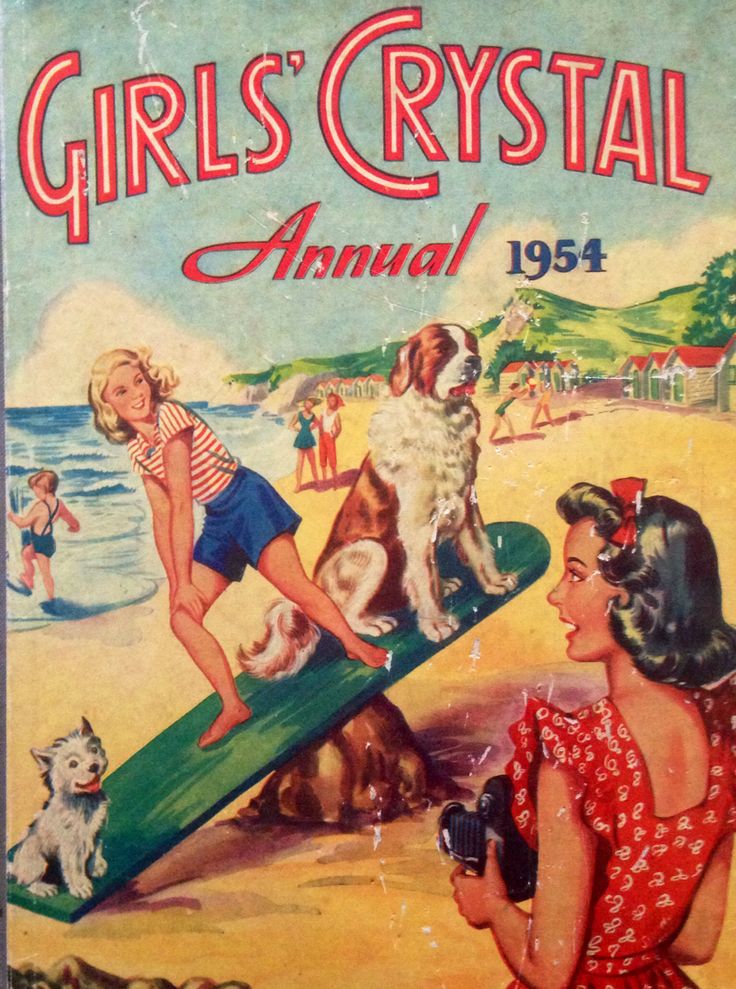 As soon as I had
established the fact that we were an item, I asked
Wendy if I coiuld bring my new Beatles album to her house next time, if
she had a record player, that was. She calmly and coolly informed me
that (although her Dad was a bus conductor) her Dad was a Hifi buff,
had a very expensive set-up, and had hundreds of LPs. He took to me
straight away, as did her Mum and her older brother, and although he
wouldn't let me touch the turntable, he did kindly put on Rubber Soul
for me. I soon discovered that as well as big band music, such as Count
Basie, Duke Ellington and the like, he also loved traditional jazz, had
seen Gerry Mulligan's jazz band many times whilst the family lived in
London; he also had recently discovered classical music. In the 1960s,
decent hifi came into its own when used for playing classical music,
and we spent many happy hours listening to records from his collection.
This coincided with the launch of the relatively cheap Music for
Pleasure record label, which I started to buy with my public library
wages, building up a small collection of my own. Wendy's Dad suggested
we invest in a Readers' Digest boxed set of three LPs, The Festival of
Light Classical Music. I no longer have it but often see copies at car
boot sales and in charity shops. It introduced me to many brilliant
overtures and shorter orchestral pieces, including Wagner's
Siegrfried's Rhine Journey, and a violin masterpiece, Zigeunerweisen. I
was familiar with the German word Zigeuner, from my Noel Coward
records, and knew that it had something to do with gypsies. As soon as I had
established the fact that we were an item, I asked
Wendy if I coiuld bring my new Beatles album to her house next time, if
she had a record player, that was. She calmly and coolly informed me
that (although her Dad was a bus conductor) her Dad was a Hifi buff,
had a very expensive set-up, and had hundreds of LPs. He took to me
straight away, as did her Mum and her older brother, and although he
wouldn't let me touch the turntable, he did kindly put on Rubber Soul
for me. I soon discovered that as well as big band music, such as Count
Basie, Duke Ellington and the like, he also loved traditional jazz, had
seen Gerry Mulligan's jazz band many times whilst the family lived in
London; he also had recently discovered classical music. In the 1960s,
decent hifi came into its own when used for playing classical music,
and we spent many happy hours listening to records from his collection.
This coincided with the launch of the relatively cheap Music for
Pleasure record label, which I started to buy with my public library
wages, building up a small collection of my own. Wendy's Dad suggested
we invest in a Readers' Digest boxed set of three LPs, The Festival of
Light Classical Music. I no longer have it but often see copies at car
boot sales and in charity shops. It introduced me to many brilliant
overtures and shorter orchestral pieces, including Wagner's
Siegrfried's Rhine Journey, and a violin masterpiece, Zigeunerweisen. I
was familiar with the German word Zigeuner, from my Noel Coward
records, and knew that it had something to do with gypsies. The piece captivated me and often made me wish I had not been forced to stop studying the violin. My friend from the Crypt Grammar School, David Cripps, who played the French Horn, had auditioned for the National Youth Orchestra at the same time I was supposed to, and was now principal horn player for the NYO, something I could only dream about now that my flirtation with orchestral violin playing was well and truly over. The last I heard of David was that he was principal horn player with the London Symphony Orchestra under Andre Previn. Well done David! What I should have done was to find another string teacher, of course, but at the time it happened, when I was twelve, there was only one thing to be done, and that was to stop violin and concentrate on another musical instrument - the guitar. With the guitar I could play along with my Acker Bilk tunes, and with the Django Reinhardt tunes, although I could never hope to play like the Belgian genius that was Django. Within a year of going out with Wendy, we started to talk about getting married. I was eighteen years old, and she was just sixteen when I first put it to her that we should maybe think about it, and she readily agreed. Since our first walk together, which took us through the villages of Aston and Benington, with her lovely dog Butch, we saw each other every single day. We were inseparable. We saw each other at work, in the library, and after an evening meal with Mum and Dad, I would walk to her house and we would sit and watch TV, or listen to music, and then we would go upstairs to her bedroom, lay on the bed together and talk about what we were going to do in the future. 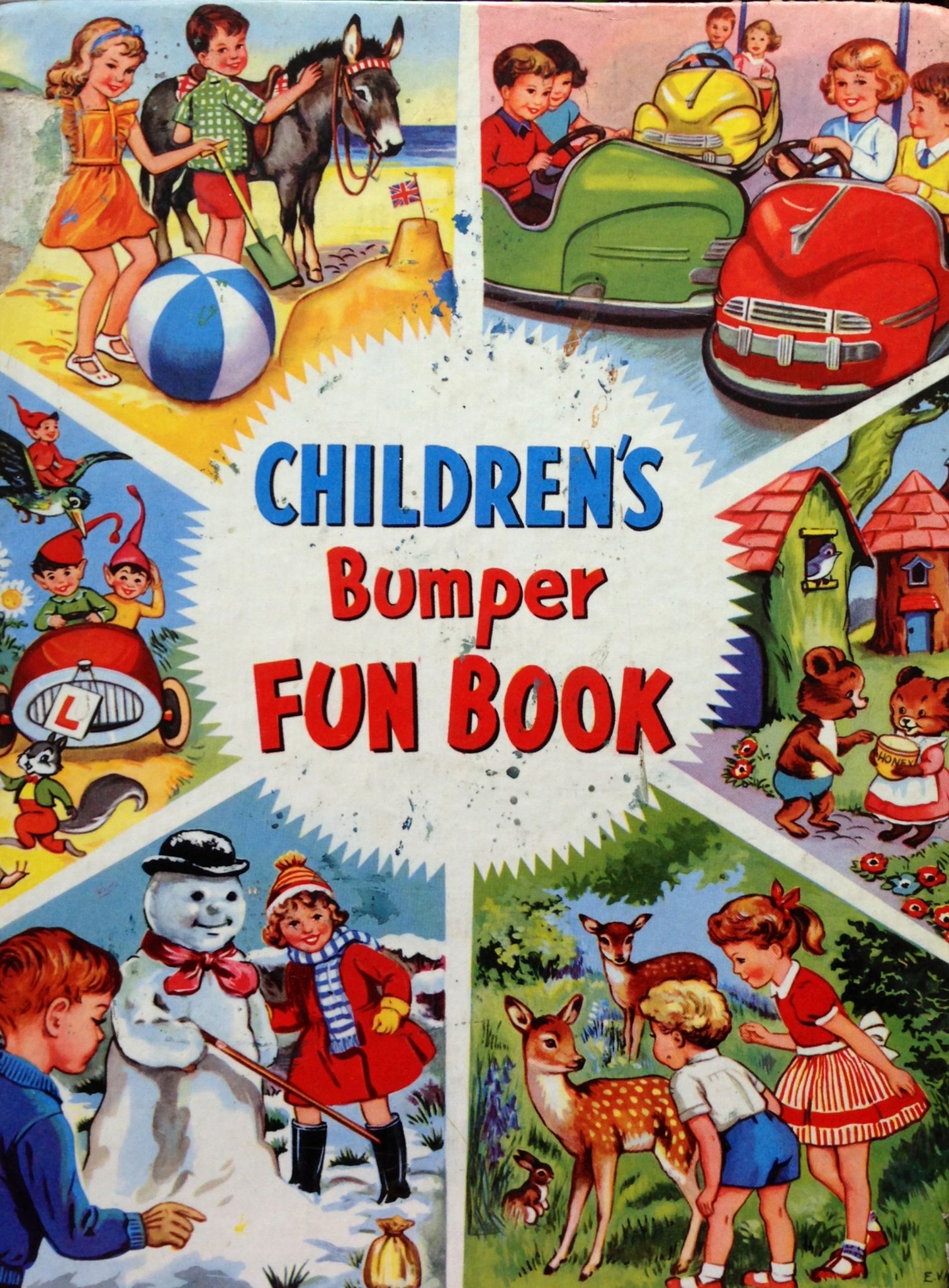 On May 21st 1966, we
were married in St
Mary's Church, Shephall, one of the original neighbourhoods of old
Stevenage before the new town was built. I was nineteen years old,
Wendy was seventeen years old, and we have been together ever since.
During the first few years of our life together, I discovered major
Beethoven symphonies I had never listened to before, including the
third, Eroica, and the Ninth, with that amazing choral finale. I
discovered Sibeliue, Tschaikowsky, Prokofiev (I knew one piece, Peter
and the Wolf, from my hours of listening to Children's Favourites, of
course), Brahms (those great symphonies and that fabulous violin
concerto!), Max Bruch, Chopin (the piano concerti are my favourite
Chopin pieces), Max Bruch's violin concerto No. 2, etc., etc. 1966, the
year of our marriage, was the year we won the football world cup, of
course, and spurred my interest in football. For no other reason than
that the Beatles and Gerry and the Pacemakers came from that great
city, I latched on to Liverpool football club and began to follow their
progress in the league. I was captivated by the team, and have been an
ardent fan of their ever since. At the same time, we were now able to
say that Wendy was definitely pregnant with our first child, Martin,
who was born in April 1967, and who immediately took over our lives. We
had by this time been given a house of our own in Stevenage, firstly in
Warwick Road, Chells (Stevenage new town is made up of neighbourhoods.
Wendy and I had both lived in Shephall, but our first home together was
in Chells, for six months, until we applied for and were given a
three-bedroom house in Chertsey Rise, the same road her Mum and Dad
lived in. Now we were just a few yards away from the support we needed
with bringing up Martin and Wendy was able to return to her library job
whilst I went off to work in the photographic department of Hawker
Siddeley Dynamics. On May 21st 1966, we
were married in St
Mary's Church, Shephall, one of the original neighbourhoods of old
Stevenage before the new town was built. I was nineteen years old,
Wendy was seventeen years old, and we have been together ever since.
During the first few years of our life together, I discovered major
Beethoven symphonies I had never listened to before, including the
third, Eroica, and the Ninth, with that amazing choral finale. I
discovered Sibeliue, Tschaikowsky, Prokofiev (I knew one piece, Peter
and the Wolf, from my hours of listening to Children's Favourites, of
course), Brahms (those great symphonies and that fabulous violin
concerto!), Max Bruch, Chopin (the piano concerti are my favourite
Chopin pieces), Max Bruch's violin concerto No. 2, etc., etc. 1966, the
year of our marriage, was the year we won the football world cup, of
course, and spurred my interest in football. For no other reason than
that the Beatles and Gerry and the Pacemakers came from that great
city, I latched on to Liverpool football club and began to follow their
progress in the league. I was captivated by the team, and have been an
ardent fan of their ever since. At the same time, we were now able to
say that Wendy was definitely pregnant with our first child, Martin,
who was born in April 1967, and who immediately took over our lives. We
had by this time been given a house of our own in Stevenage, firstly in
Warwick Road, Chells (Stevenage new town is made up of neighbourhoods.
Wendy and I had both lived in Shephall, but our first home together was
in Chells, for six months, until we applied for and were given a
three-bedroom house in Chertsey Rise, the same road her Mum and Dad
lived in. Now we were just a few yards away from the support we needed
with bringing up Martin and Wendy was able to return to her library job
whilst I went off to work in the photographic department of Hawker
Siddeley Dynamics. In the Sixties, Stevenage New Town was known as "Space City". The main thoroughfare through the industrial area was Gunnelswood Road. On one side of the road was Hawker Siddeley Dynamics, where we made the Blue Streak Rocket which was intended for launching satellites and Spacecraft; on the other side of the road, and occupying three-quarters of a mile of the road going south, there was the British Aircraft Corporation site, where they made, amongst other things, rockets and missiles intended for war, the English Electric Diesel Locomotive, and the Lightning fighter aircraft. I worked at both companies from 1968 to 1991, when we left Stevenage for the last time and moved to North Norfolk. The Sixties also saw the concerted efforts of the Americans to send men to the moon and to bring them back safely "by the end of the decade". They say that most people knew where they were when President Kennedy was assassinated. I don't recall that precise moment, but I do know where I was when Robert Kennedy was assassinated - on 5th June 1968 I was making my way from the technical library, where I was the librarian, to the photographic department to see my old boss, Nalcolm Baldwin, with a message from Geoffrey Pardoe, the brilliant space scientist who was special advisor to James Burke (of BBC TV's Tomorrow's World programme fame) on the BBC programmes that followed the progress of the Apollo space programme as they prepared for the 1969 moon landing mission. We were to find a picture of a London Bus - a routemaster - and blow it up to a reasonable size, mount it on card so that Geoffrey could hold it up on TV to compare with the Apollo Space capsule that would soon be on its way to the moon with Neil Armstrong, "Buzz" Aldrin and Michael Collins on board. To think that we were involved with such a project was amazing! 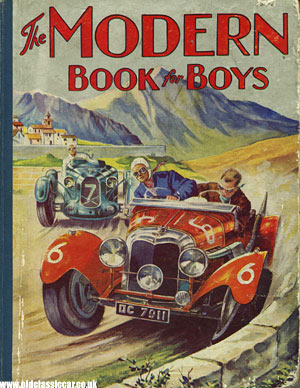 I had long been
fascinated by the
prospect of space travel - all of my comics, the Tiger and the Lion,
and my occasional read, the Eagle's Dan Dare, featured turn of the
century space travel to the Moon and to Mars - it was something to look
forward to. It never happened, of course. The British Government did
not have the foresight to believe in any major space programme,
although after Blue Streak was cancelled, Hawker Siddeley, now part of
the giant British Aerospace company, started to manufacture
world-beating communications satellites. Now, fifty years later, the
first "space tourists" have just returned successfully from their first
three-day inner space mission. The future looks bright! Living in
Stevenage New Town in the Sixties was great. There was so much going
on. I forgot to mention that in the year in which I started to go out
with Wendy, I went to the Locarno Ballroom to watch the Rolling Stones
perform, and it blew me away! I had previously run into members of the
group whilst on a trip to London to catch up with an old school friend.
We went out early evening and found ourselves at a large house, I think
it may have been in St John's Wood, in which Alexis Korner, the great
R&B musician, rehearsed his band, and people like Keith
Richard,
Brian Jones, Jimmy Page, and Eric Clapton would come along and play
along with Korner's various group members. There was the sound of music
coming from virtually every room in the house. The house itself
reminded me of the one in The
Devil
Rides Out
when the Duc and Rex van Ryn go to find Simon. That was St John's Wood
too, I think. Anyway, the concert in the Locarno Ballroom in Stevenage
prompted me to go out and buy the Rolling Stones LP. It was the last
"popular music" concert I ever went to, and it was mind-blowing! I had long been
fascinated by the
prospect of space travel - all of my comics, the Tiger and the Lion,
and my occasional read, the Eagle's Dan Dare, featured turn of the
century space travel to the Moon and to Mars - it was something to look
forward to. It never happened, of course. The British Government did
not have the foresight to believe in any major space programme,
although after Blue Streak was cancelled, Hawker Siddeley, now part of
the giant British Aerospace company, started to manufacture
world-beating communications satellites. Now, fifty years later, the
first "space tourists" have just returned successfully from their first
three-day inner space mission. The future looks bright! Living in
Stevenage New Town in the Sixties was great. There was so much going
on. I forgot to mention that in the year in which I started to go out
with Wendy, I went to the Locarno Ballroom to watch the Rolling Stones
perform, and it blew me away! I had previously run into members of the
group whilst on a trip to London to catch up with an old school friend.
We went out early evening and found ourselves at a large house, I think
it may have been in St John's Wood, in which Alexis Korner, the great
R&B musician, rehearsed his band, and people like Keith
Richard,
Brian Jones, Jimmy Page, and Eric Clapton would come along and play
along with Korner's various group members. There was the sound of music
coming from virtually every room in the house. The house itself
reminded me of the one in The
Devil
Rides Out
when the Duc and Rex van Ryn go to find Simon. That was St John's Wood
too, I think. Anyway, the concert in the Locarno Ballroom in Stevenage
prompted me to go out and buy the Rolling Stones LP. It was the last
"popular music" concert I ever went to, and it was mind-blowing! As I said earlier, Martin was born in April 1967, and he took up much of our time for several years. Neither of us was earning a huge amount of money, but it was good, steady work, and we managed to put together enough money to buy a car. It came from Crest Cars in Luton, and it was a 1955 Ford Prefect in signal red, and, unusually, it had four doors. It started me off on a motoring love affair with Ford Cars. With only two emergency exceptions, the twenty or so secondhand cars I have owned have all been Fords. I am currently driving a 2000-built Focus Estate 1.8 Ghia which I think must have been "souped-up" in some way, as it leaves most other cars standing at traffic lights or at the end of a 20mph stretch of road. She is called Ruby because her number plate is RBY, although her colour is silver. She drives like a dream, and everything works, including the tailgate release switch! I am immensely proud of Ruby, she is probably the very best of all the Fords I have ever owned! The Ford Prefect cost £25, with £5 insurance, bought from Crest Cars on the day, and £5 for six months' road tax, I believe. Now we were going places, although we were still poor and our money ran out before the end of the week, when we got paid again! At this point I would nip down to Wendy's Mum and Dad's house and ask to borrow a fiver until payday. That actually lasted us in those days - we were poor but happy, and we never went without because of the unfailing support of our families. In 1968 I migrated from Hawker Siddeley Dynamics to British Aircraft Corporation because the money was slightly better, and it was while I was working there that the two companies were merged to become BAe. During this period, Stevenage was expanding at an amazing rate - local neighbourhoods were being built simultaneously and the new town began to spread out through the countryside so that the villages were swallowed up, and huge out of town supermarkets were being built - the shape of things to come. The sixties were coming to a close, the Beatles had split up, I had discovered the vast and stunningly beautiful world of classical music to add to my pop superstars (Bobby Darin etc.) and traditional jazz (Mr Acker Bilk); Sandra Dee was making wonderful films, I had rebuilt my collection of Dennis Wheatley and Leslie Charteris's Saint books; I had met and fallen in love with the girl with whom I would share the rest of my life, we had a beautiful son, Martin, who had already started to compile his own language, and life was still good. Time to say goodbye to the sixties and say hello to the seventies... Although, as I still have many treasured memories of the fifties and sixties, I think I'll double back and start all over again next month! The small print: Books Monthly, now well into its 24th year on the web, is published on or slightly before the first day of each month by Paul Norman. You can contact me here. If you wish to submit something for publication in the magazine, let me remind you there is no payment as I don't make any money from this publication. If you want to send me something to review, contact me via email at paulenorman1@gmail.com and I'll let you know where to send it.
|
|
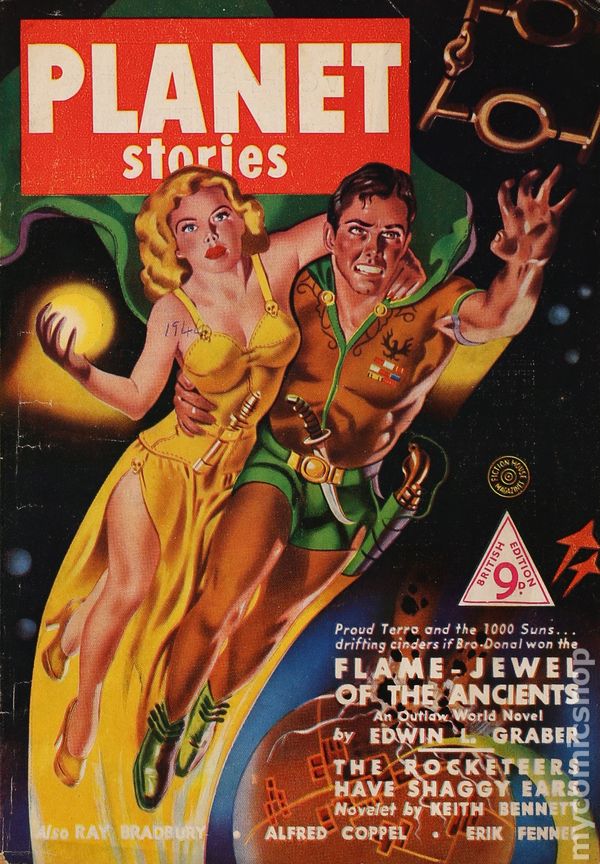
,
|
